JOKE Smitprijs
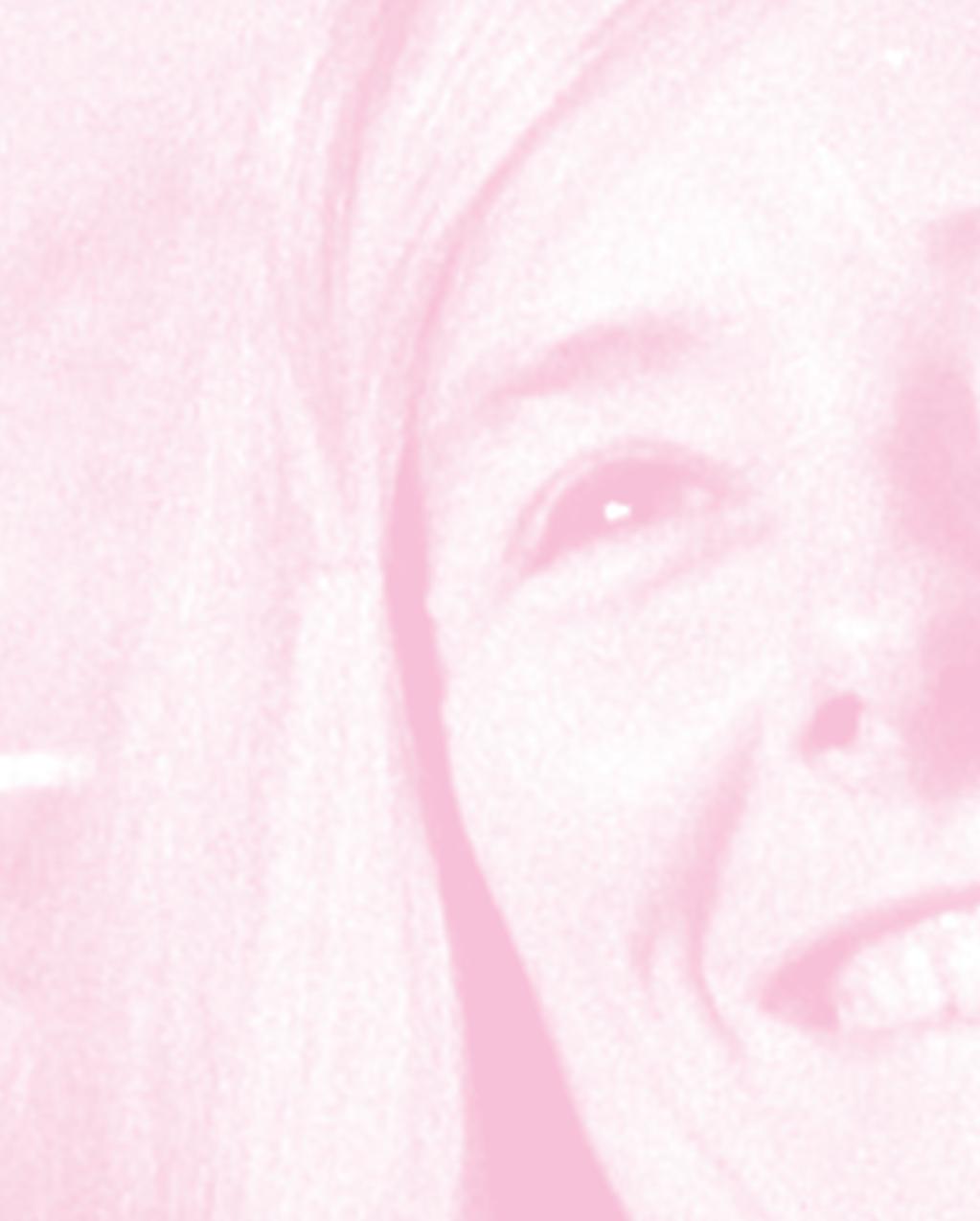


Thank you for your commitment to improving the position of women and girls in Dutch society. This book is a collective work of students, alumni, and teachers from the Royal Academy of Art, the Hague who wanted to express their gratitude for the winner. Your work has not only made a change in society and contributed to gender equality, but has also inspired a new generation of designers to work together and look at design as a social responsibility. We all thank you for your work and effort.
Read this book as further inspiration to continue the work and be proud of the positive changes you have created. You are a role model for many of us.
annA otibaR r
Vlad a K avalchuk
Aleksandra K o j r o
A r t i o m J a c o b
aM-ennA r e n Bri ek l i d
ekkirederF meH m i n gsen
V e r o n ic a A dnuoer J o e p B o o g a a r d
jI i Sh in
revilO ppiT l Milo H ta f ile d

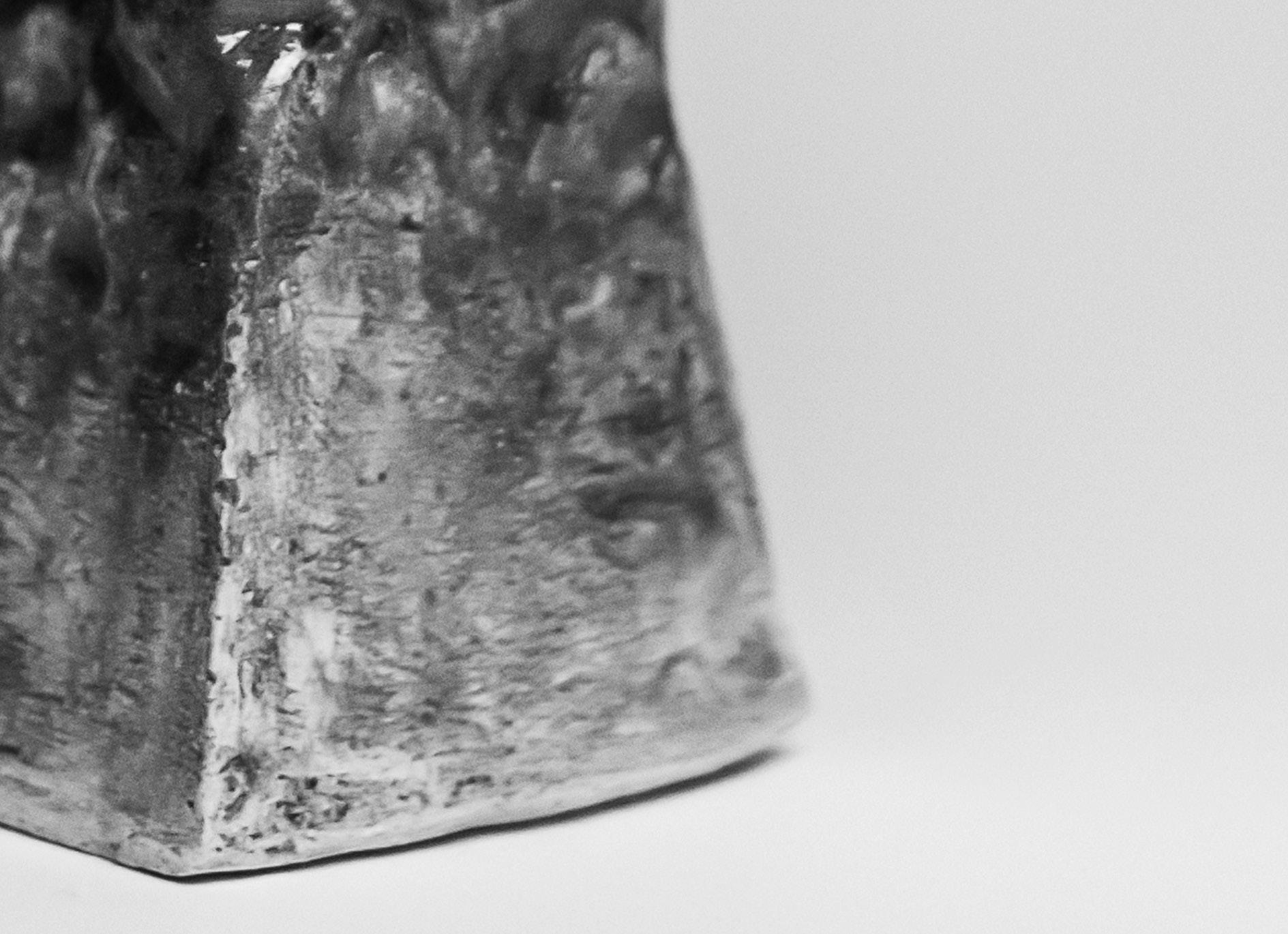
Expectations put on women by society take away our freedom to authentically express ourselves. Misogynistic values instilled in us from early childhood restrict our identities, dreams and possibilities. Accepting that I am a lesbian helped me realise to what extent I was both surrendering to and separating myself from this system, which led me to feel free and authentic for the first time in my life.
With the trophy I designed, I invite all women to explore and question their identities outside the norms dictated by the patriarchy, to challenge and break out of those boundaries and to reflect on how this unfair system influences each one of us from different perspectives.





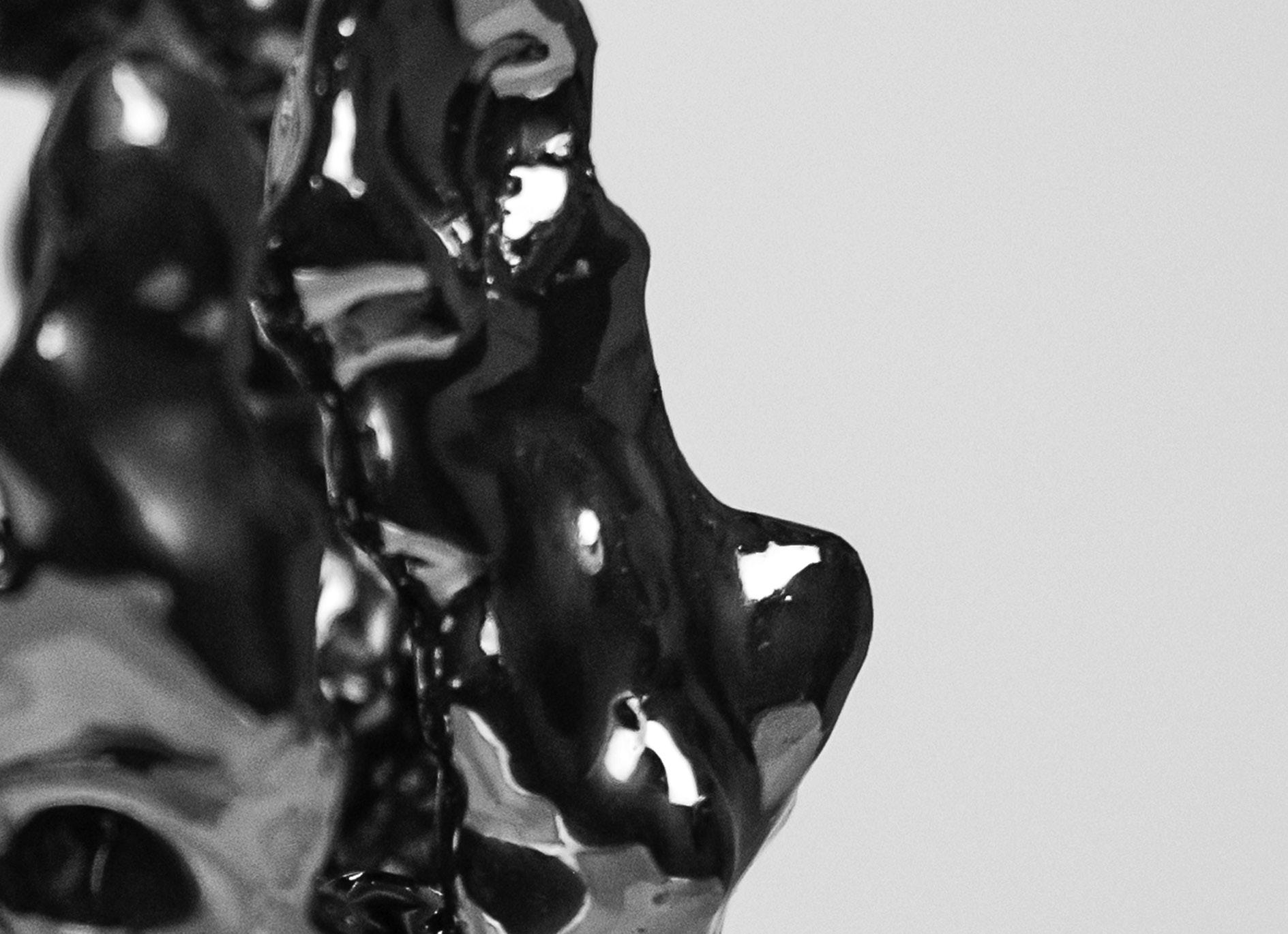
I want people to reflect on the way their authenticity is confined due to patriarchal norms, values and unfair expectations instilled in them.
I hopethe winnerwillbe proudof their contributionsandfeel inspiredto breakoutof their own,or society’s own, restrictive expectations.






I felt honoured and excited to be a part of this project because the cause is very important to me. I’m grateful that by working on this award, I was able to rediscover my personal connection to feminism and communicate these new thoughts through my work.




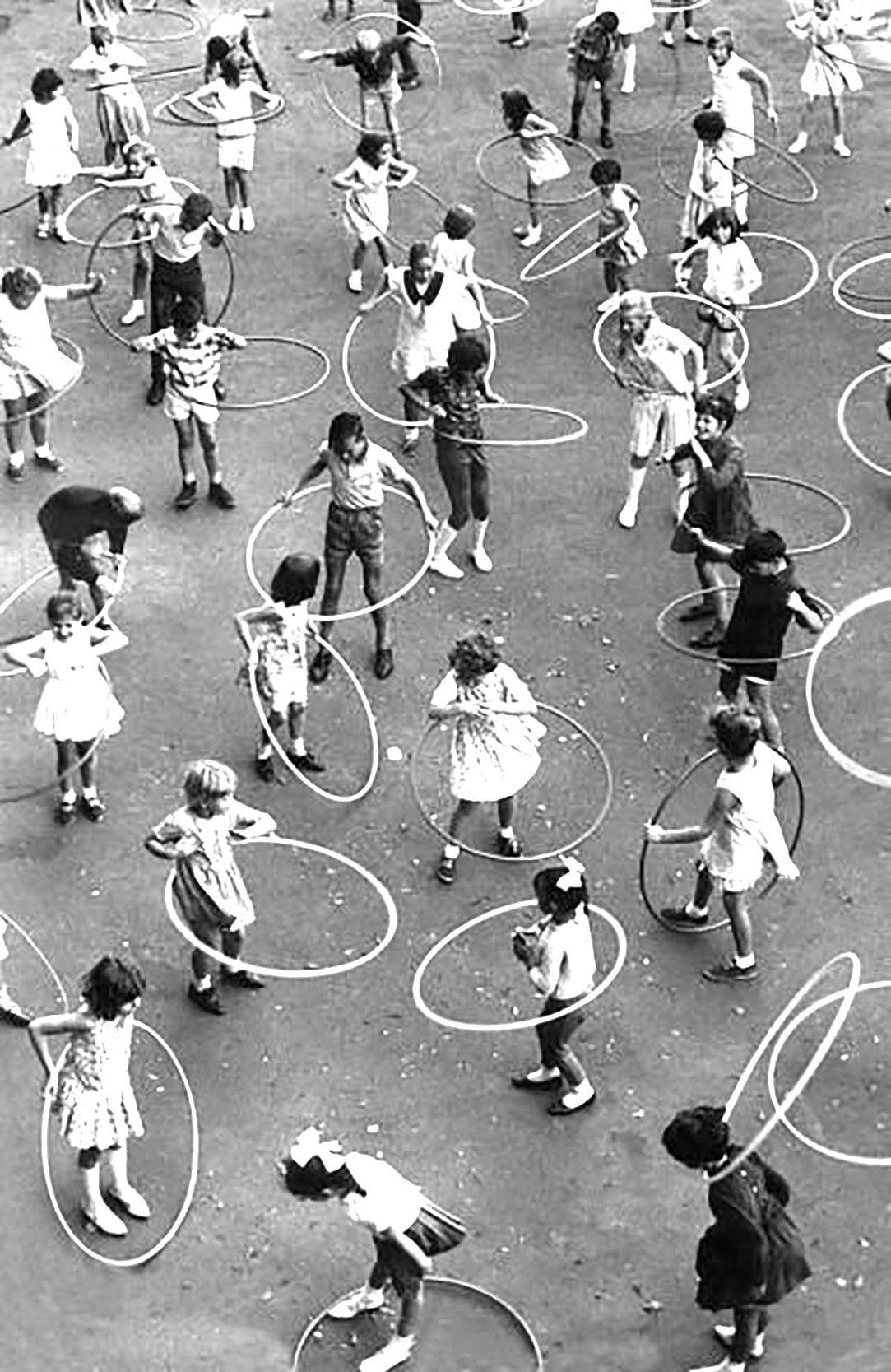

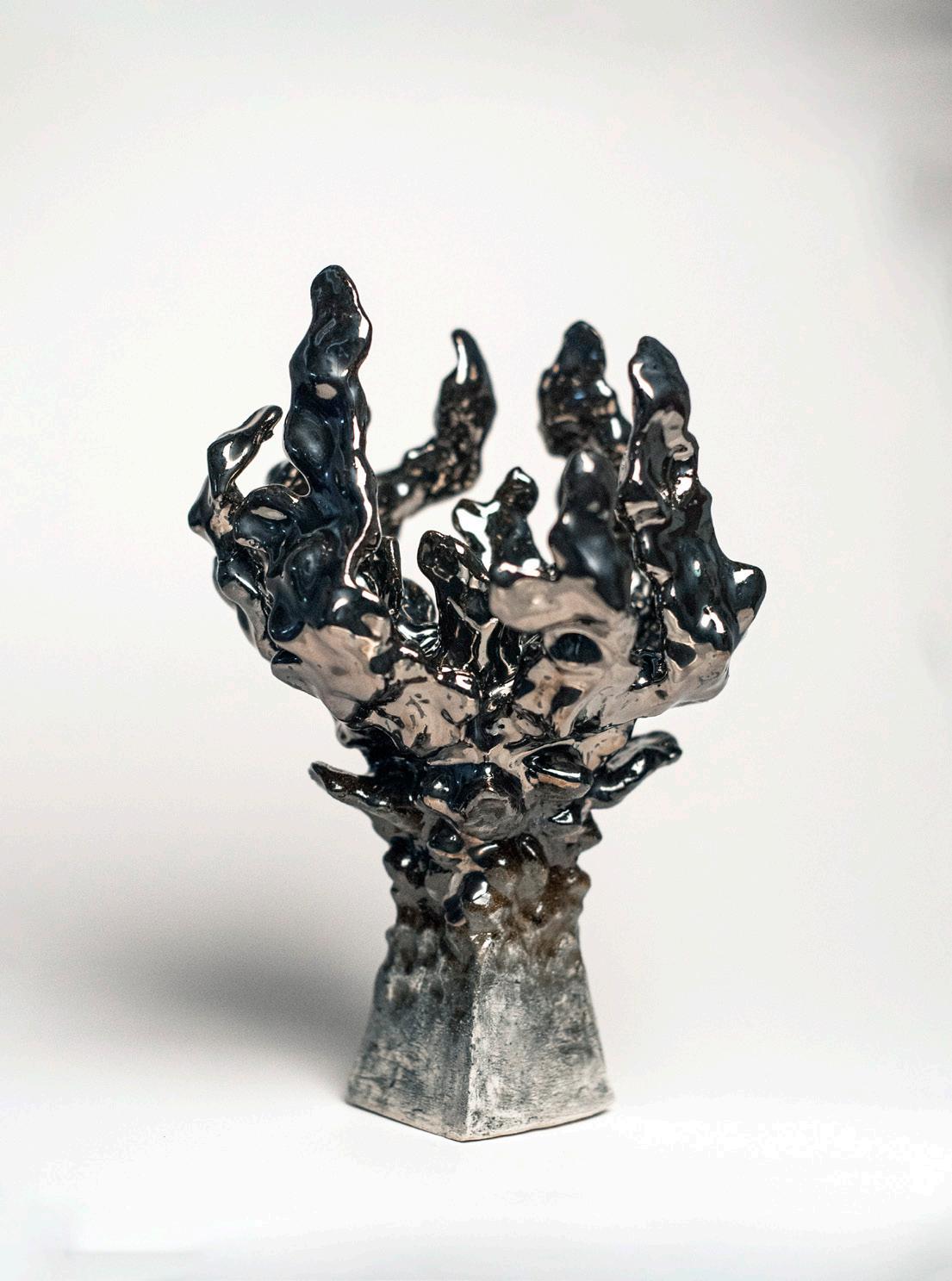
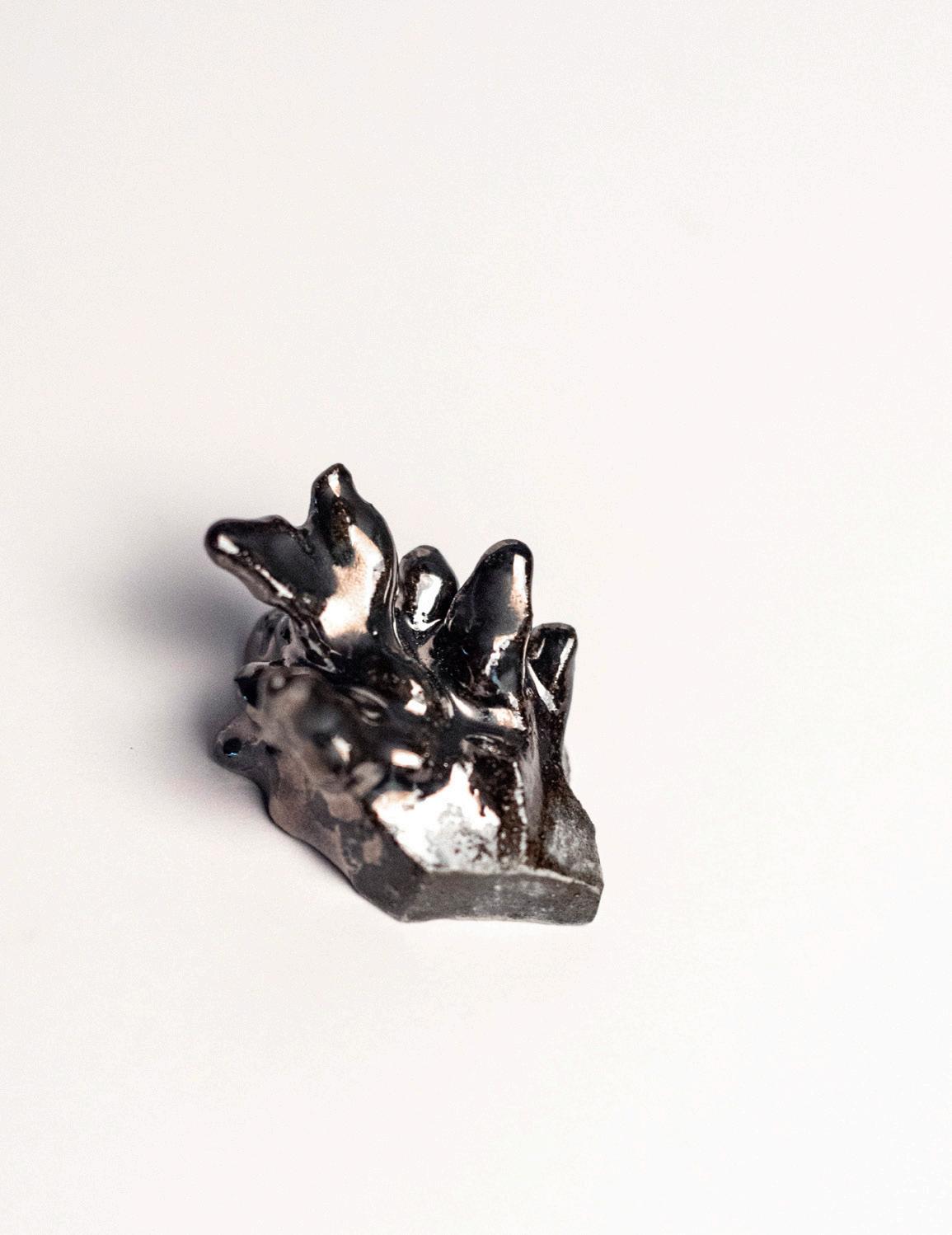

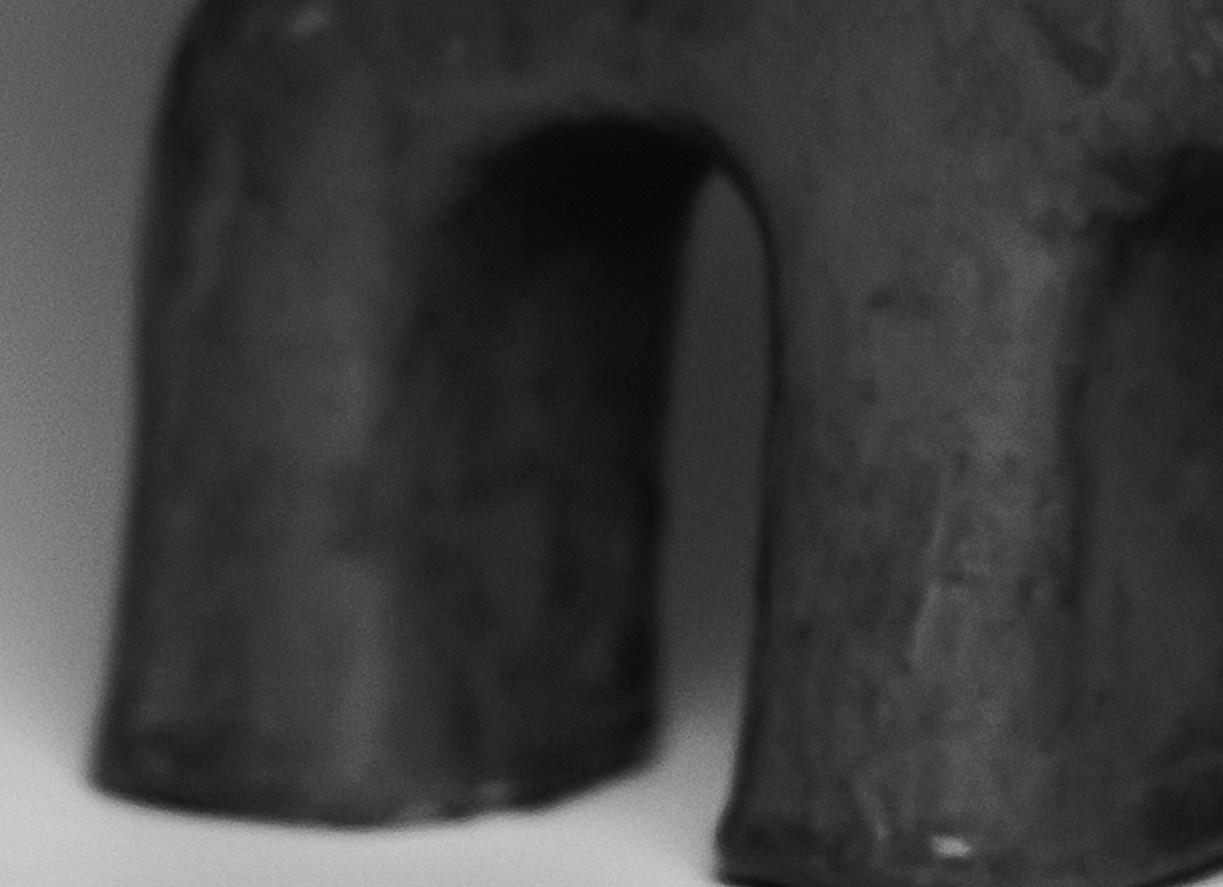
As a woman, I feel solidarity with other women because our experiences connect us. This cohesion among women is what created feminism, and confirms that we are here for each other. While society defines gender in a restrictive way, feminism allows both masculine and feminine energies to find their way and purpose — offering an evolved perspective on gender norms. Feminism is a form of conjunction, a place for discussion; where points and counterpoints create tension — an always thriving, infinitely complex, never-calm movement. In my concept I wanted to represent the strong and the powerful, a growing force for the complex movement that is feminism.





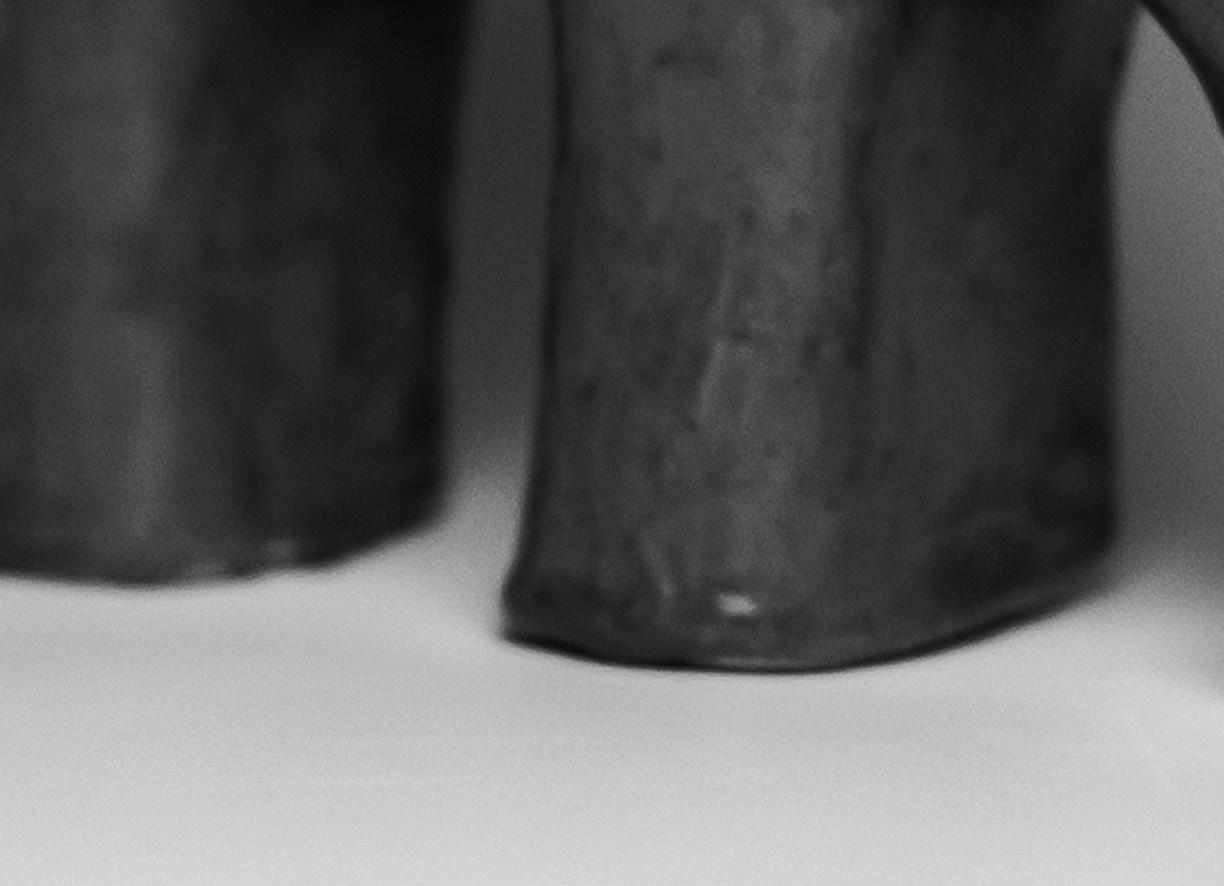
I would like to call on both men and women to break gender stereotypes. Together we can make gender something which is constantly growing and evolving.

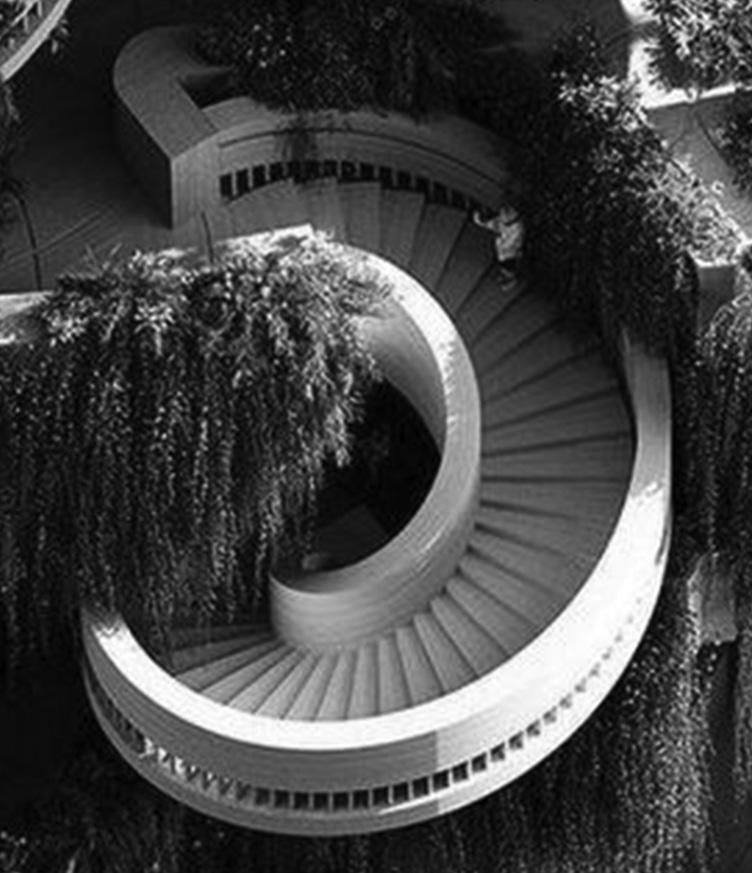


Working for such an important cause, to celebrate and honour someone who dedicates their life and work to improving the position of women, brought me a lot of joy. I hope to contribute in the best way I can.
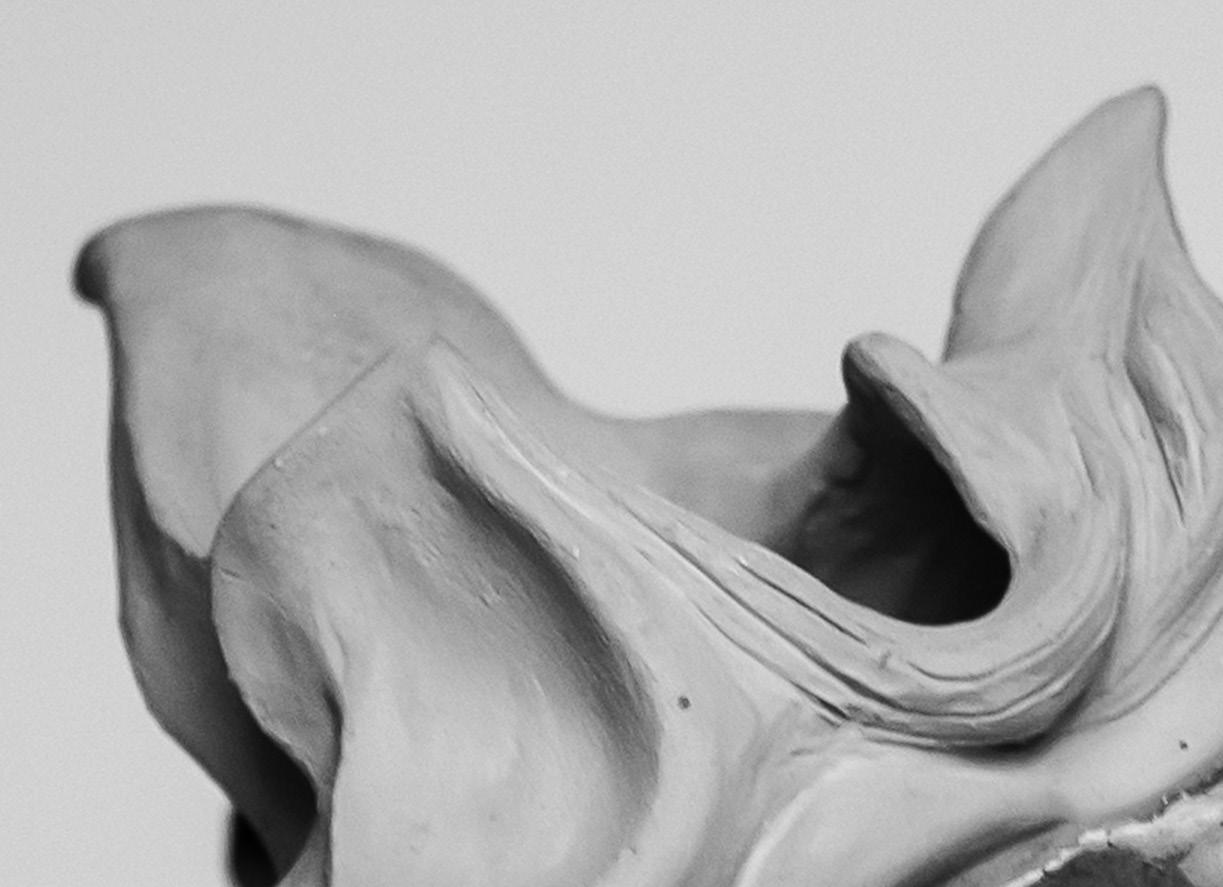
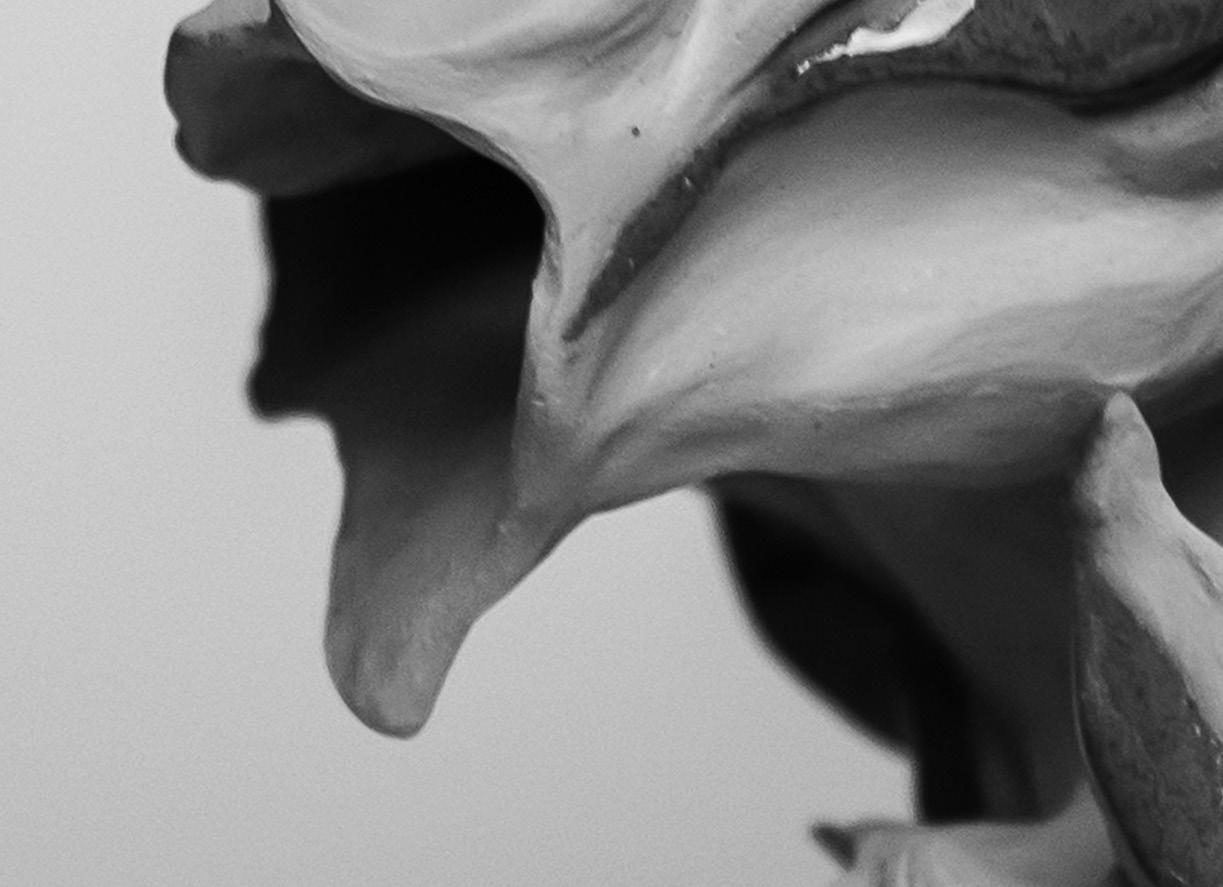



I hope the winner will feel the impact of their work. I want them to know that they are an inspiration to many of us.
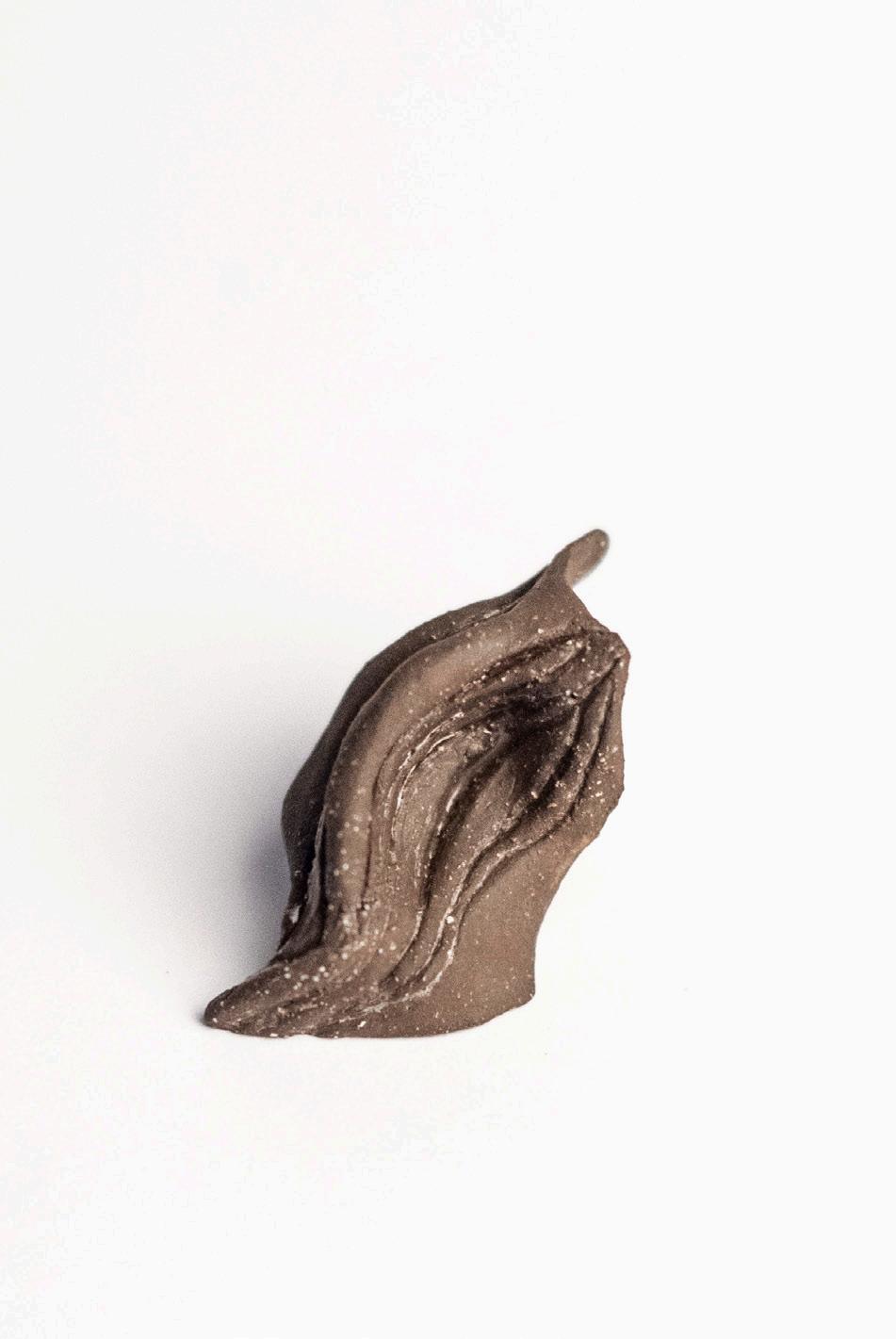
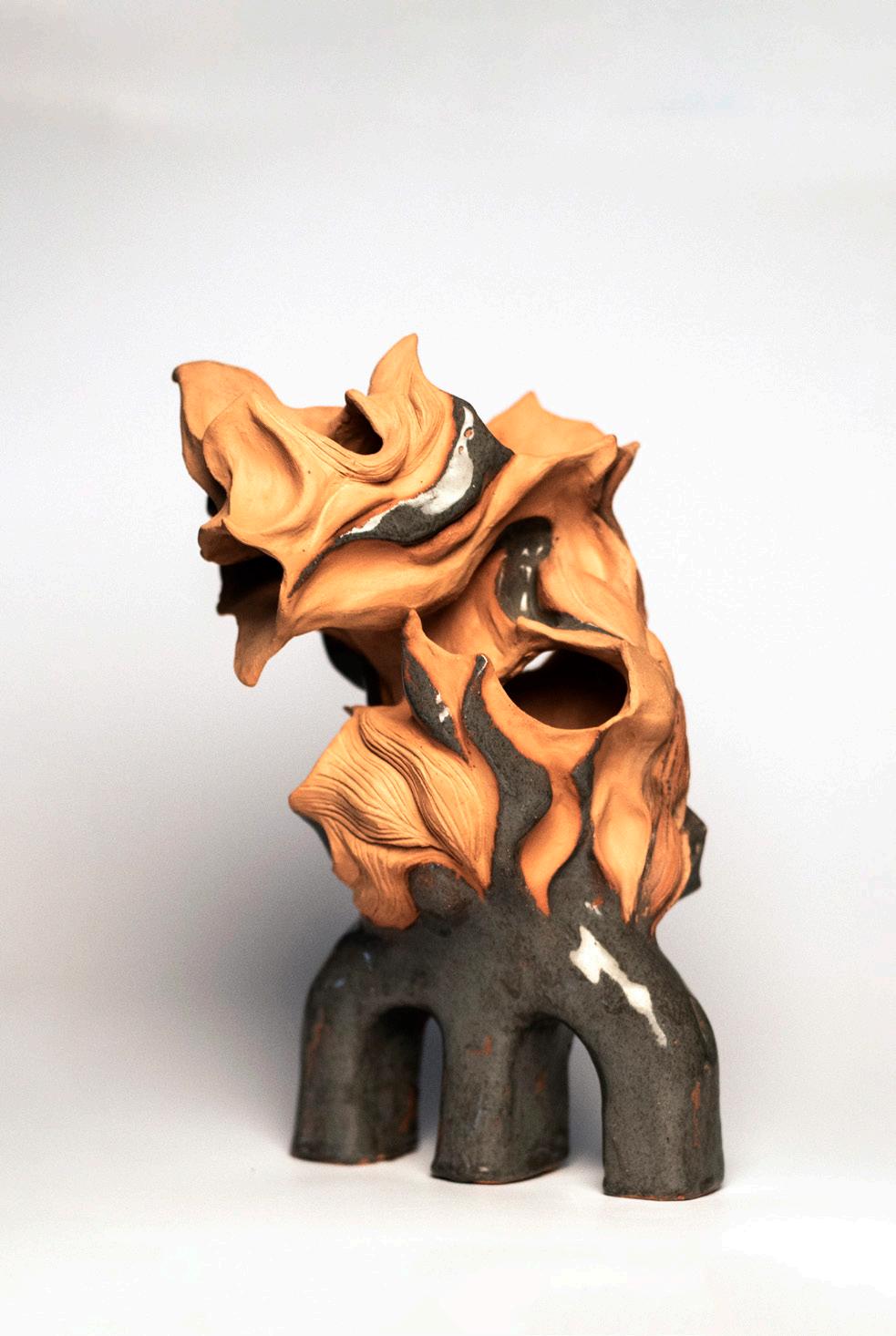

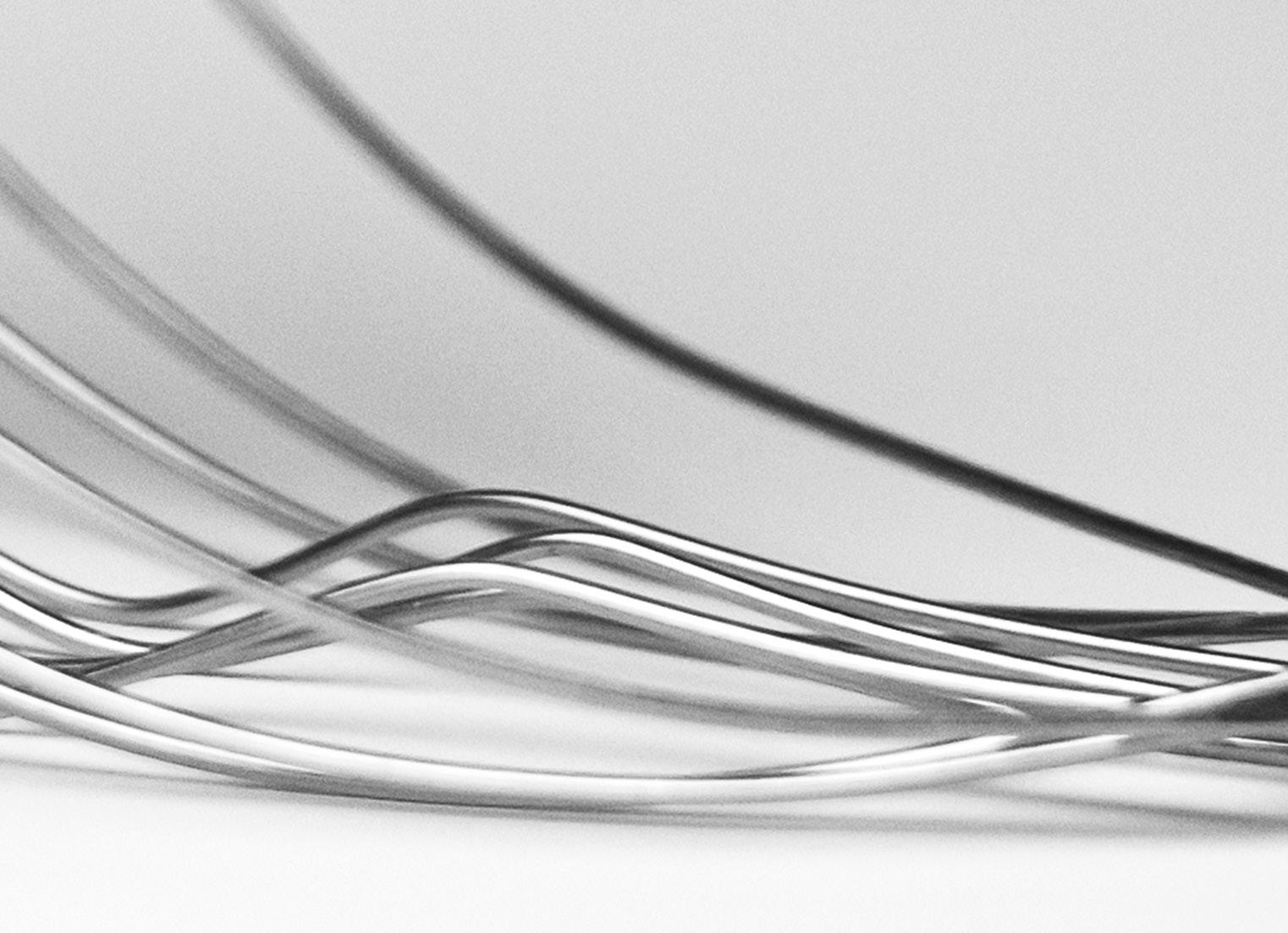
Feminism continues to expand and spread all over the world. Women everywhere are challenging conservative notions of their capabilities and roles in society.

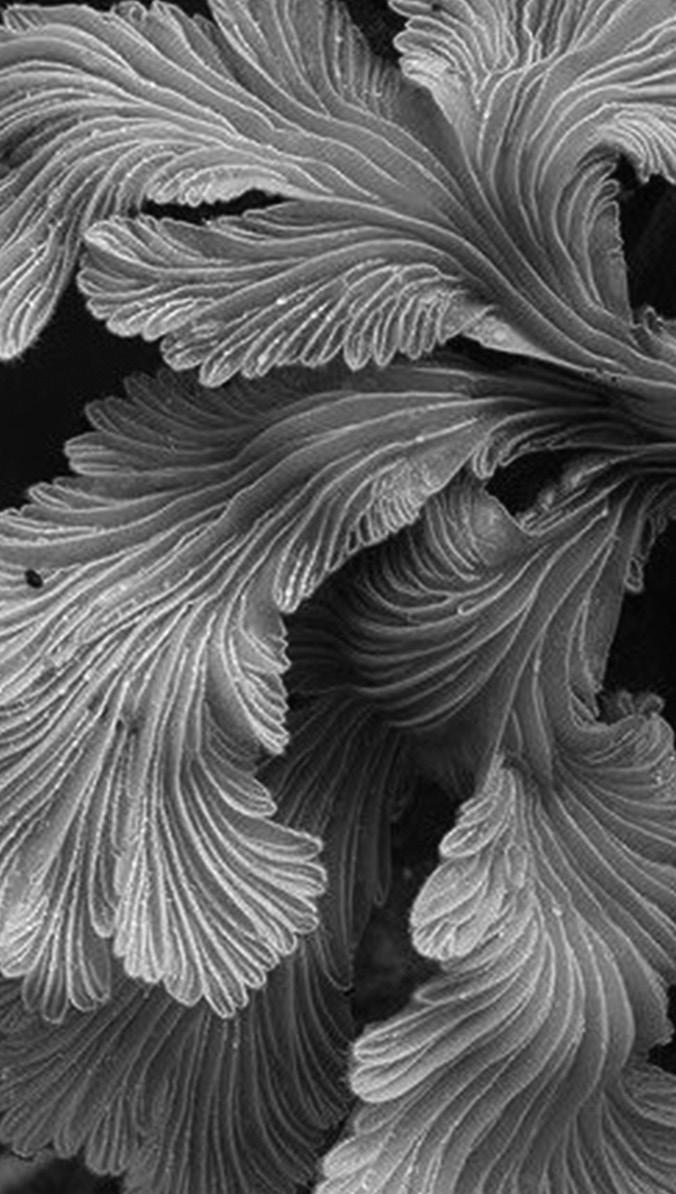
By informing the public of the issues women face, they unite people to work towards securing equal rights, opportunities and importance. The steel represents feminism, and the wood, society. The steel lines move together in a calculated uniform manner, surrounding and gripping onto the structured wooden shape. The trophy symbolizes women uniting and supporting each other in protest against society’s standards.


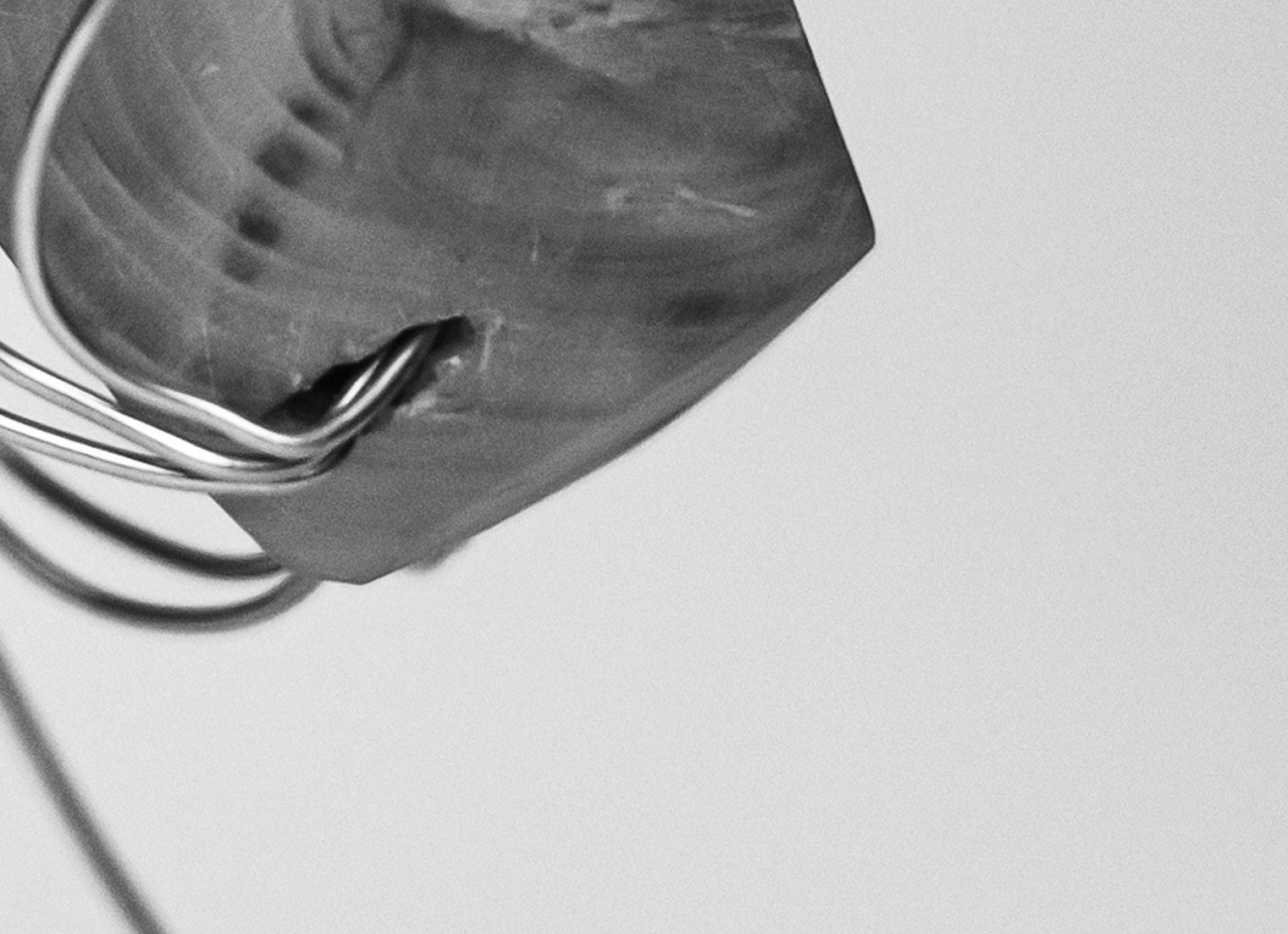
I am honored to be given the opportunity to design an award for such an important cause as women’s emancipation.

I hope the receiver of this prize feels acknowledgement for their hard work and is inspired to continue fighting for the emancipation of women.
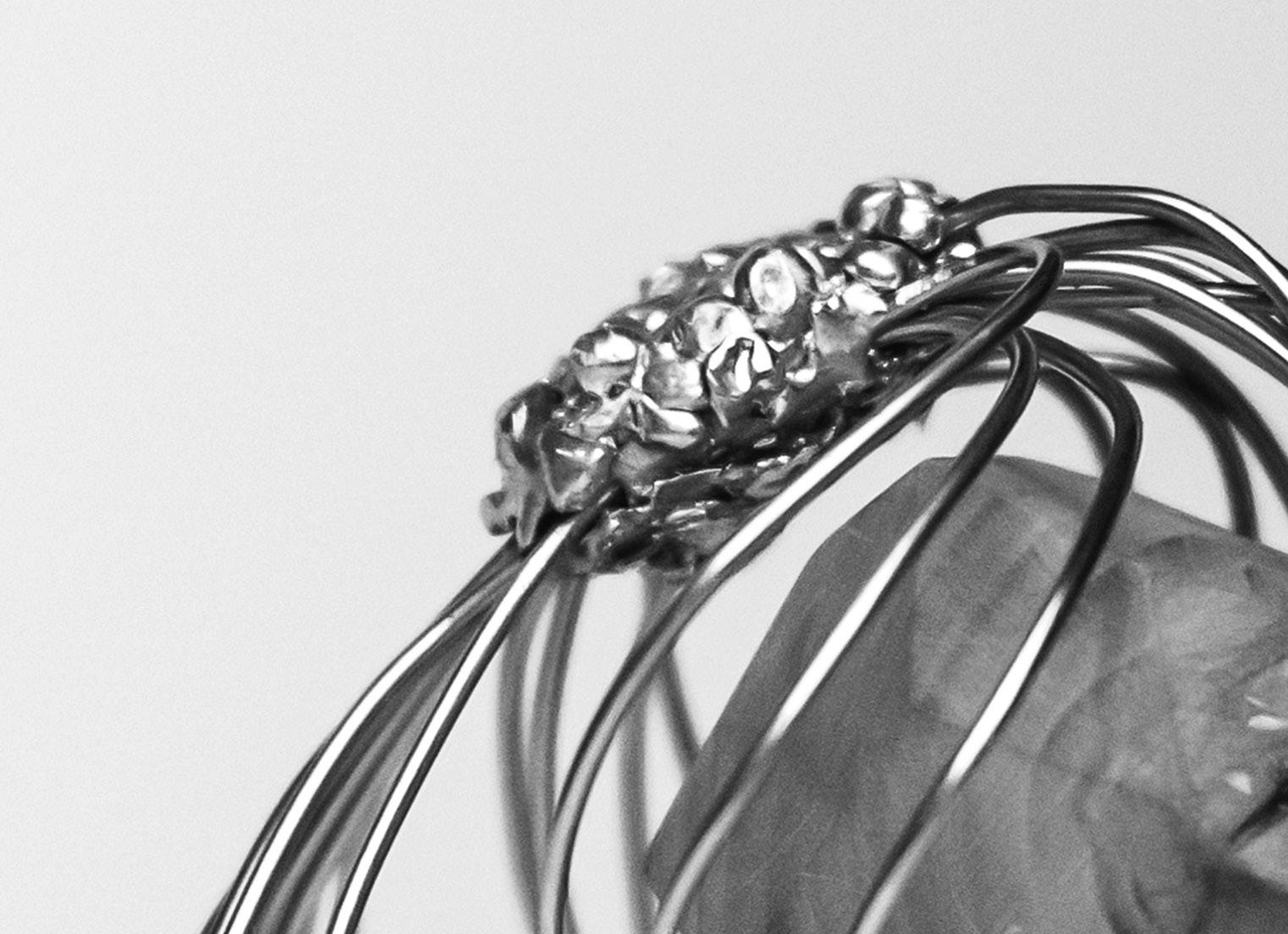
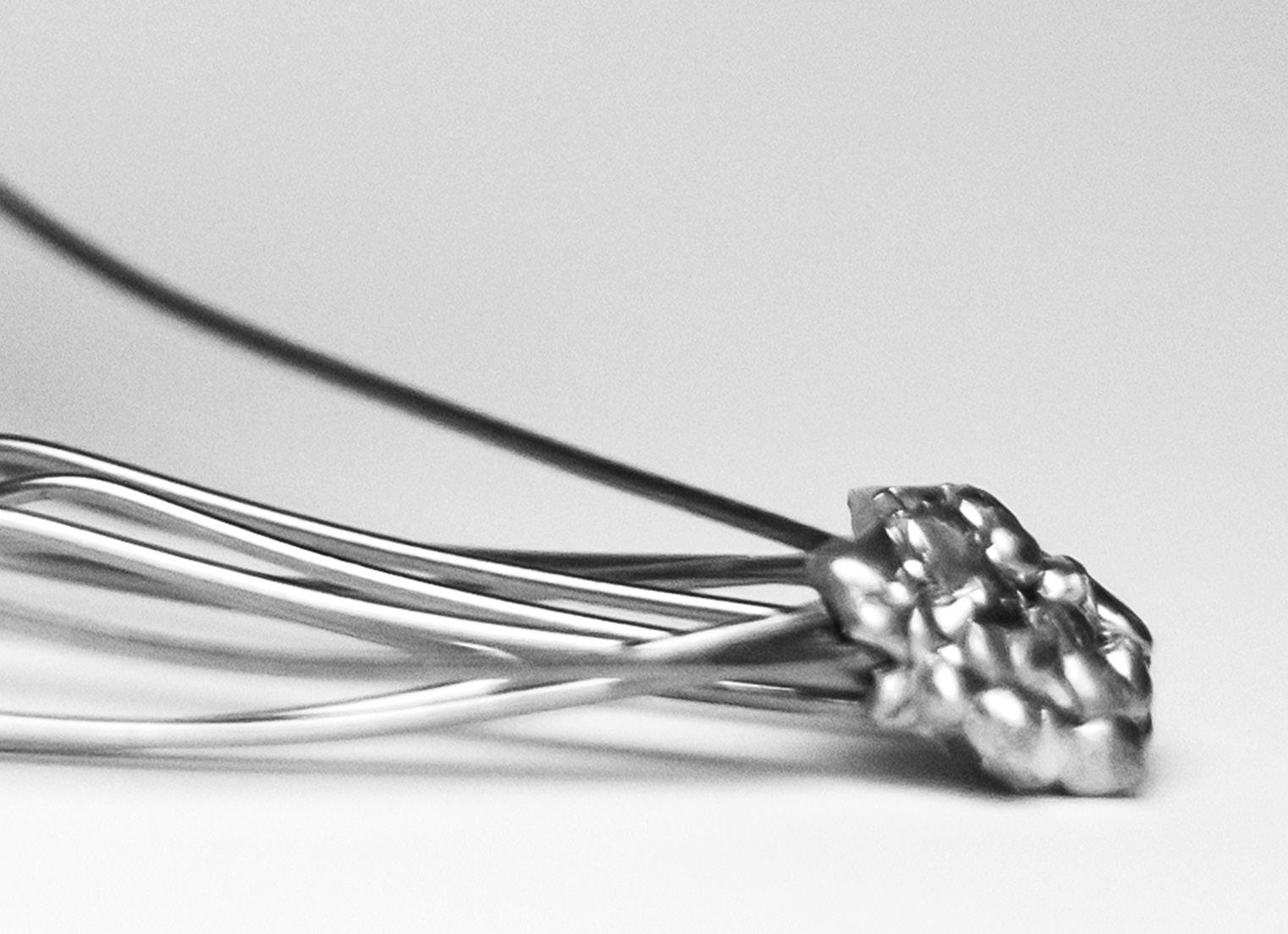


Anyonepersoncanbebraveandstandupagainstinequality,butbystandingup togetherwecanchangesociety.
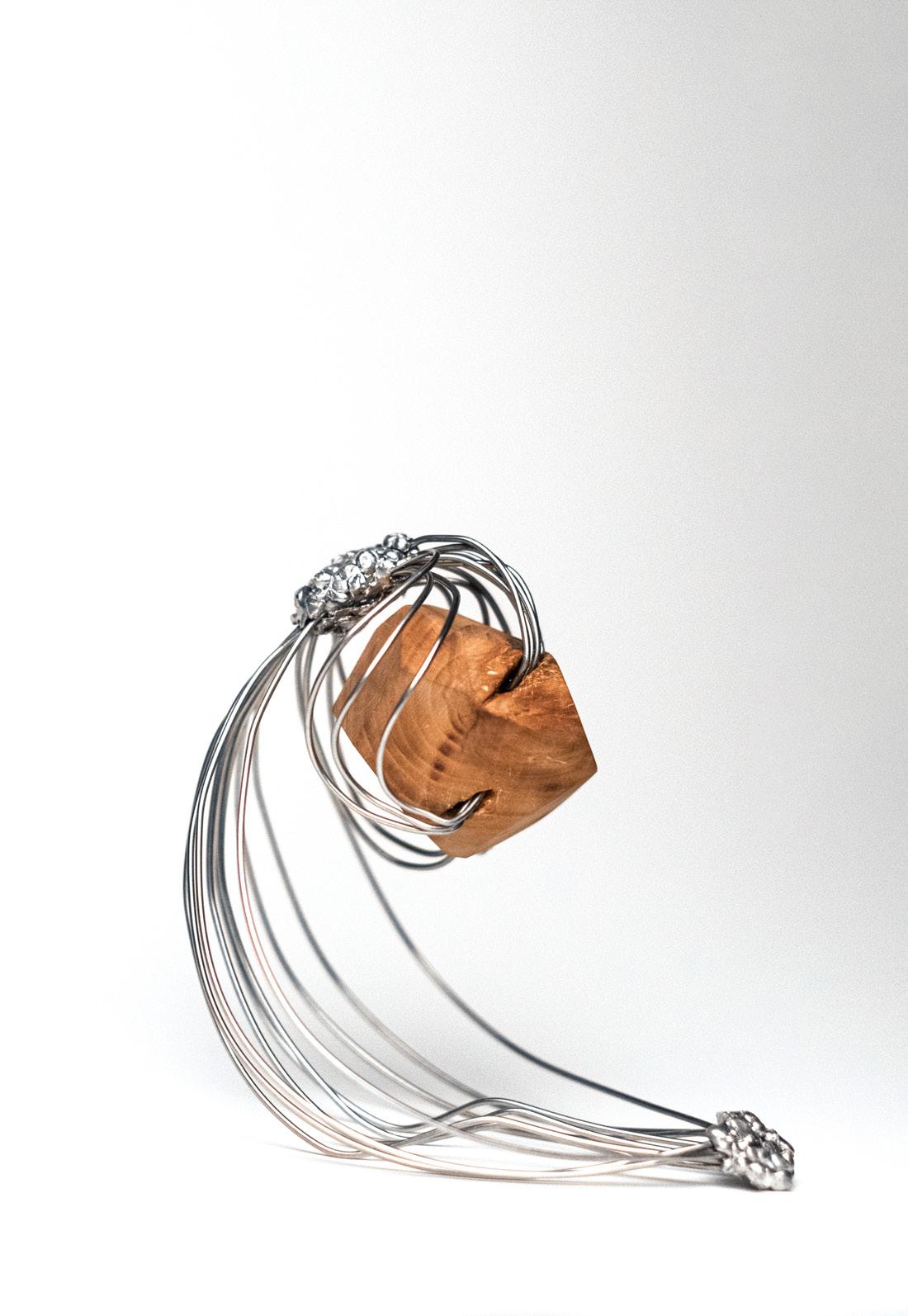
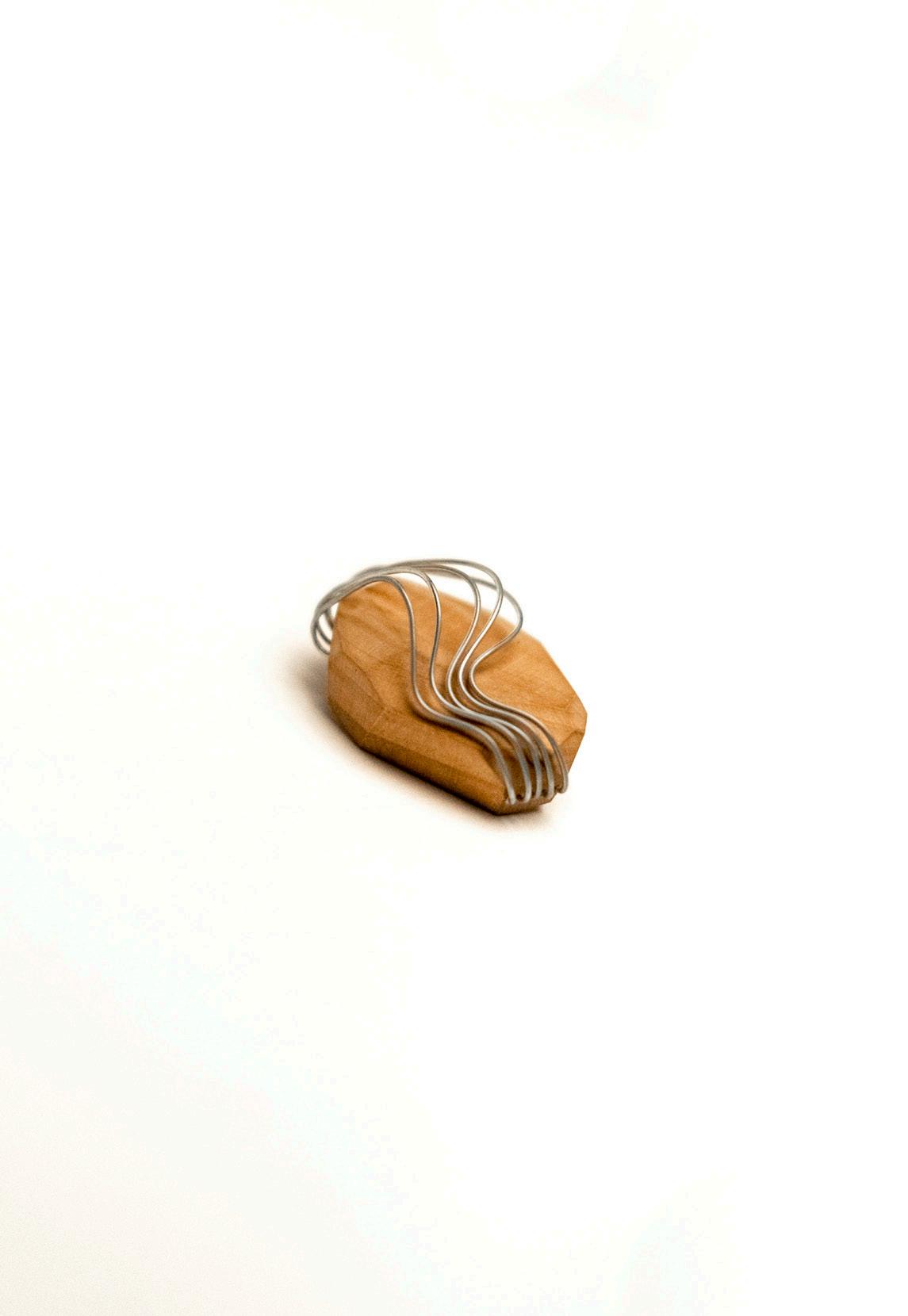

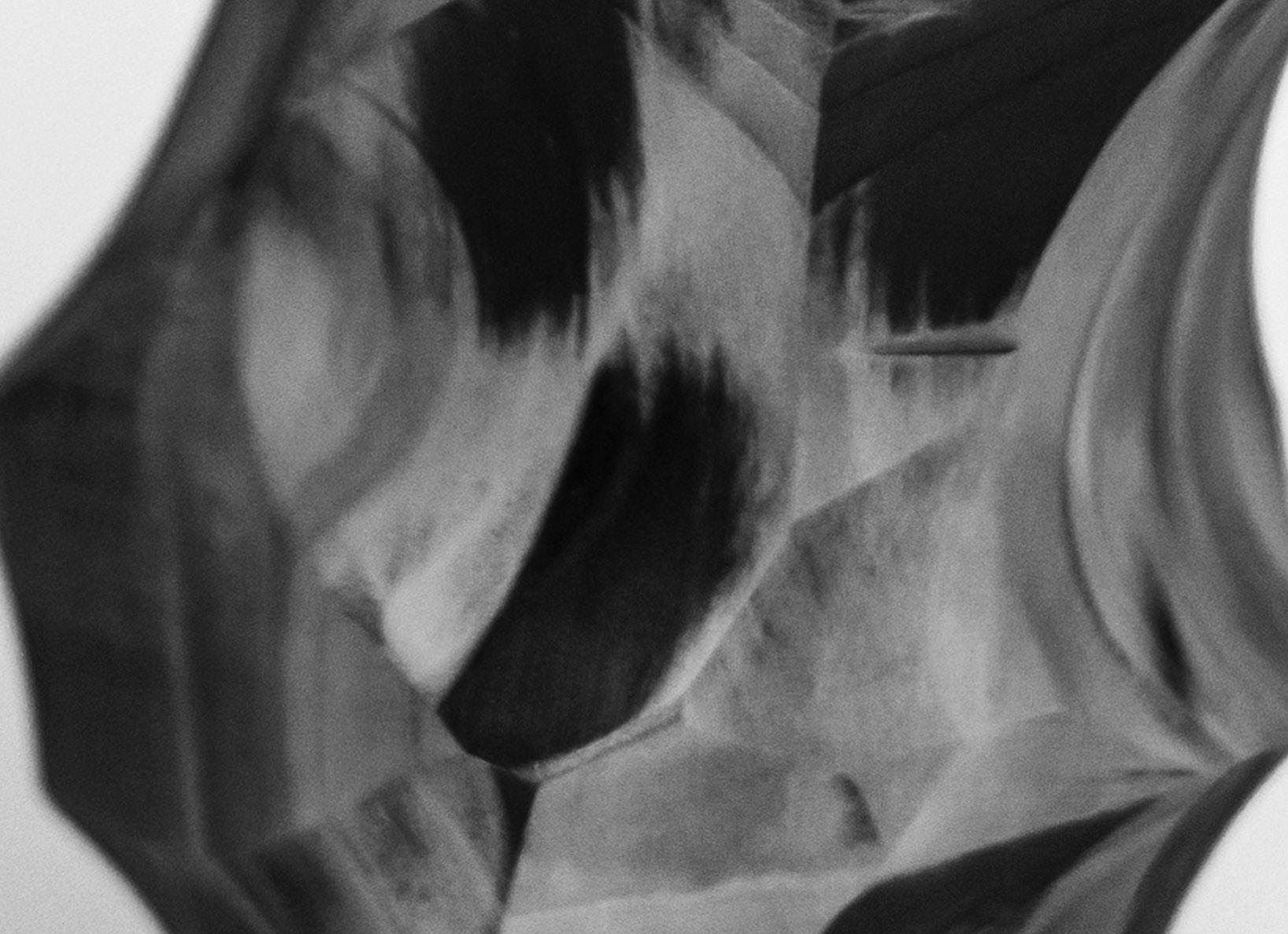
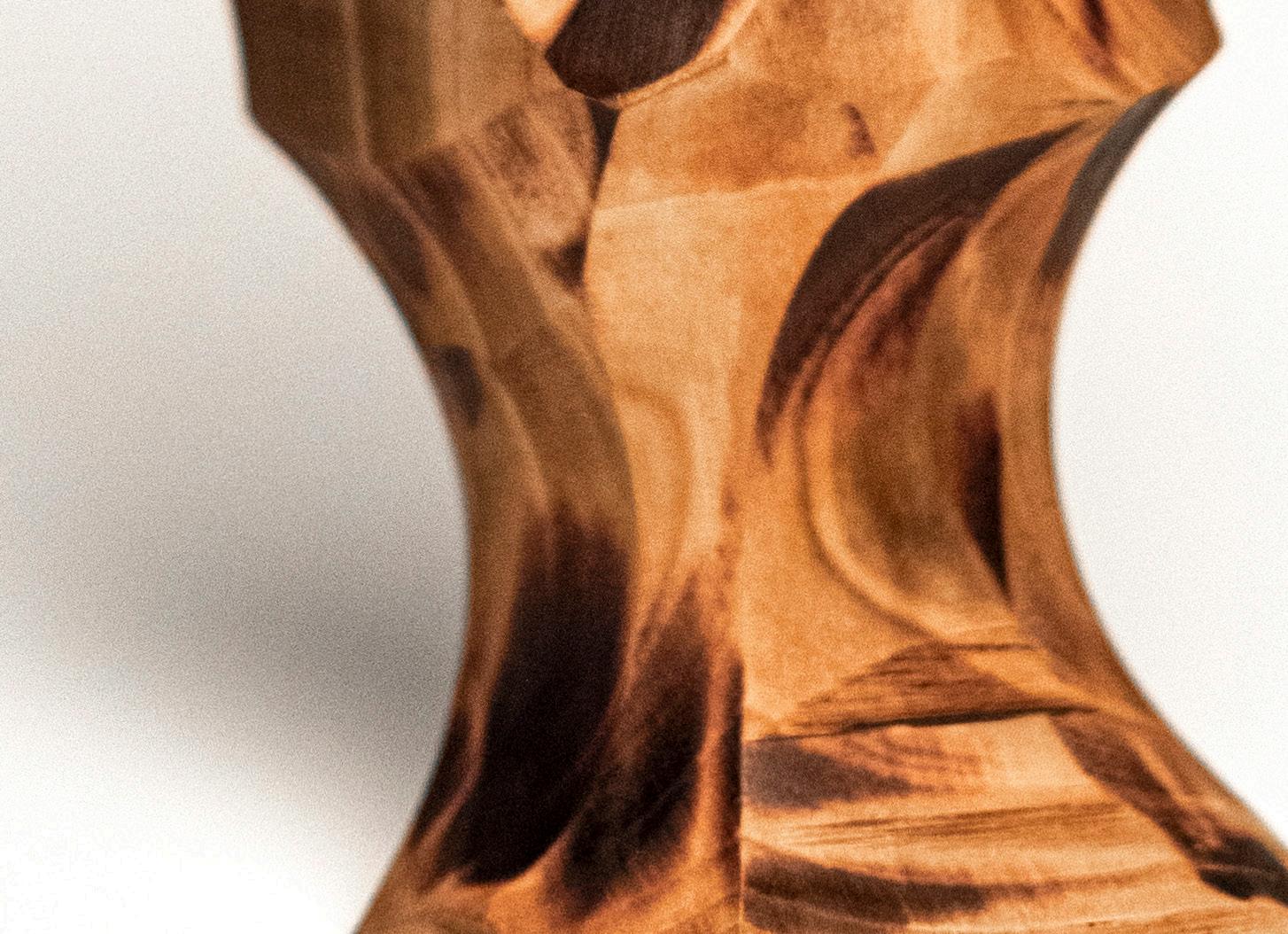
The words I came across most frequently whilst researching this topic were “Conundrum; Enlightenment; Bastion.” I chose these specifically because they reinforced and reminded me of the struggles and sacrifices the fight for emancipation has brought to the community, whilst celebrating the revolutionary societal changes that were brought on by the courageous pioneers of the movement. Those same pioneers not only propagated change, but also stood strong against all opposition for the betterment of the entire community.

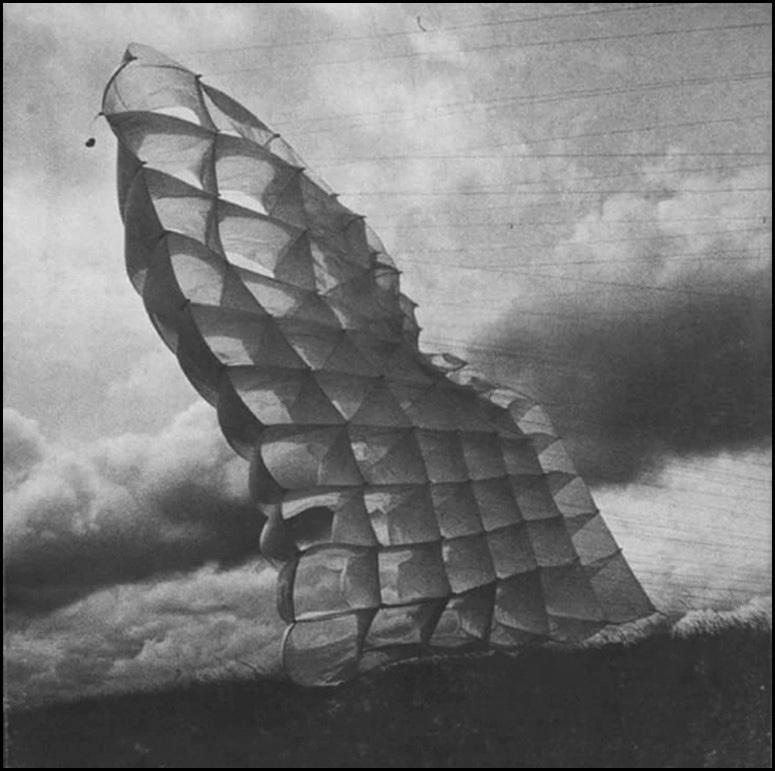
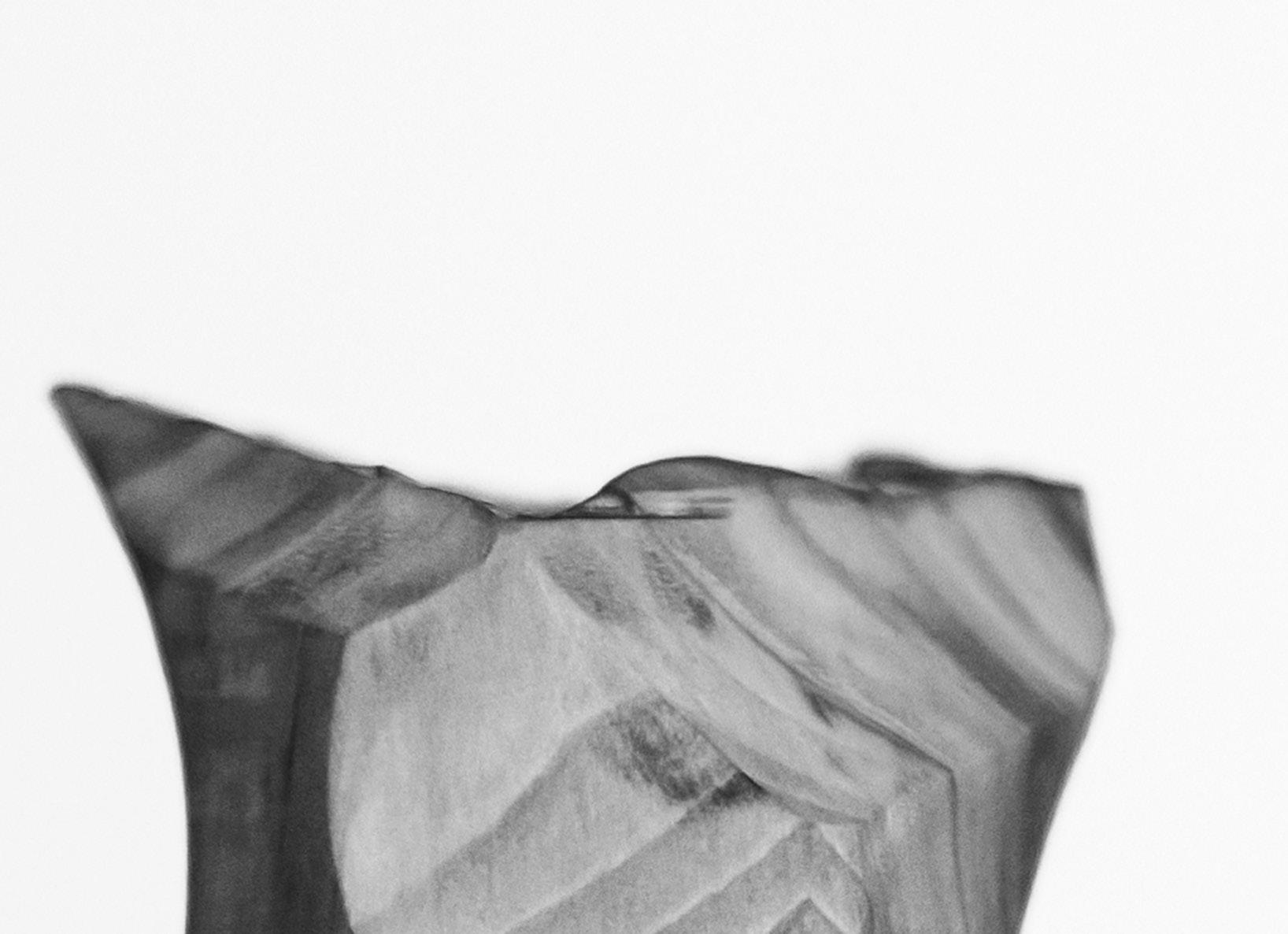
I felt a great sense of responsibility. Conveying my idea in a physical form whilst keeping with the core codes of the fight for emancipation, was a challenge which put my important role as a designer into perspective.




I hope that every time they look at it, they’ll be reminded of their contribution to the great cause they fought for. Either that, or it will just put a smile on their face.
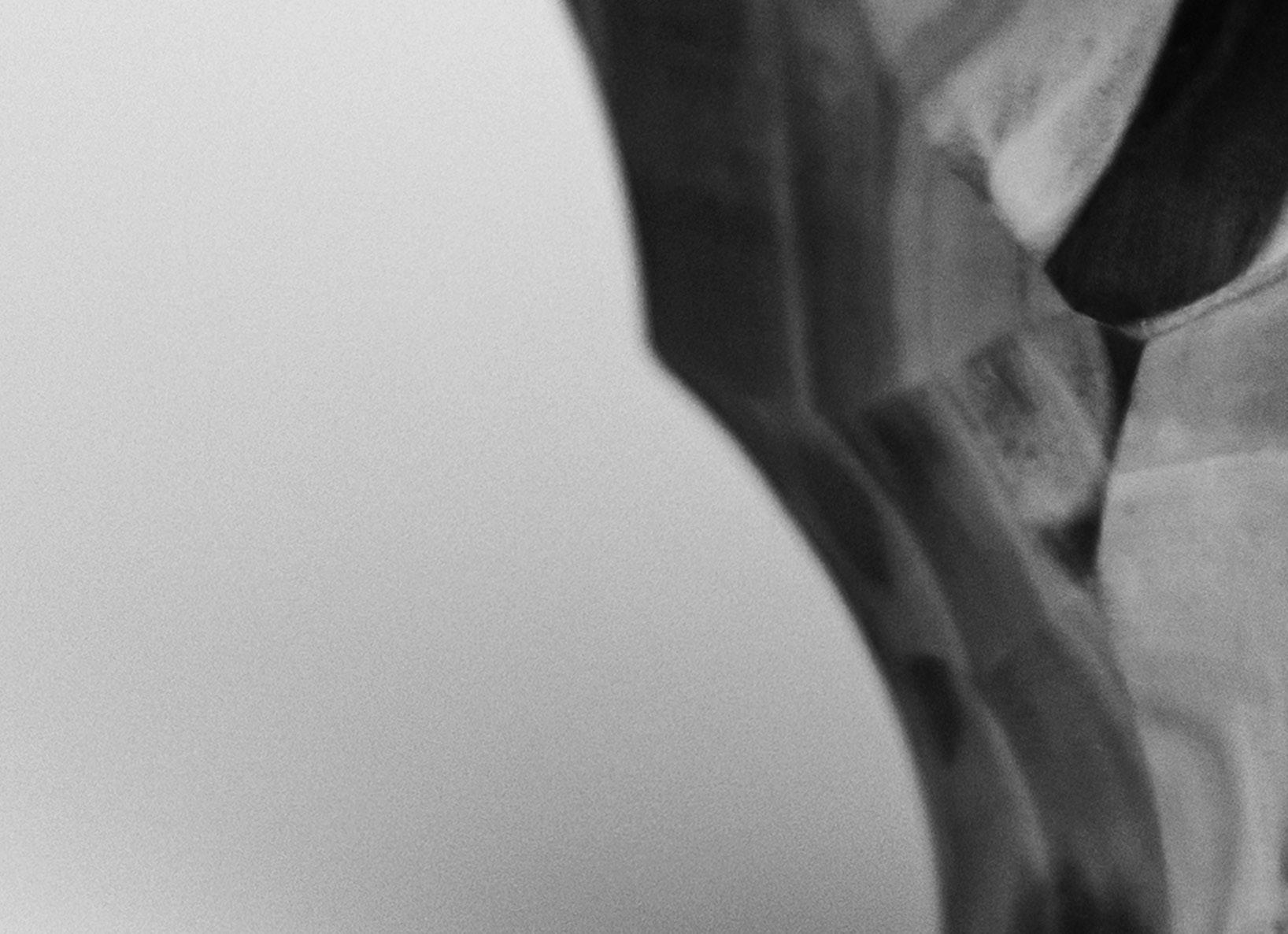
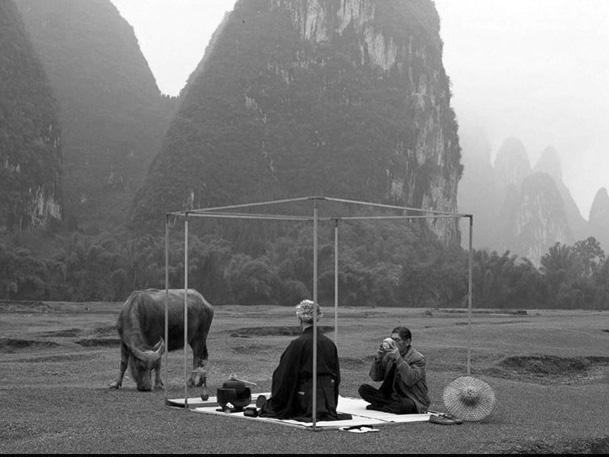
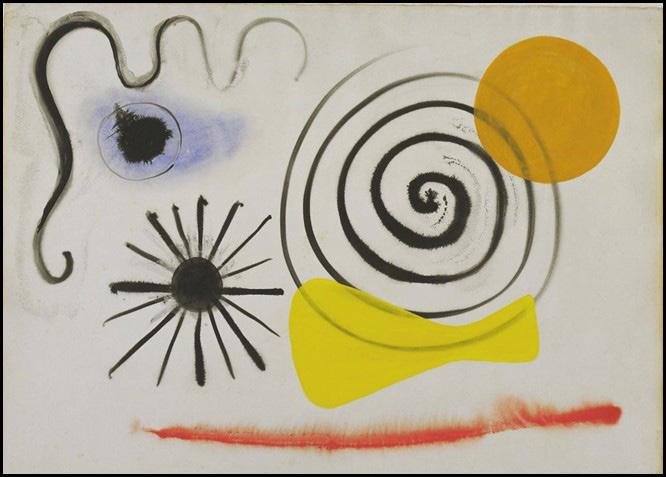


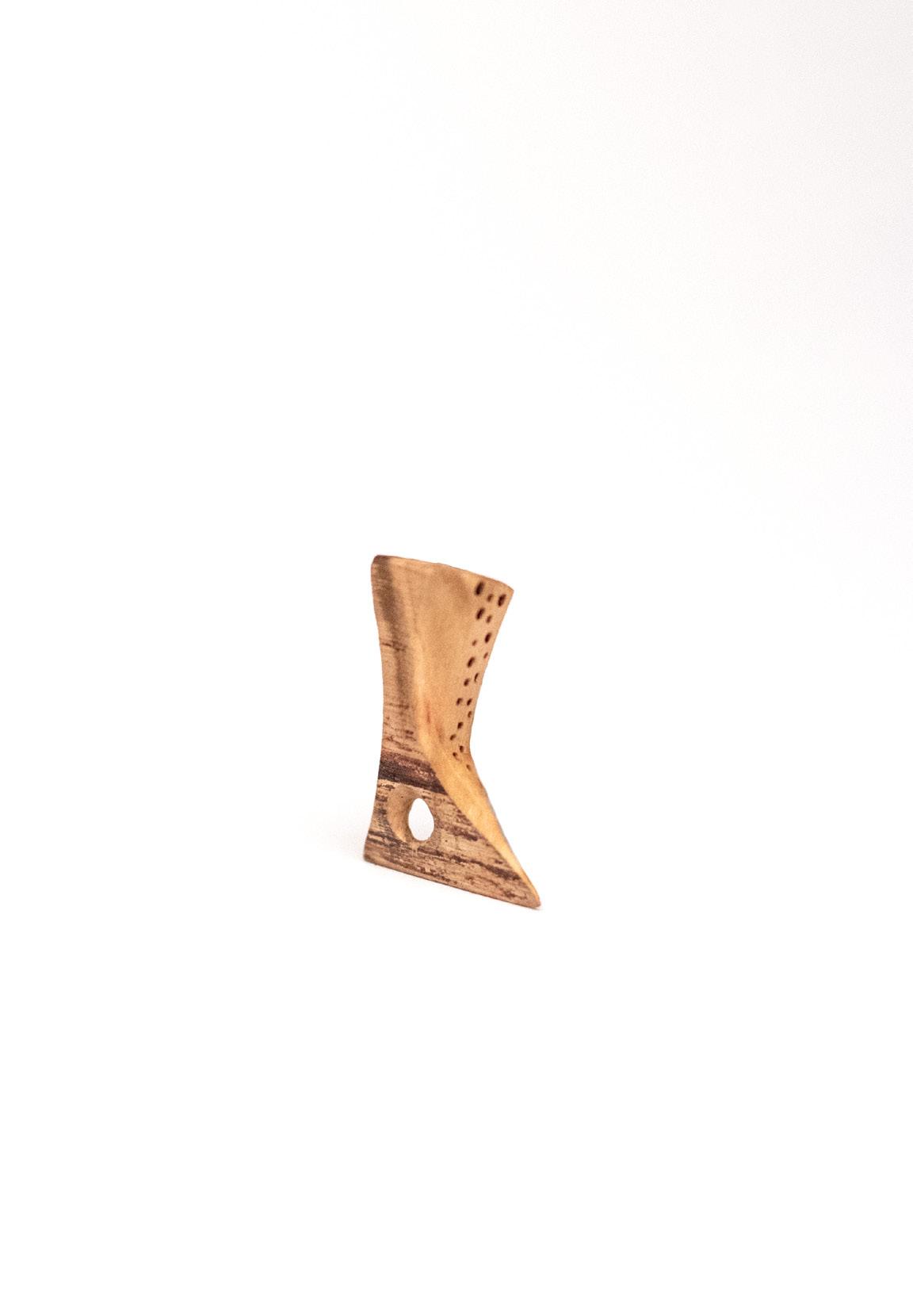
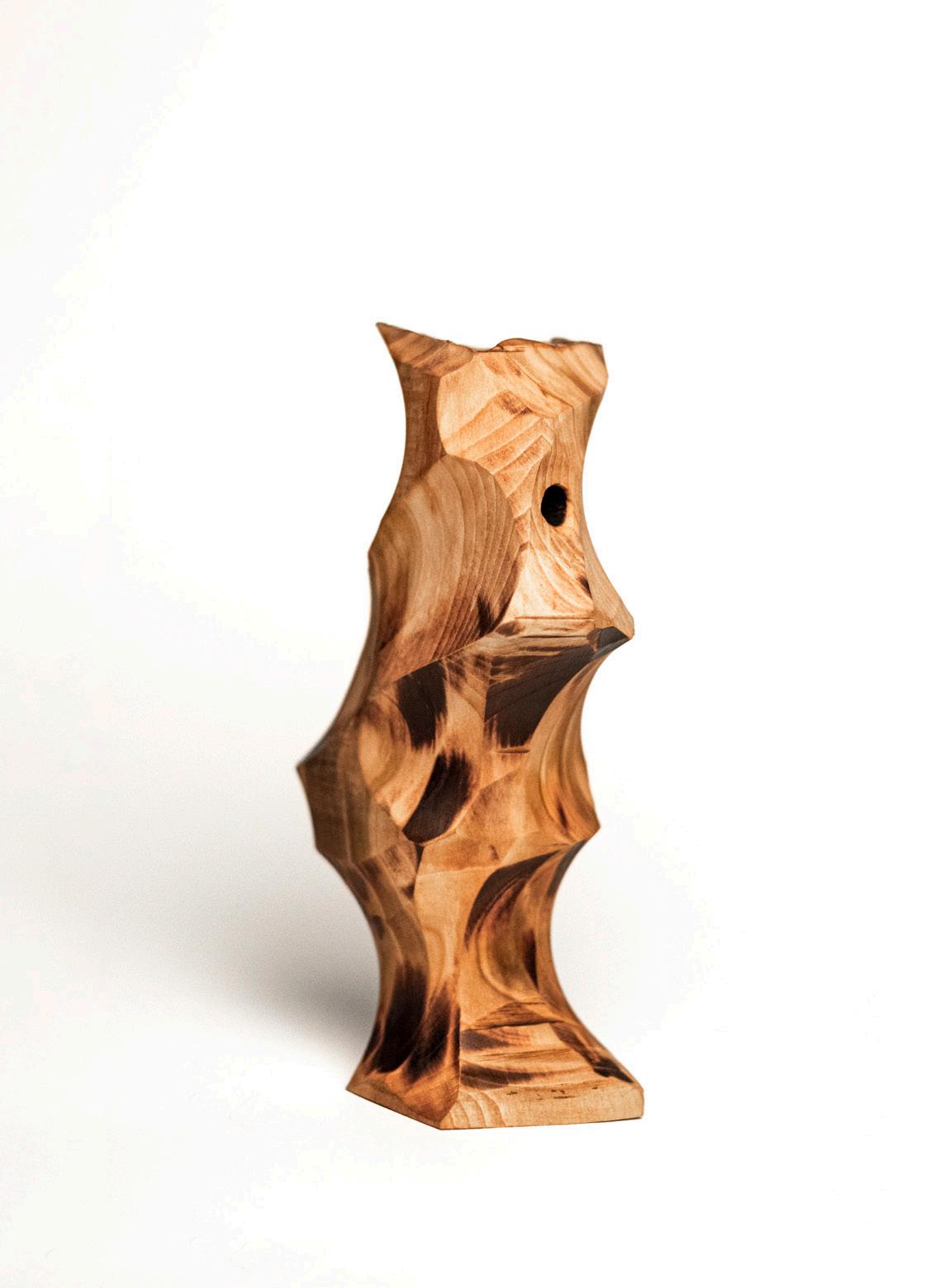

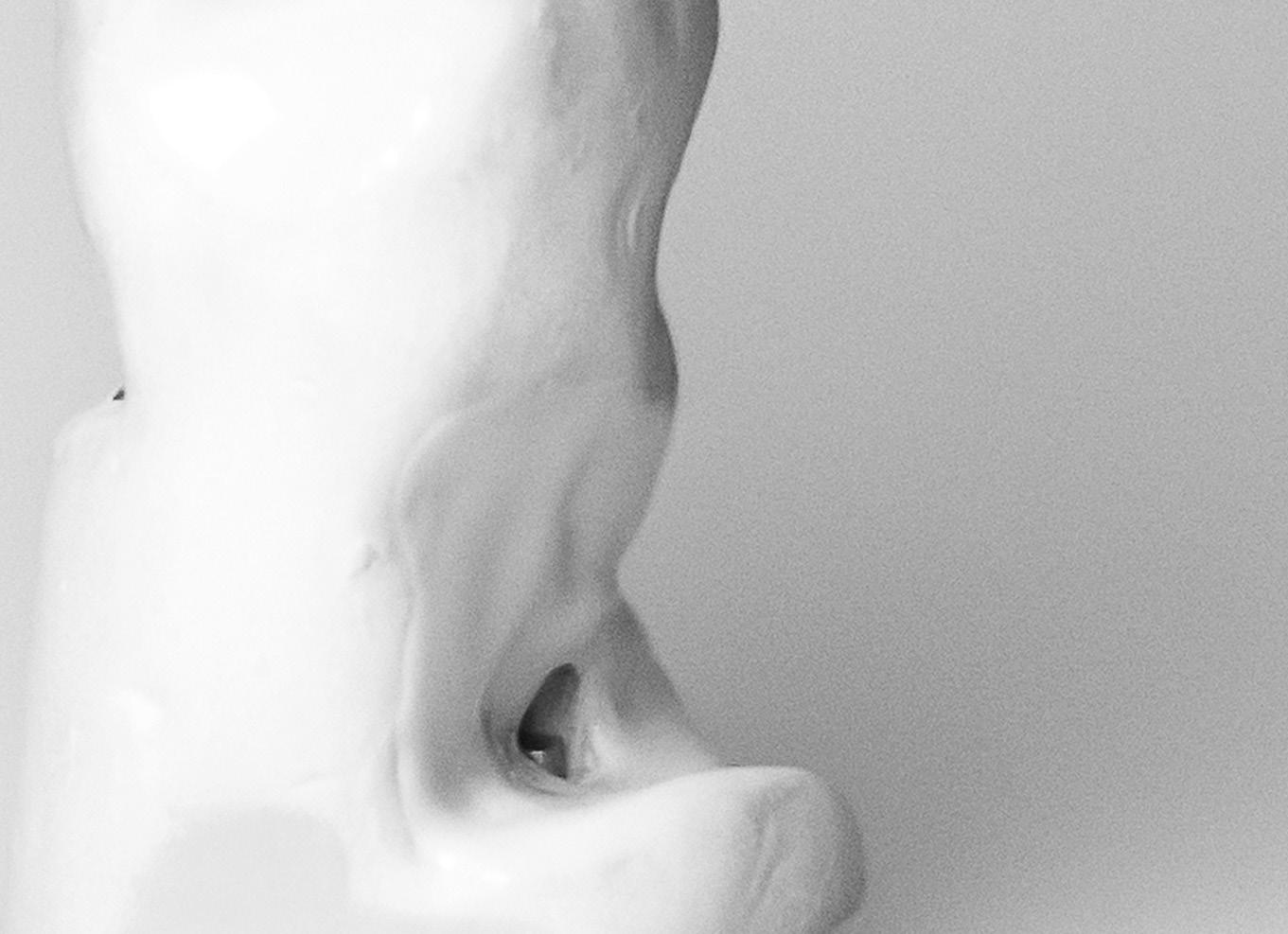
In my concept I explore the relationship between the constrictions of society and a shared female body. In the beginning of my process I saw our society as something rigid, a construction which has us in a tight grip. But along the way I realised that this is not the case. Rather, I began to think of it as a conversation between what is shaping and what is being shaped. Women are not only being shaped and society is not only doing the shaping, we are simultaneously shaping each other. And if we and society are shaping each other, it means we have the possibility to transform it, maybe even into something entirely new. The colour yellow represents the attention we must pay to this — to the changes that need to be made, to acknowledging the changes already made, and to the possibility of changing everything.



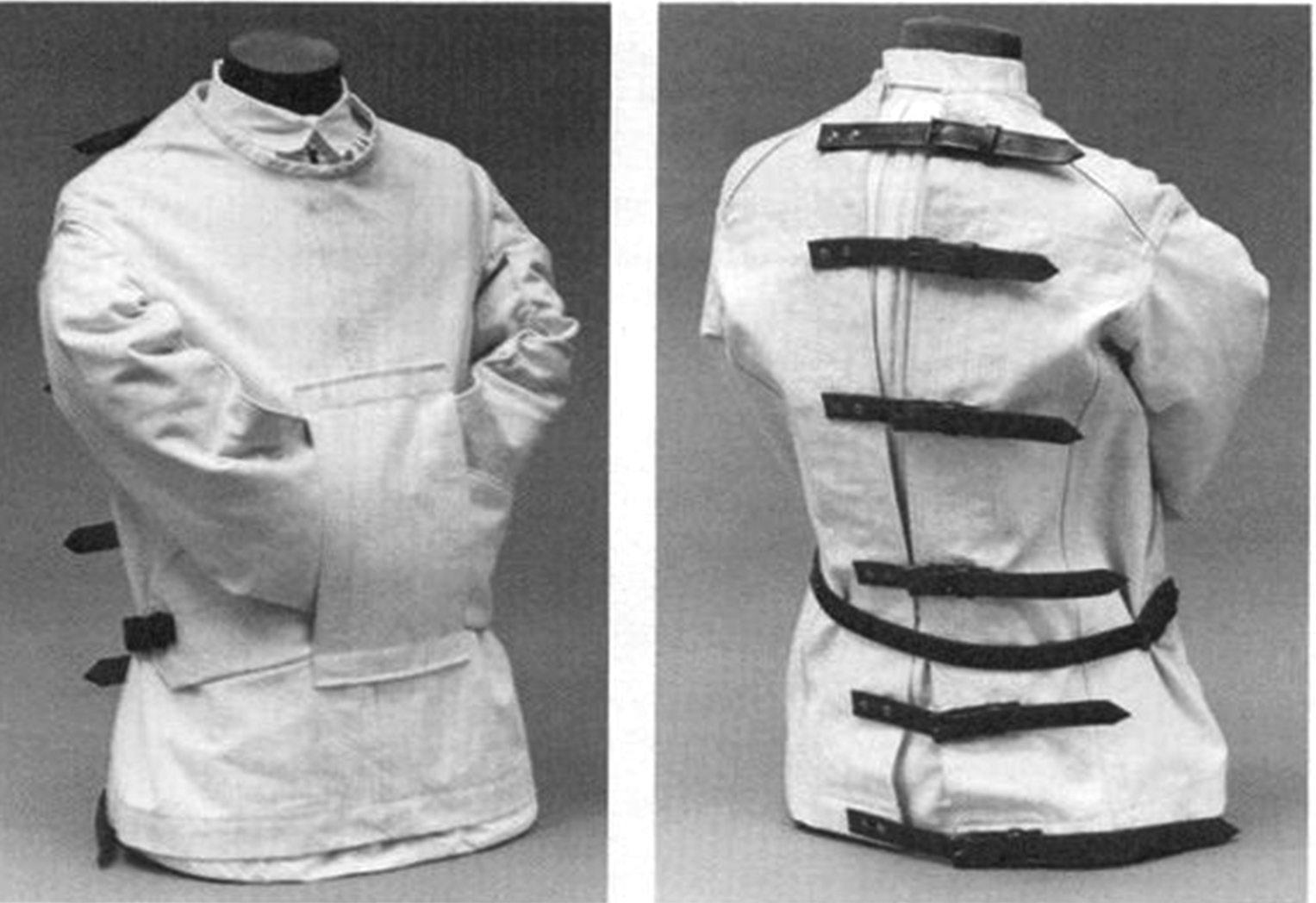
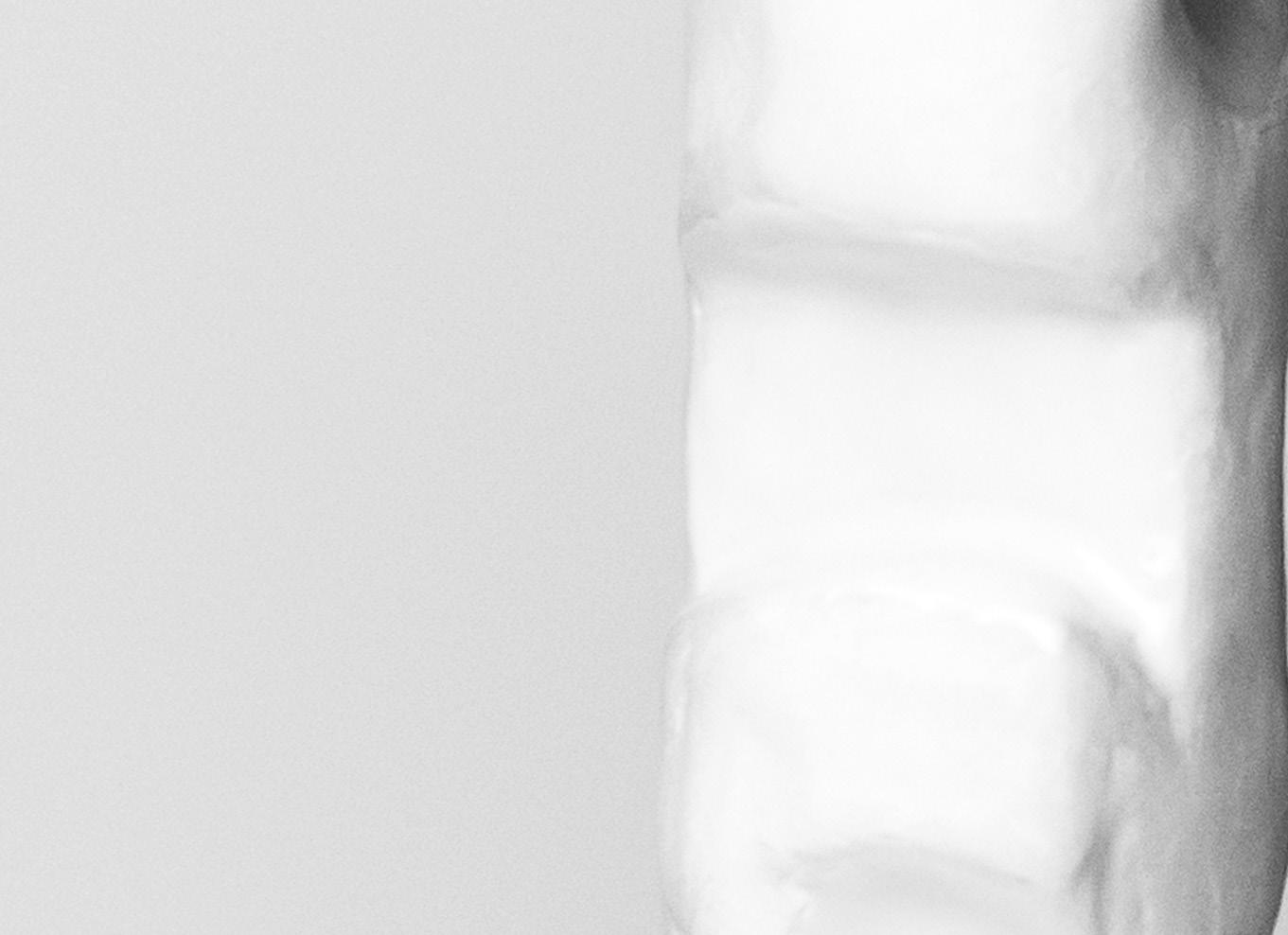
I was excited to work on the Joke Smitprijs because it is an object of celebration. We are taking the time to acknowledge someone and make them feel proud about the work they have done.
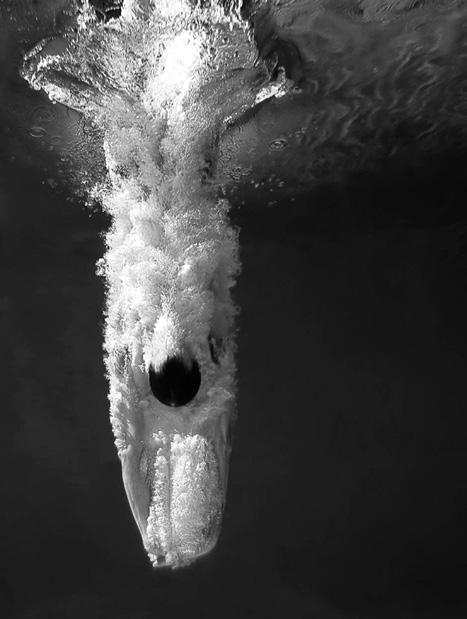



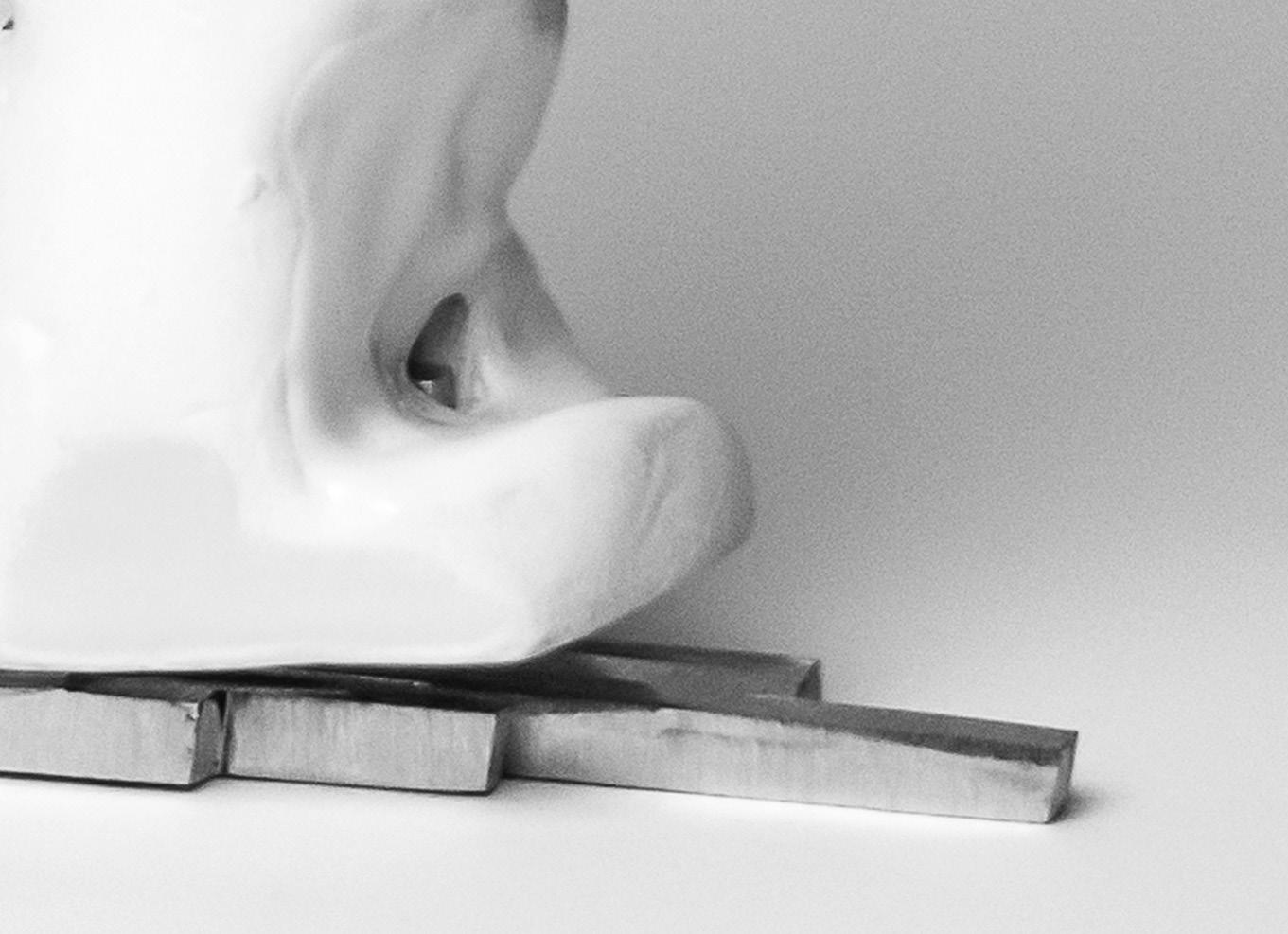
I want them to remember that even though change takes time and can be a struggle, they are part of the reason that changes are being made in our society.
I want to point out the fact that everything existing in society is man made, which means we can change it — perhaps into something completely different from what we know now.



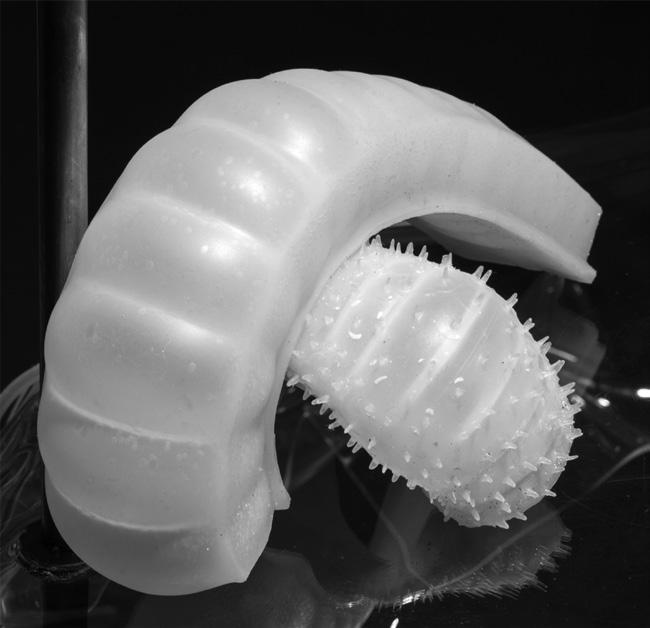
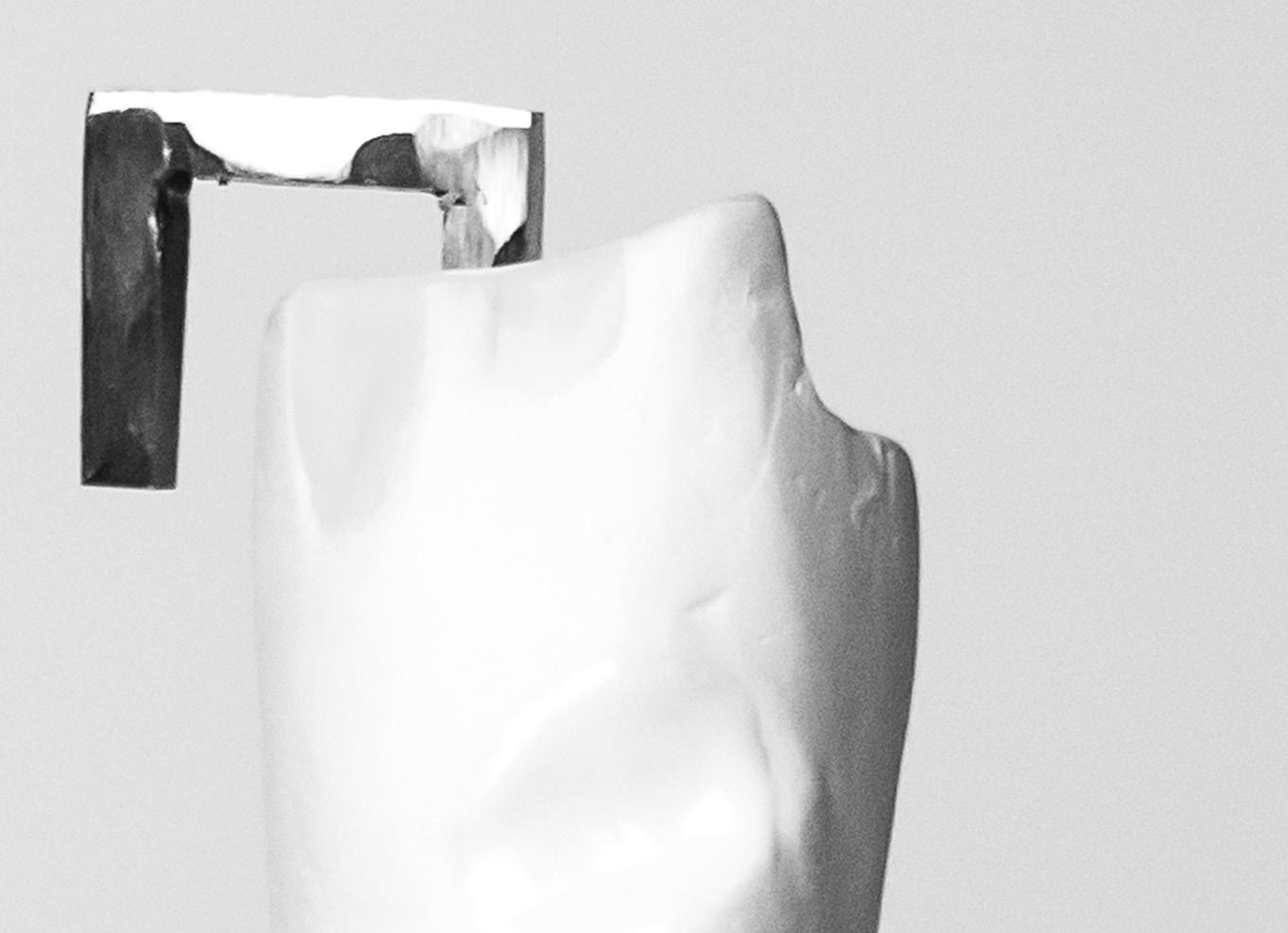
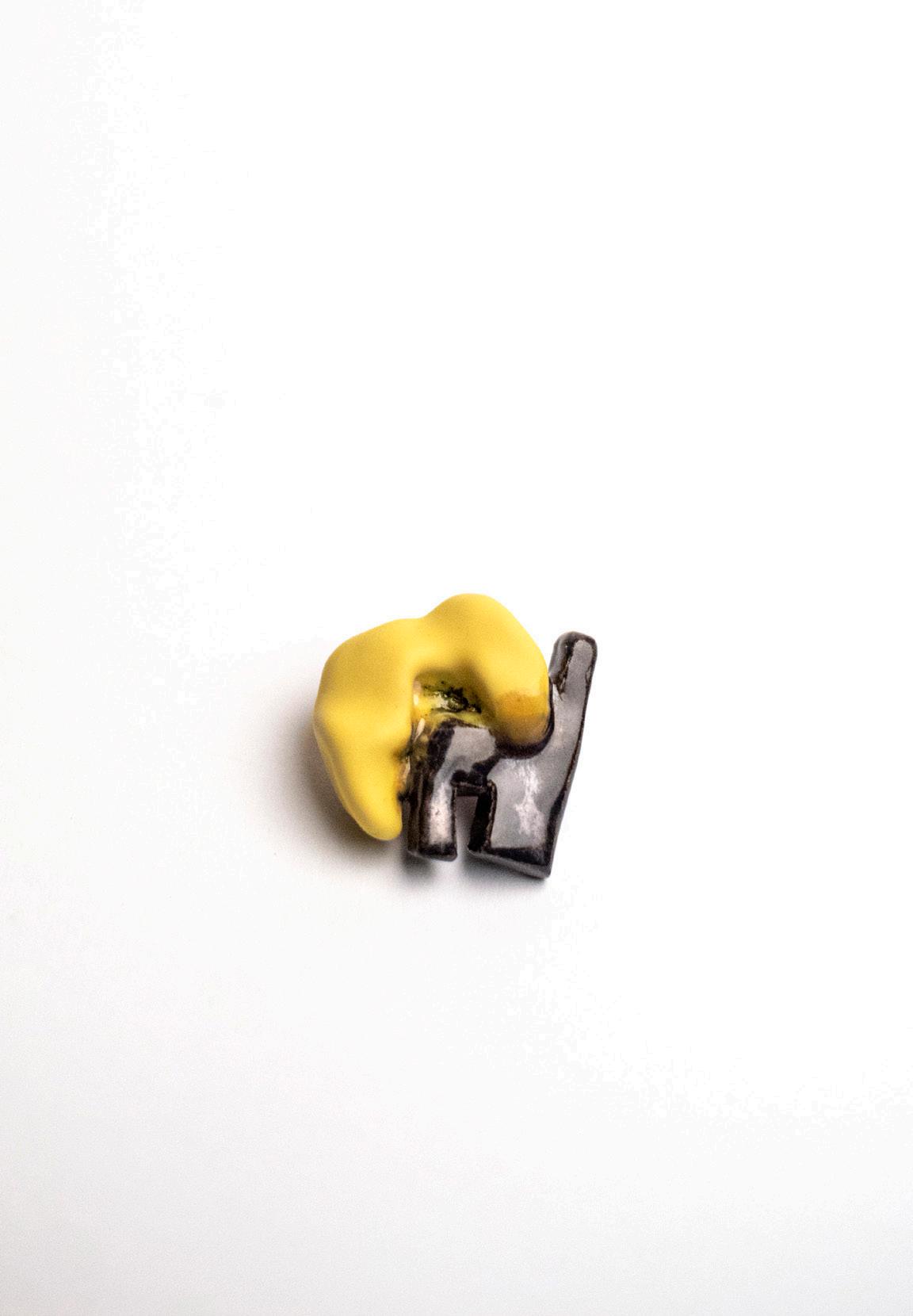
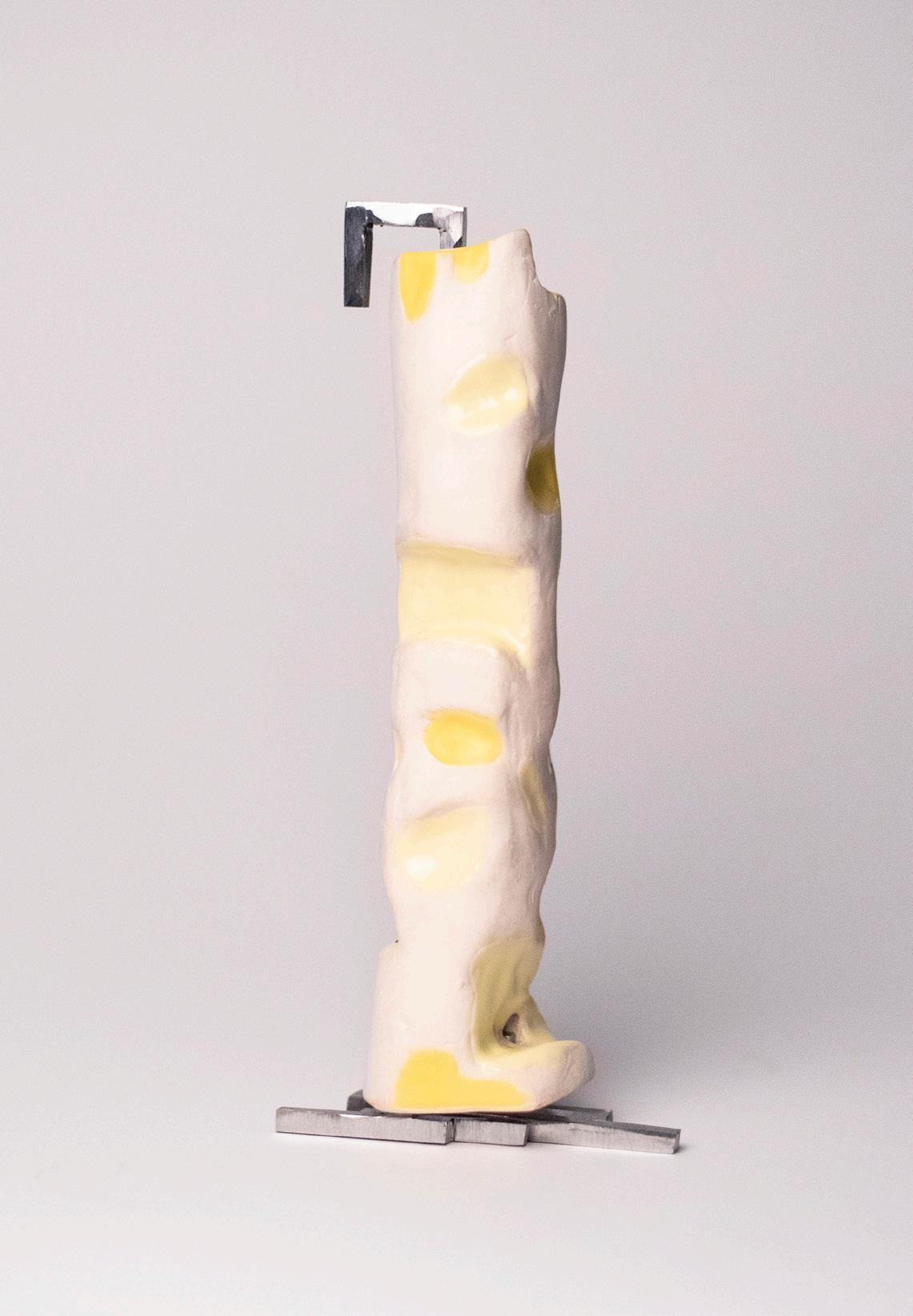

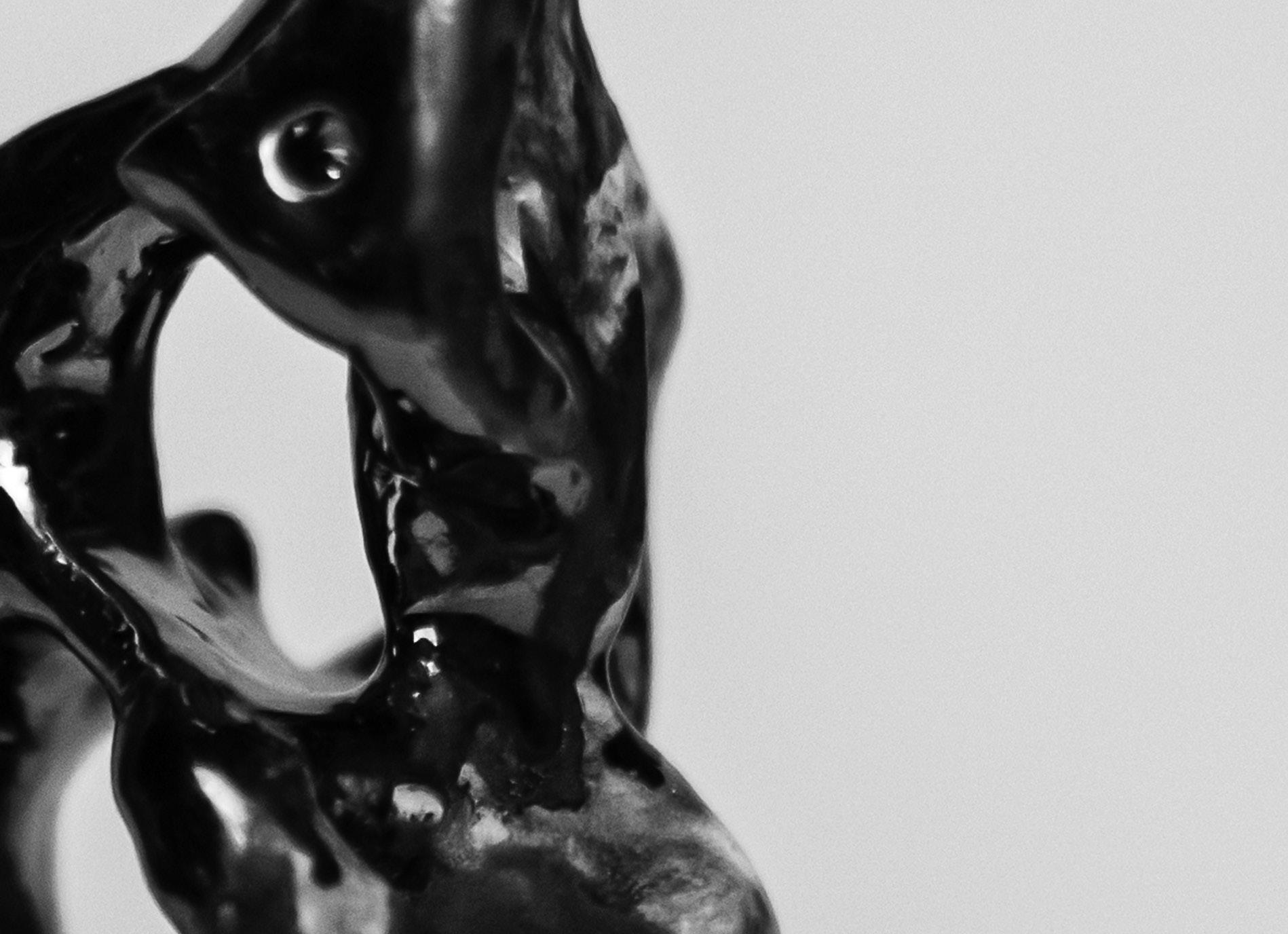
The fact that feminists are decisive with their thoughts, gave me the sense that they are artists. Therefore, I used groups of human-like curves to indicate common features of both artists and feminists. Each curve structurally differs in direction and shape from the others, but eventually forms into one cohesive sculpture. This shows that by acknowledging differences and communal effort, all of us can benefit on a larger scale. Also, the continuous connections and unpredictable starts and ends of each curve, symbolize the continuous efforts of feminists looking backward and forward to develop our society. The metallic and dark colours stand for the challenge and weight that feminists continuously face.

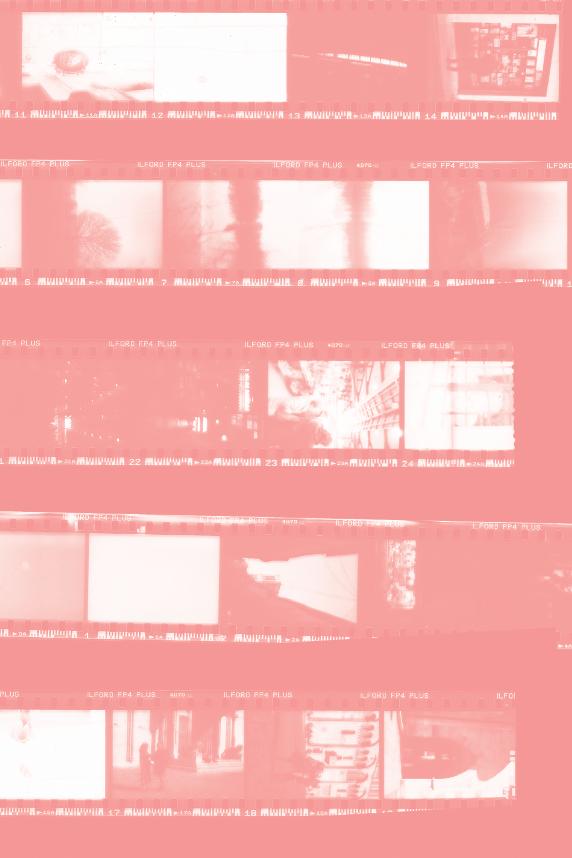


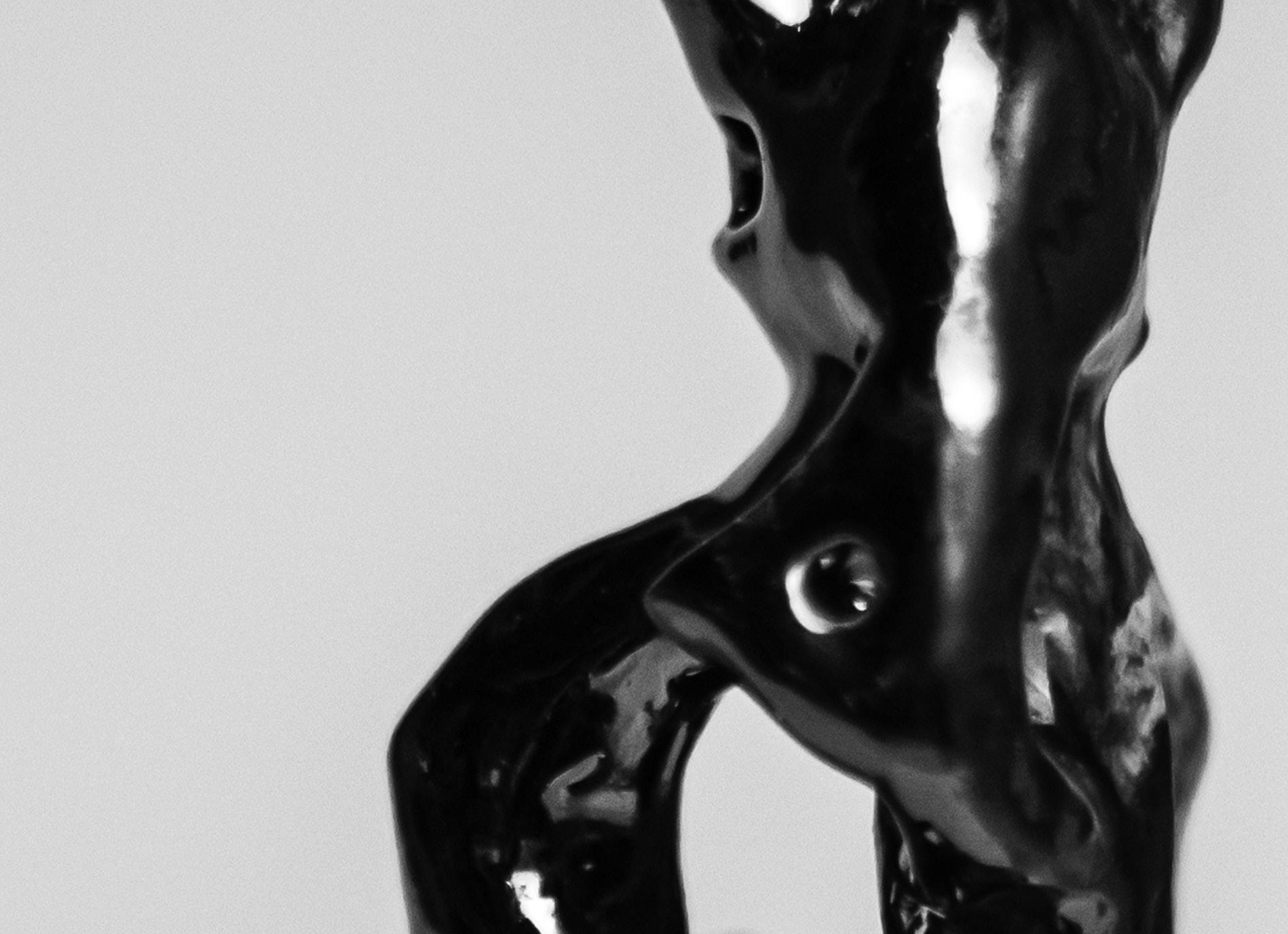
Firstly, it was an honor to join this meaningful project and be a part of the celebration. Secondly, as an art student and future designer, it was a precious opportunity that led me to a huge, unexpected improvement in my practice. By continuously developing the final piece and the concept, I learned how to progress with my own idea over an entire design process. I really enjoyed this aspect, and feel proud about what I have achieved both physically and mentally.


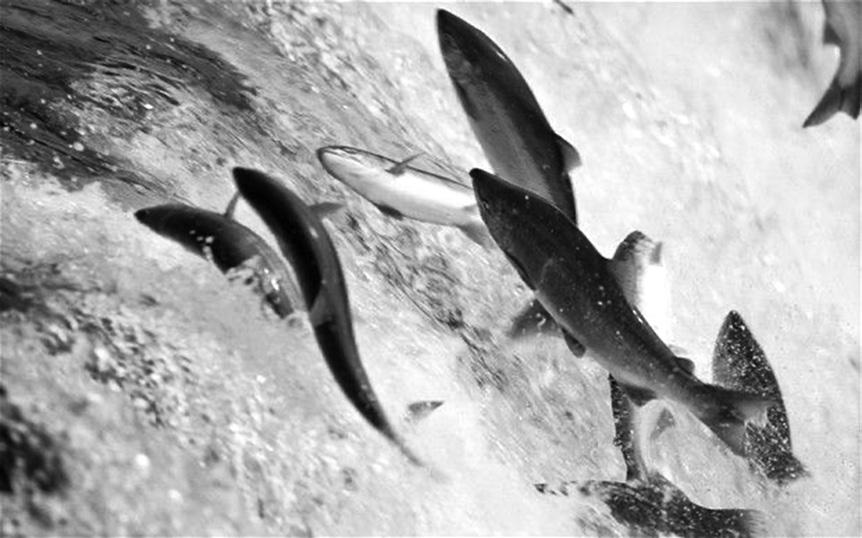



I want the winner to feel pride and a sense of accomplishment for overcoming challenges and connecting to all of us.
I also hope they can sense the spirit of an artist, and in a way, express their own personal artist within.

We should appreciate feminists’ contribution to society, since they took the initiative to face challenges and discomfort. We should also think of each other’s perspectives and respect each other the same way we respect ourselves.
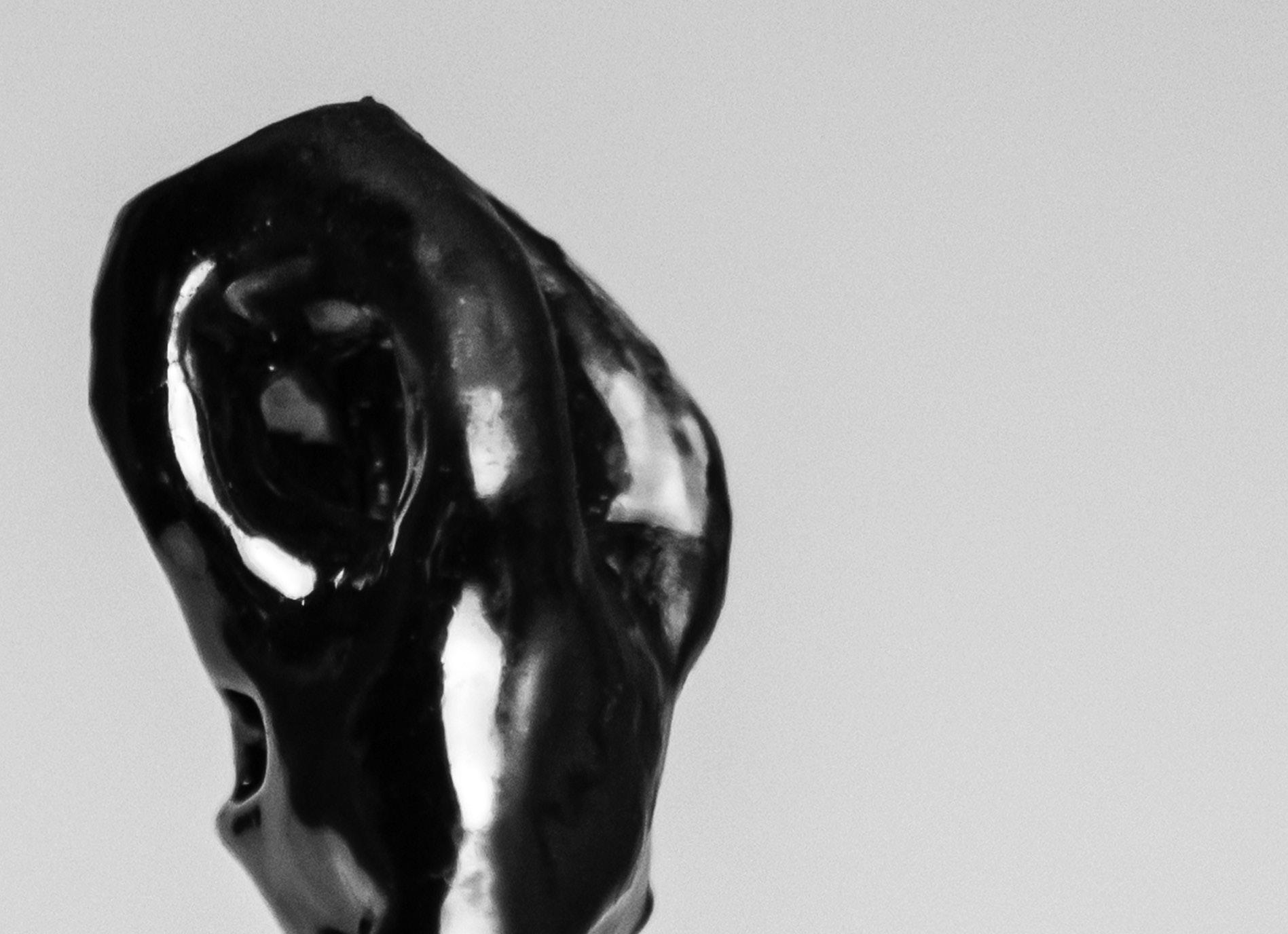
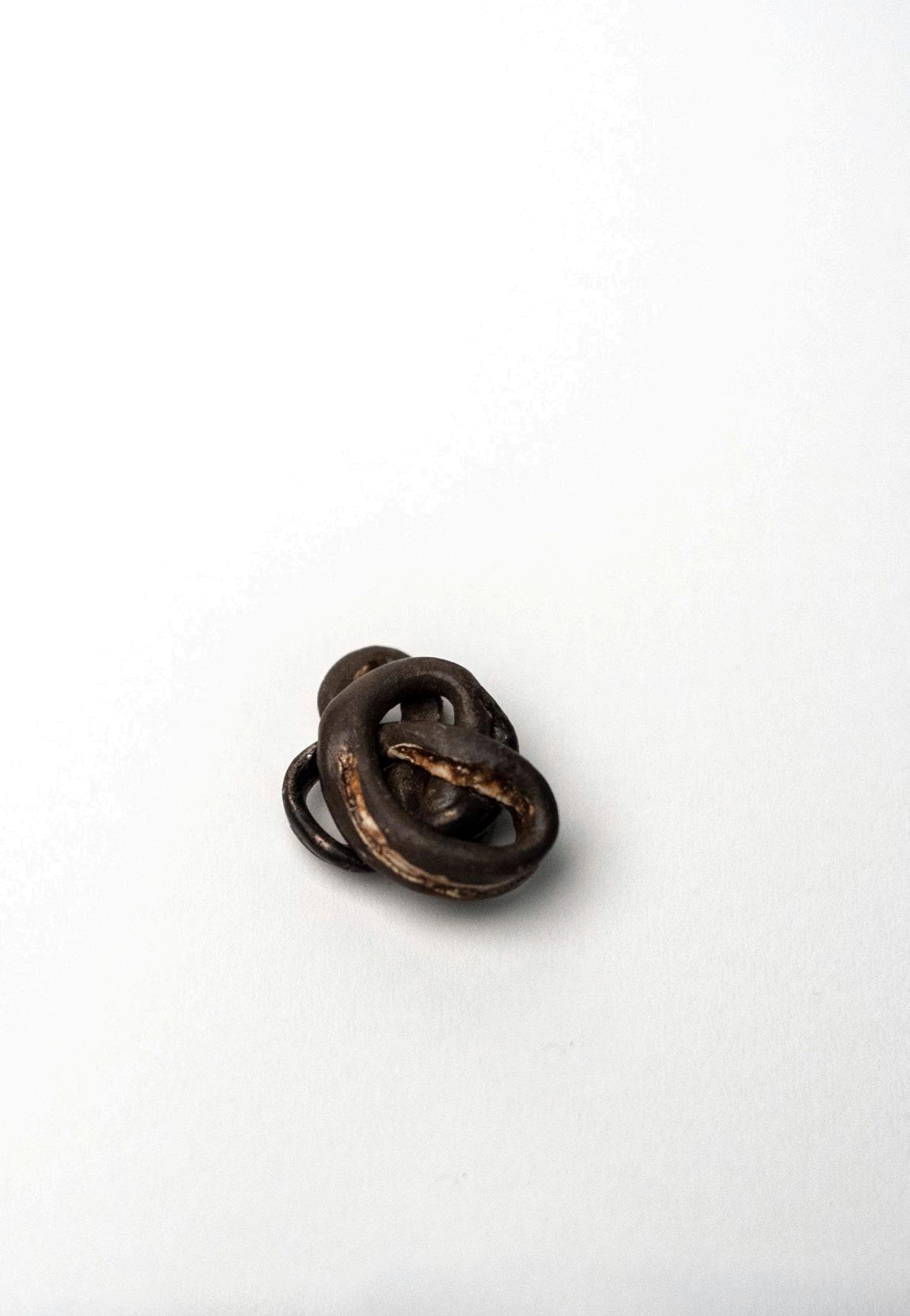


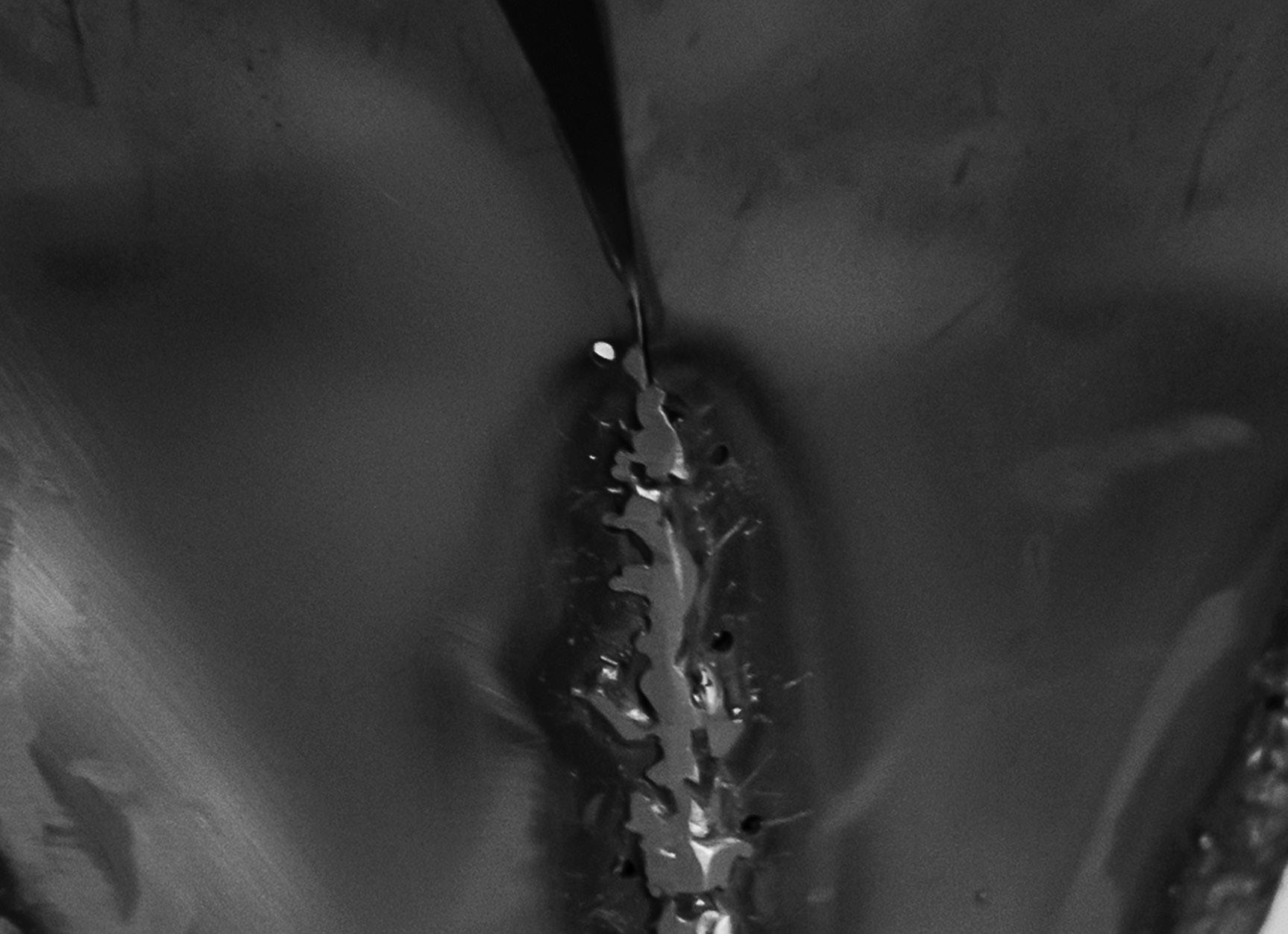
Women are encumbered by current and past expectations and roles that have been forced upon them. There is a constant upward battle that must be fought to get rid of this encumberment, one that focuses on both equity and empowerment. Part of this battle, is the idea that certain roles must be reversed in order to show that women are capable of the same things men are. Feminism is about both equity and equality. Through the riddance of the aforementioned encumberment we can reach a place where women not only survive, but also thrive as they deserve to.

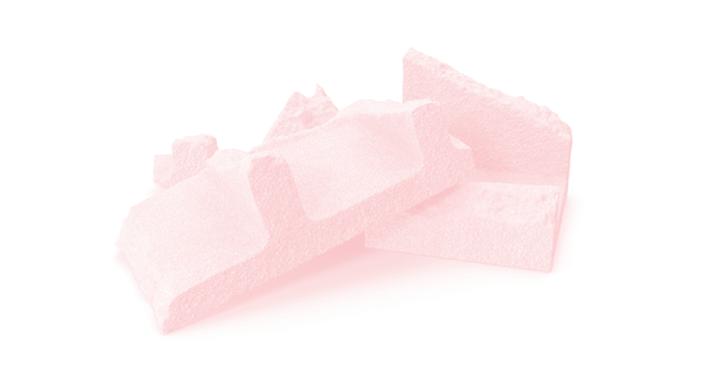



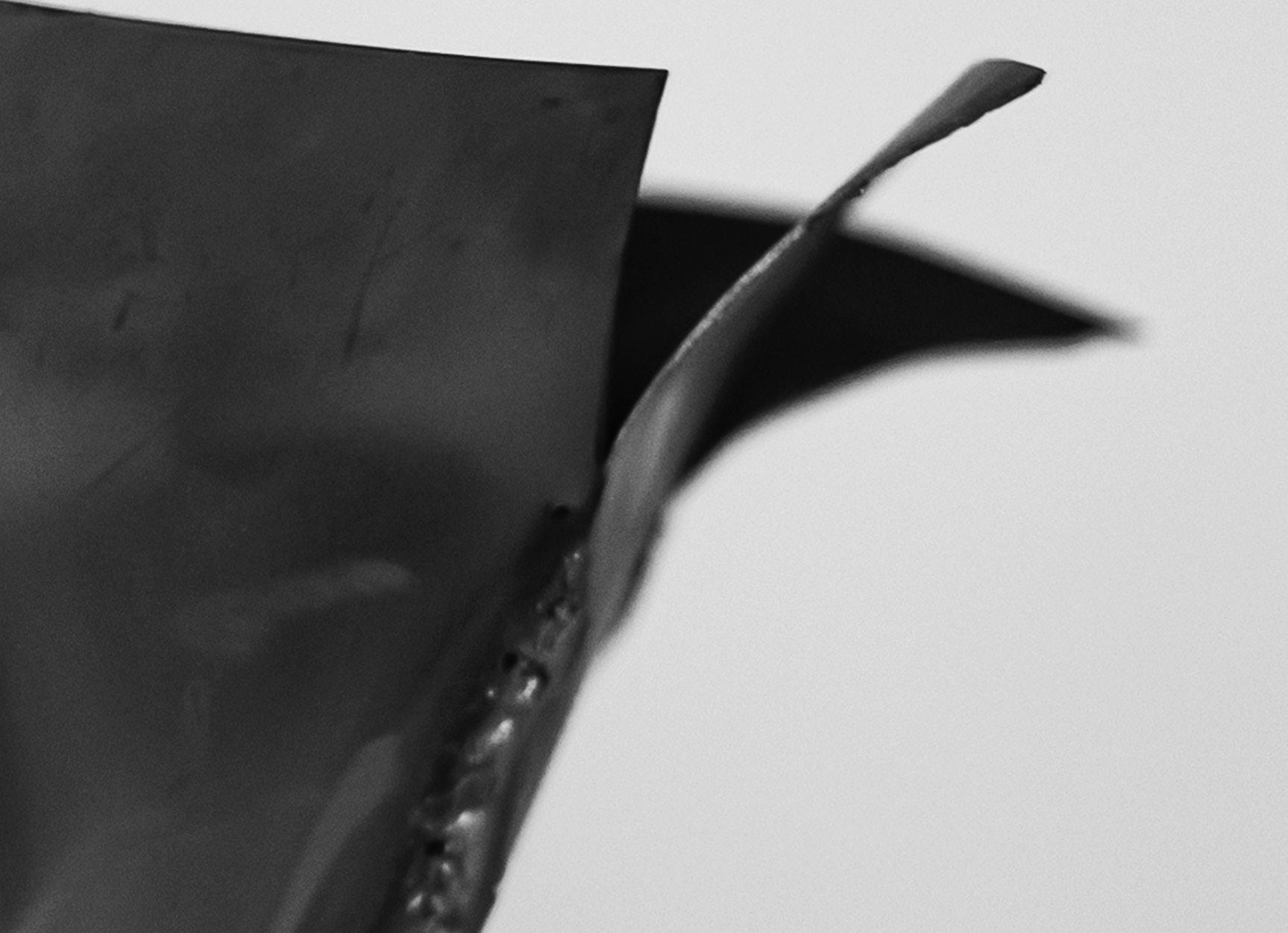
I felt a responsibility to provide something worthy to someone who would receive such a significant award.


I hope they will understand the idea behind the upward and outward movements that the trophy represents — the movement away from encumberment and towards emancipation.
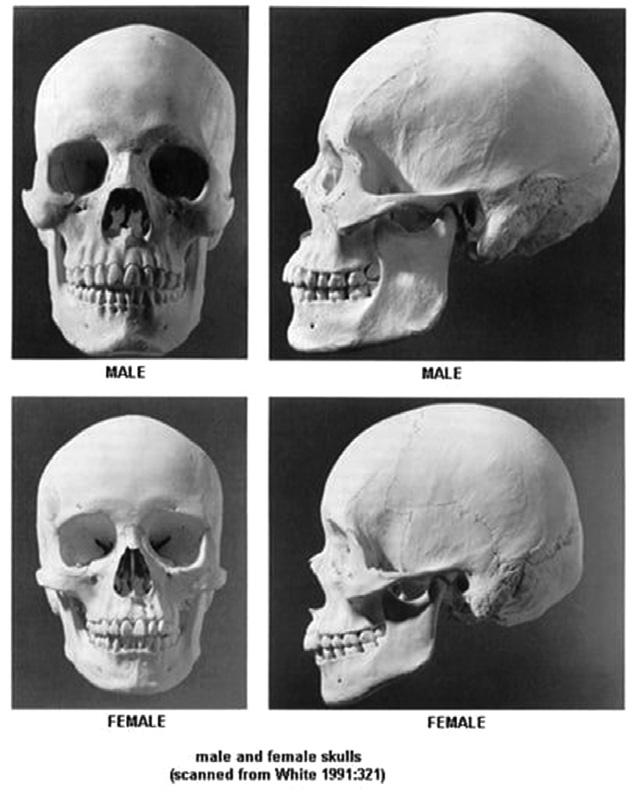
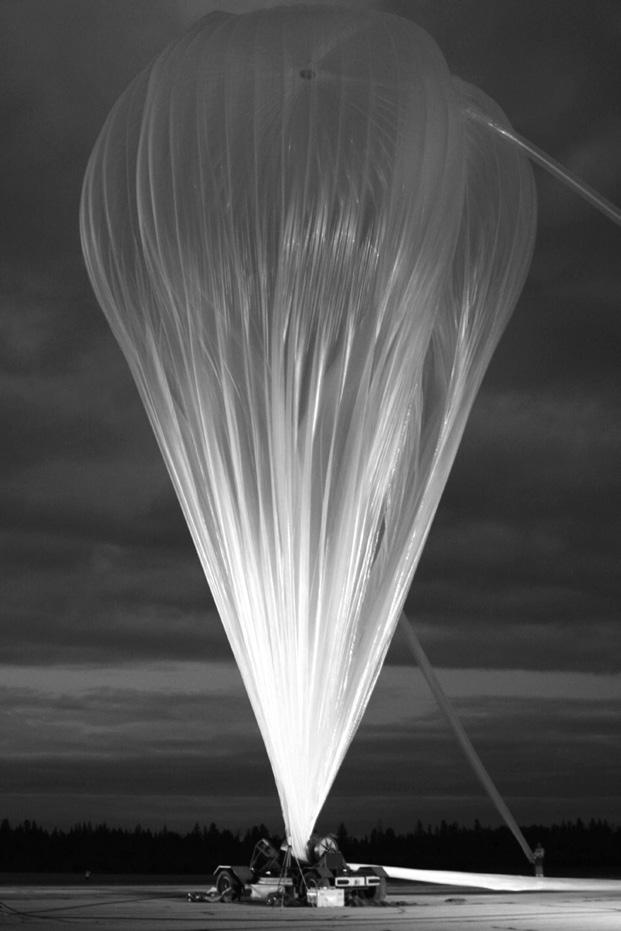

The

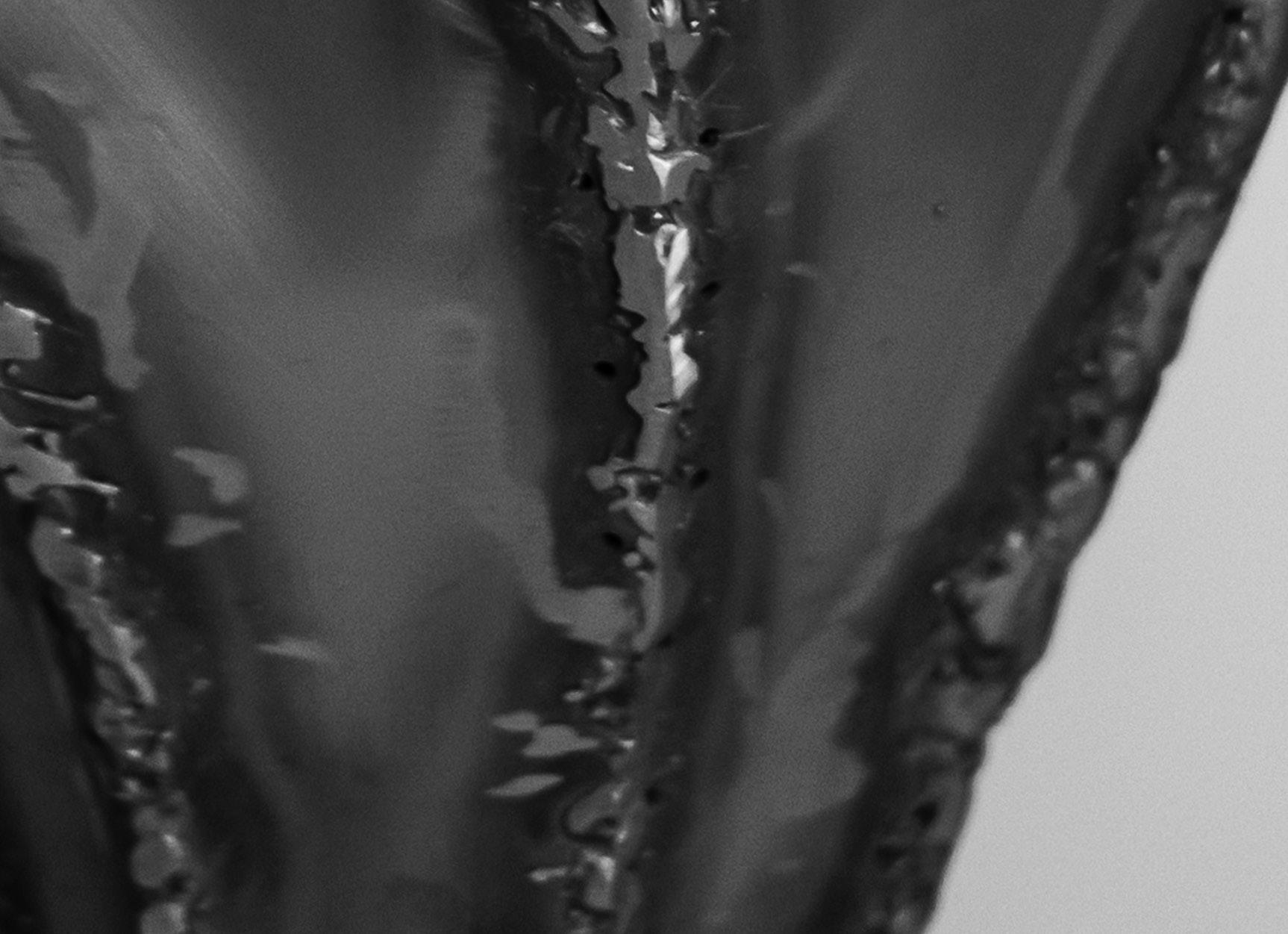
battle for emancipation is both personal and collective. True intersectional feminism is about pushing the boundaries of your own personal circumstance, as well as supporting those who may live under different circumstances.
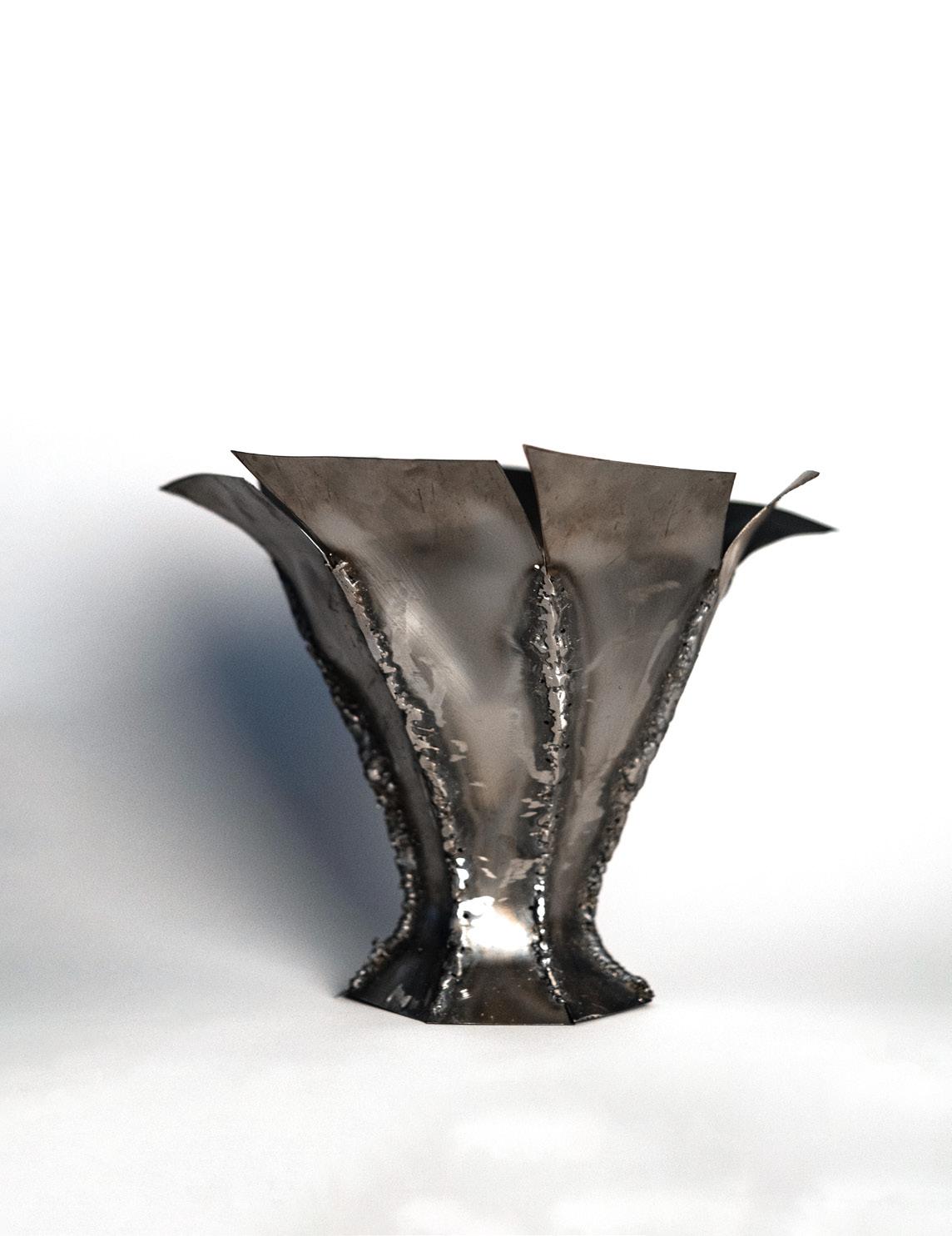
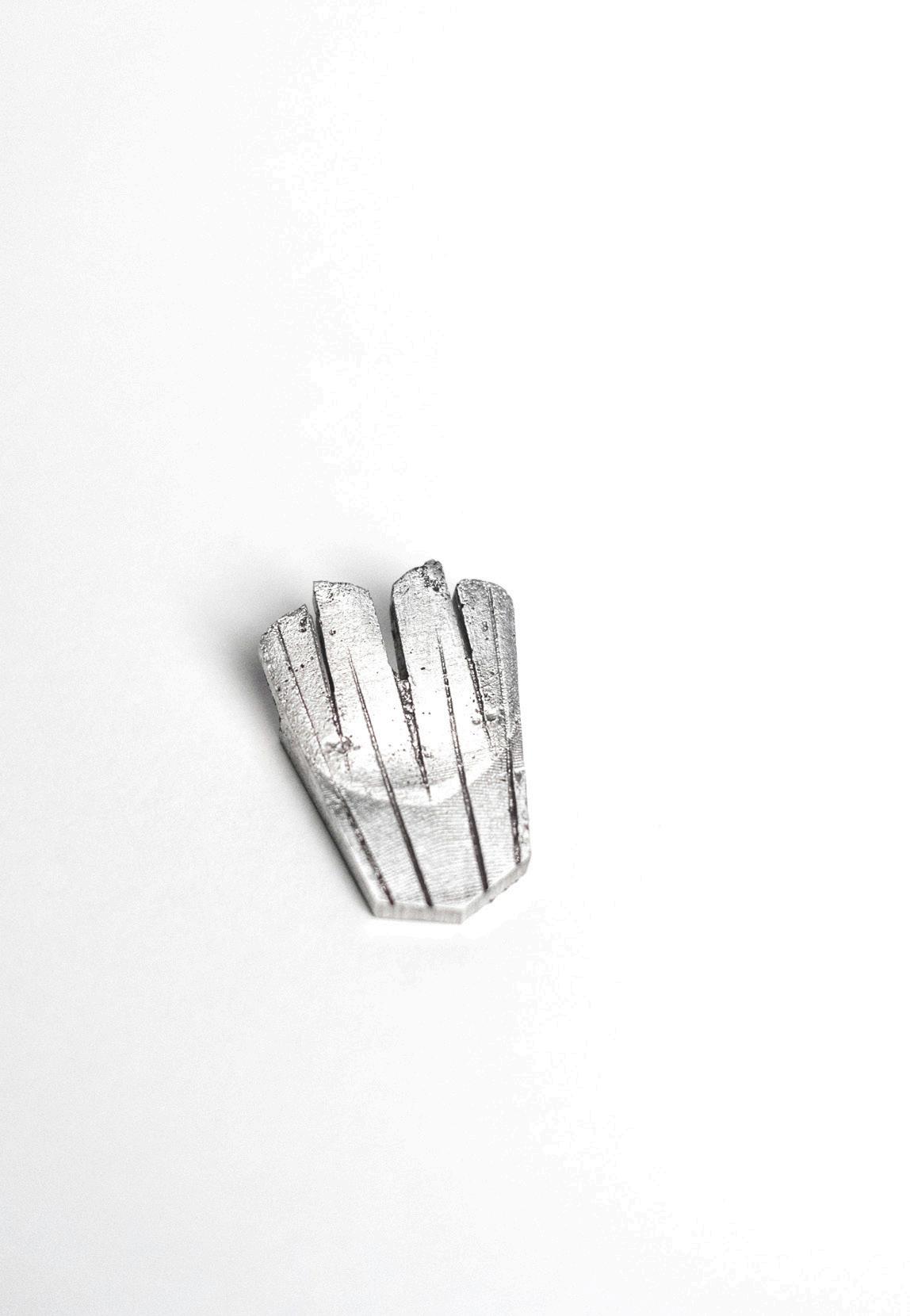

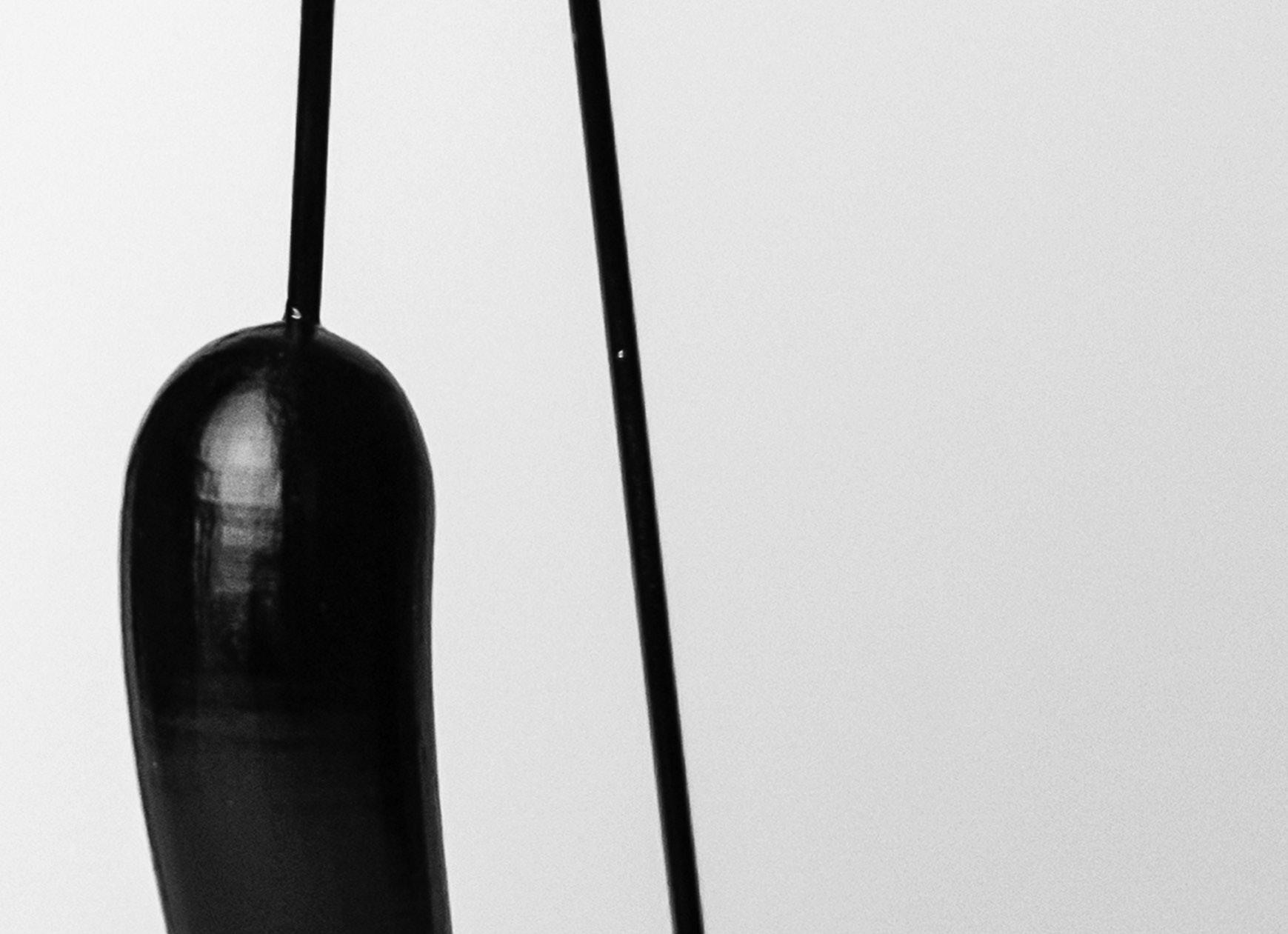
Whilst researching feminism and its history, one aspect kept striking me: the warm feeling of raw determination. With my work I hope to honour the people who dedicate their lives to the fight for equality. I’ve aimed to capture their bursting energy. Like a snowball hurtling down a hill, these women charge though walls head first, to dismantle female oppression. Their feisty, in-your-face spirit drives the movement forward, radiating a deep instinctive feeling from its very core.
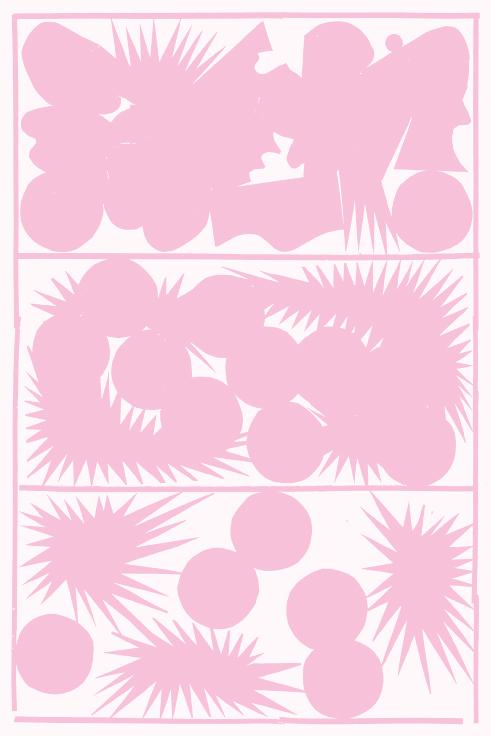
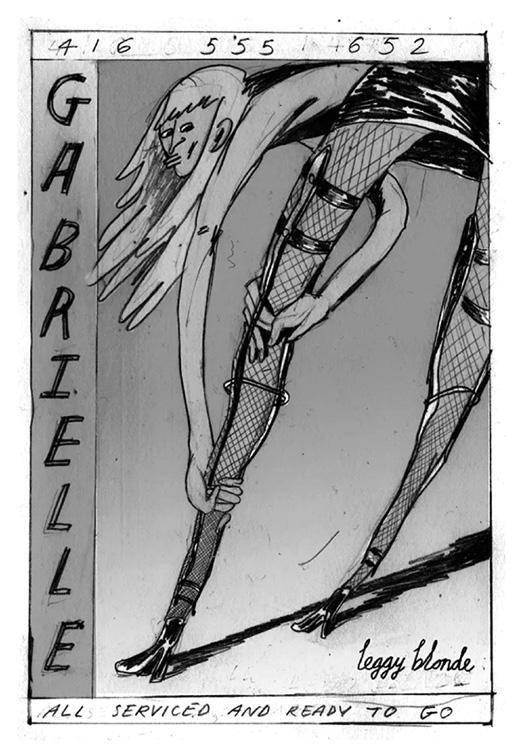
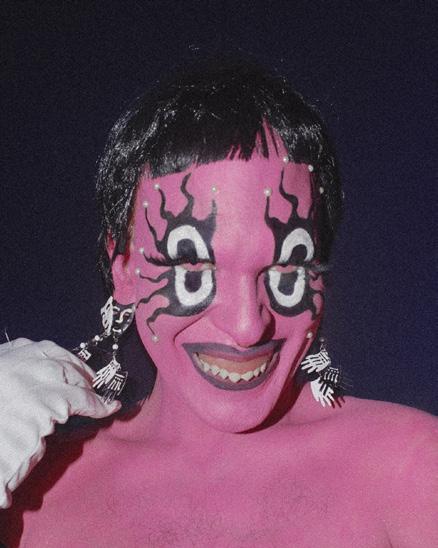

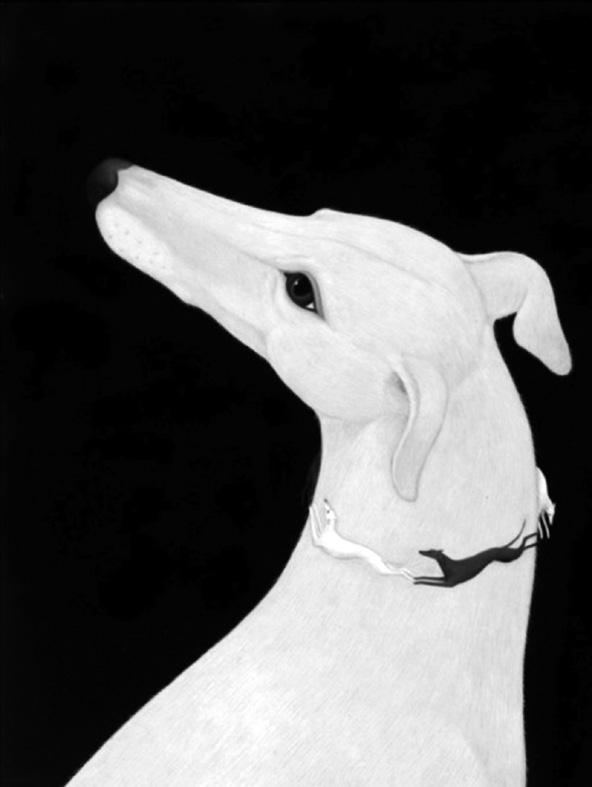
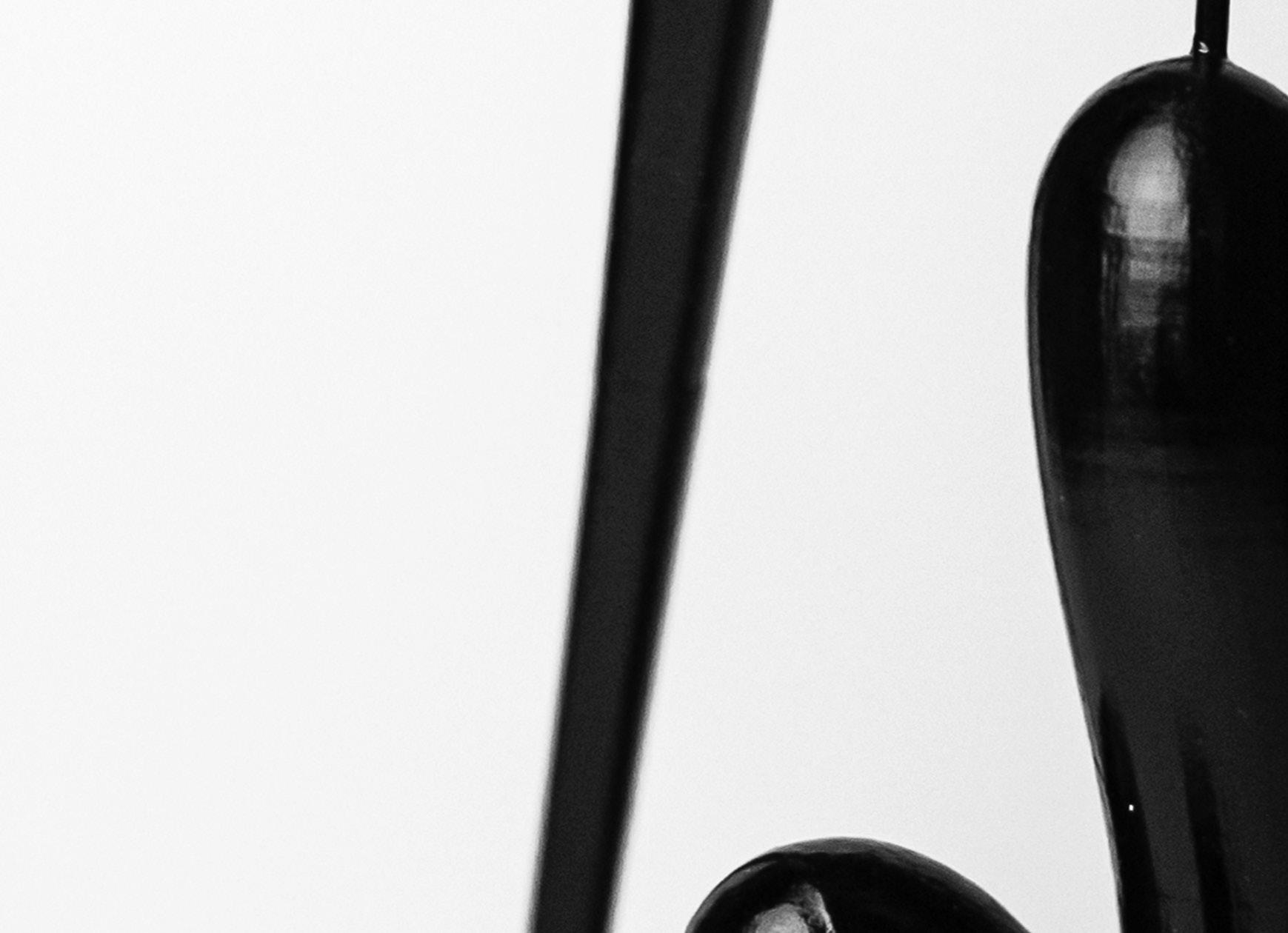
Developing my concept made me aware of the important role we have as designers in today’s world.



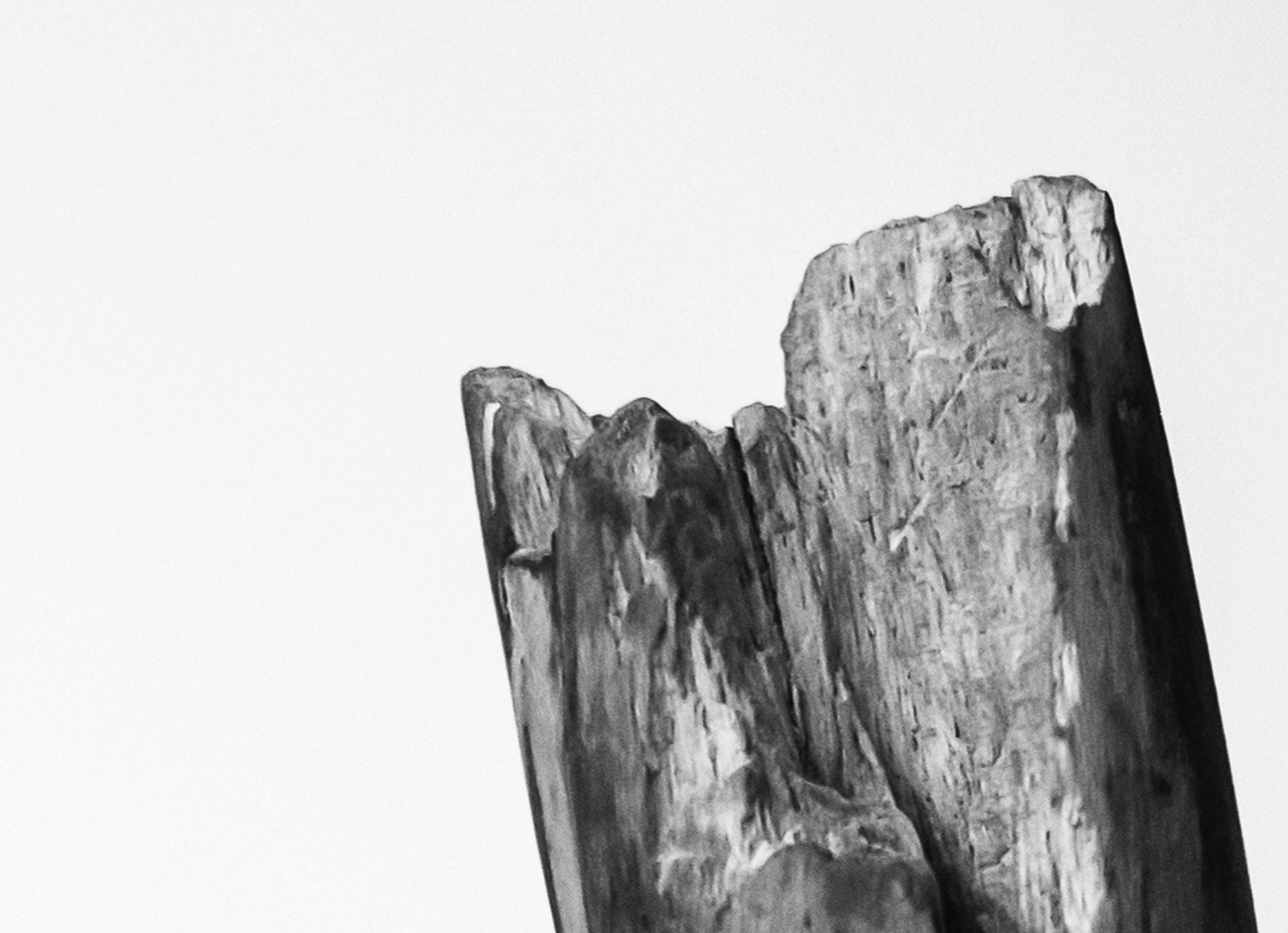
I hope the winner will feel seen and appreciated. I want them to feel like they are
being hugged very tightly.


While fighting for equality it is easy to get distracted by titles and headlines, ideas and concepts. But in the end, we are all just people, so why hate?

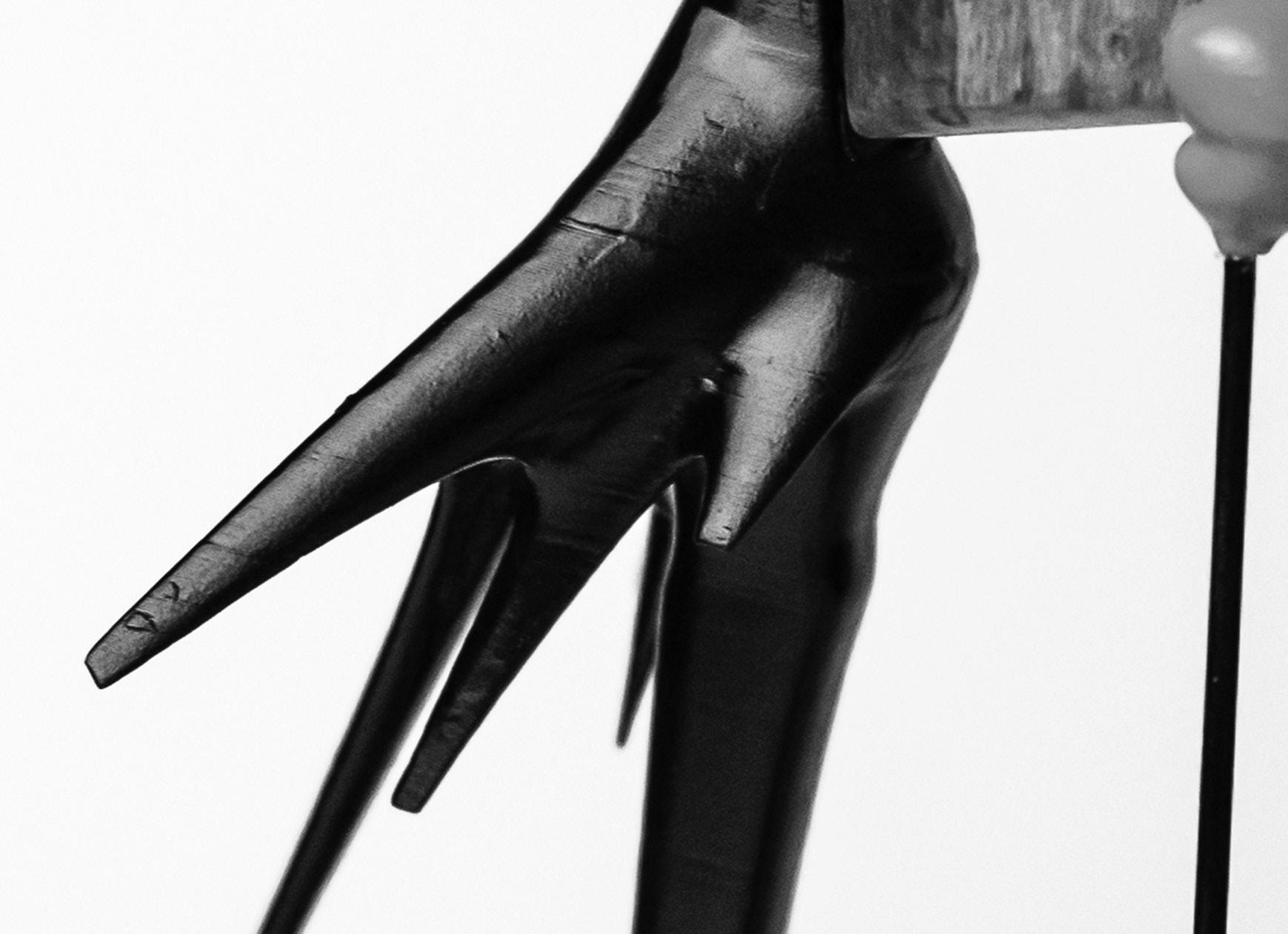
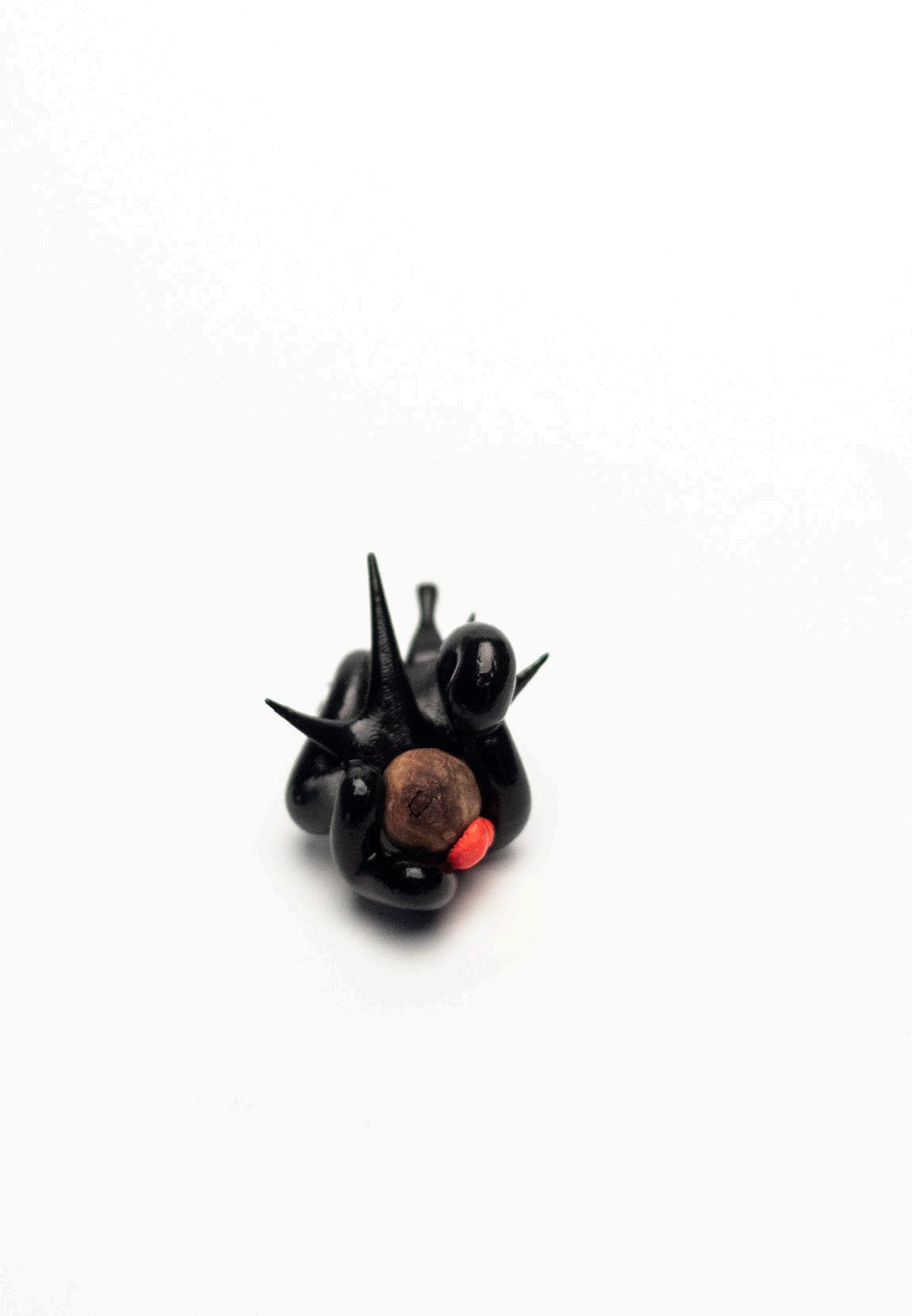
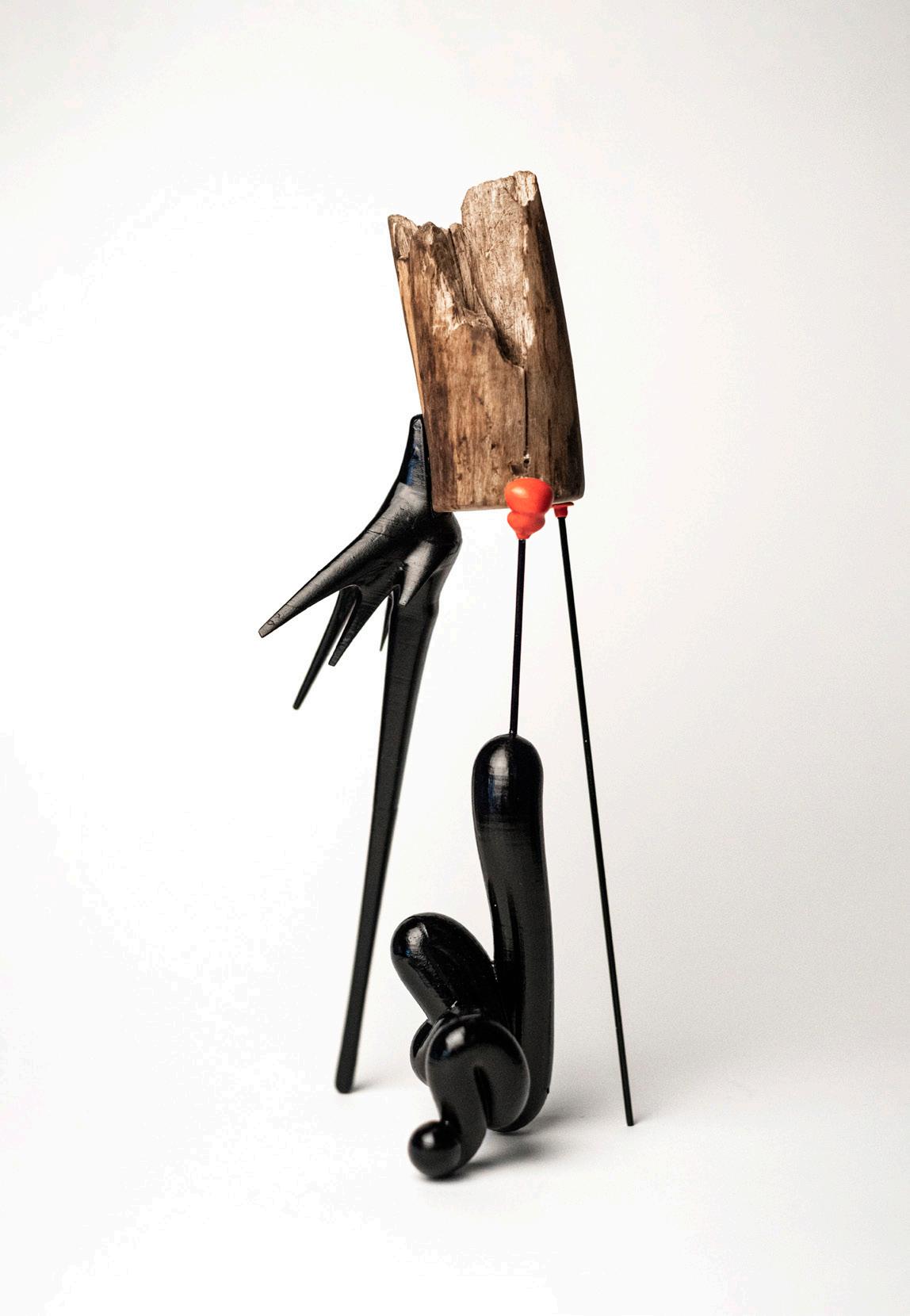

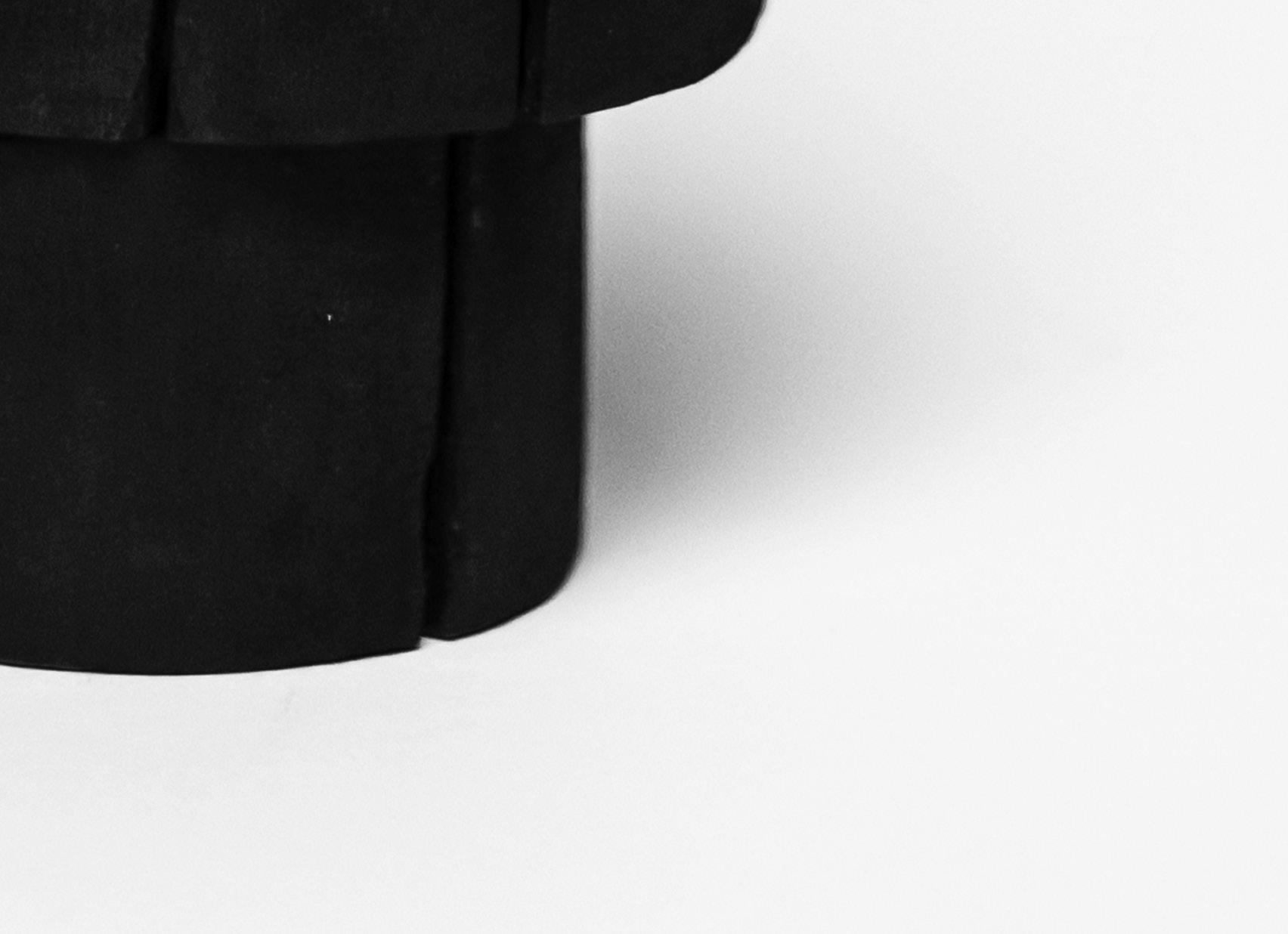
Growing up I always sought female energy in a world built for and by masculine powers. Today’s multifaceted women not only shape and inspire me as a person, but also continue the fight for emancipation. It is through the cohesion of many individual stories and forces that we move forward as a society. I am continually inspired by those who share their stories and show their faces in a world of isolation and separation.
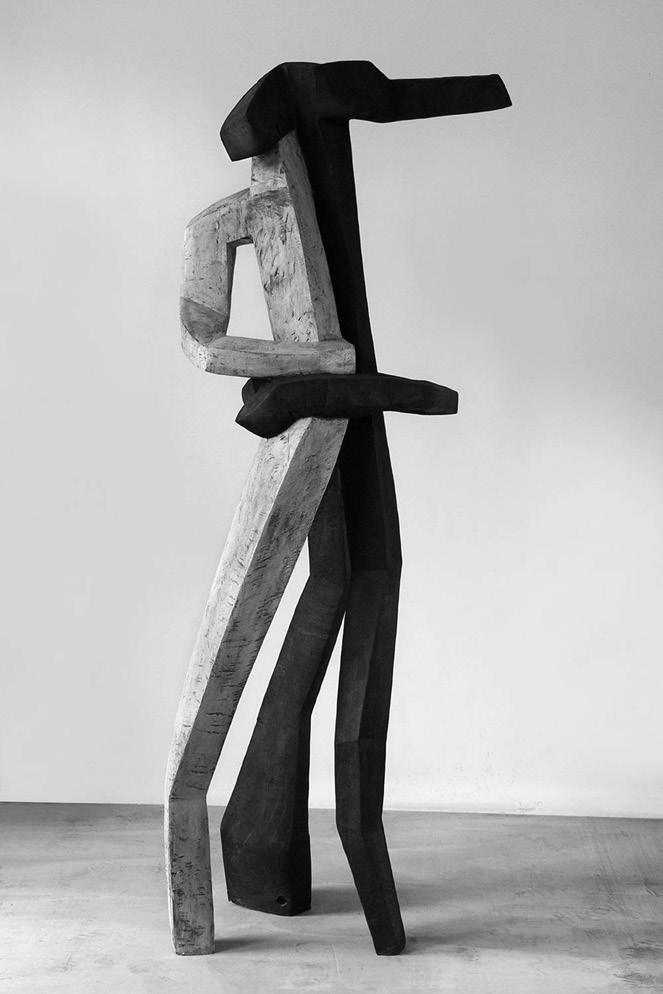
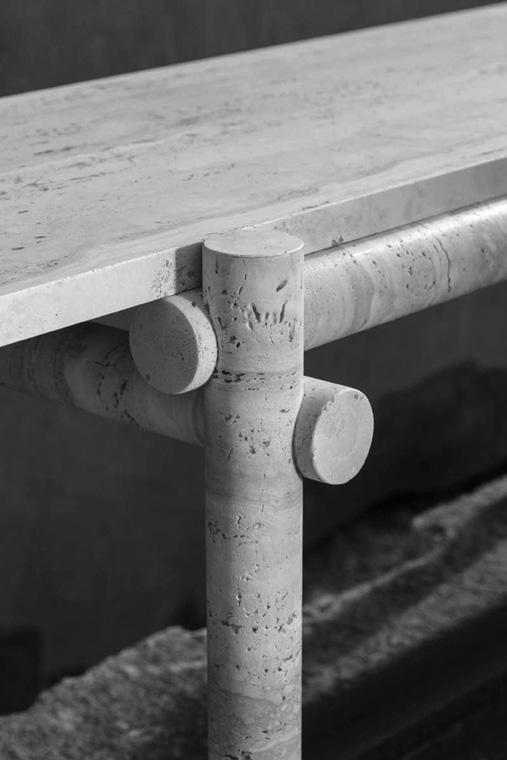


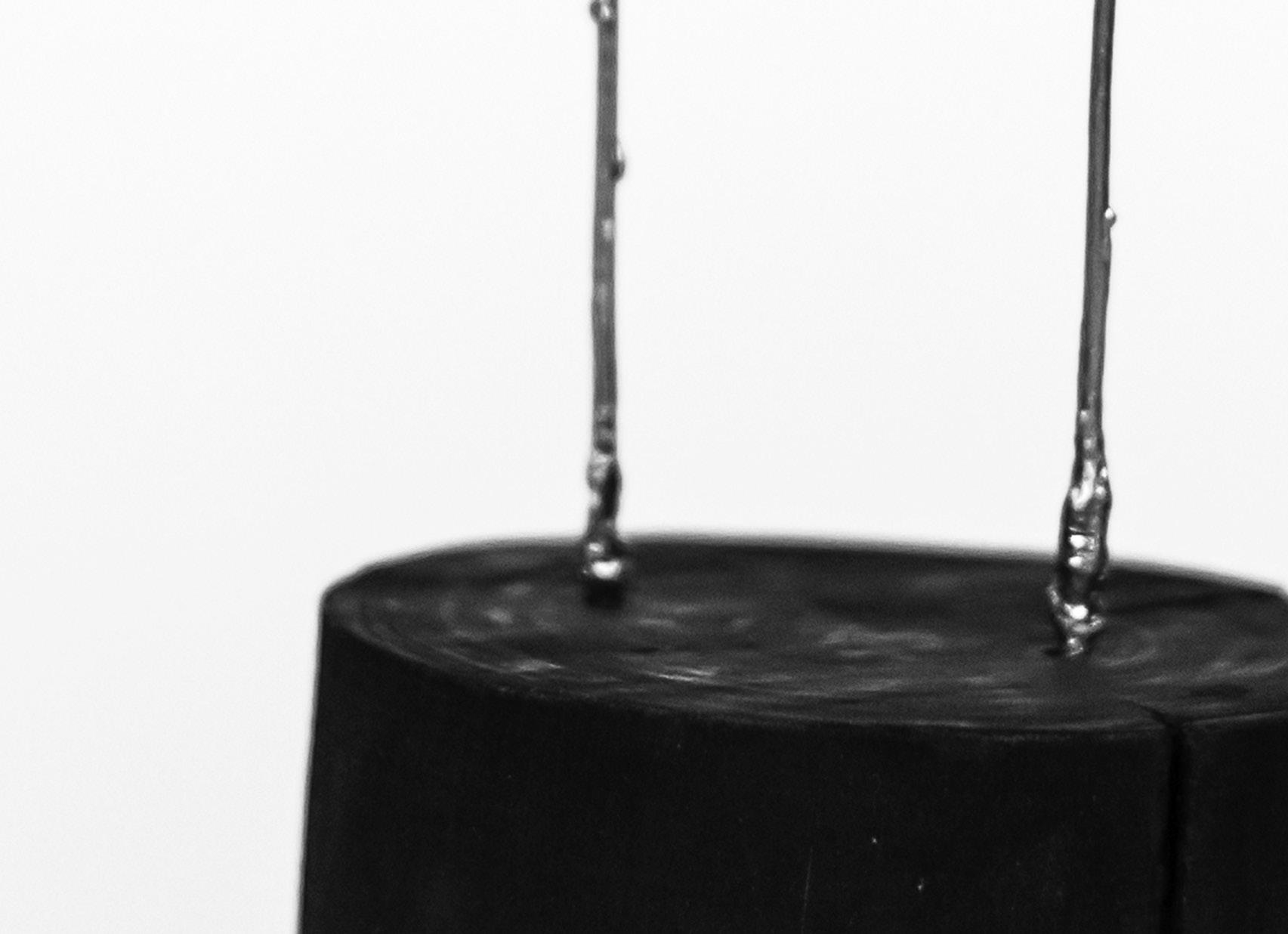
Since the start of working on the award, for such an important cause as female emancipation, I have felt a great responsibility. I feel the responsibility to do justice to this long and ongoing fight for equality, especially to those who are standing in the front.
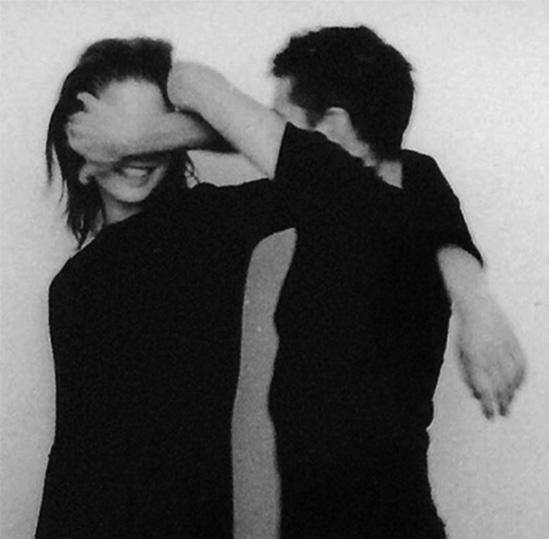
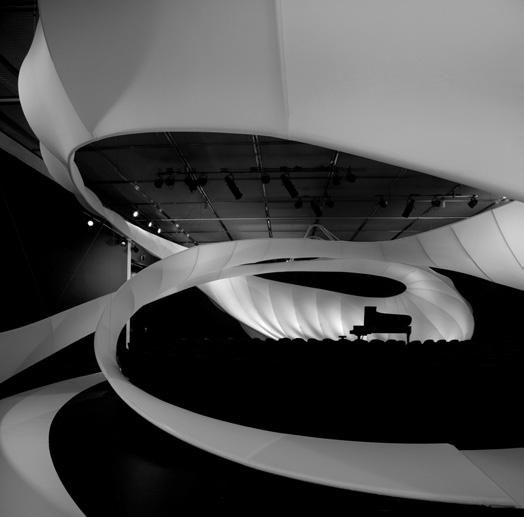
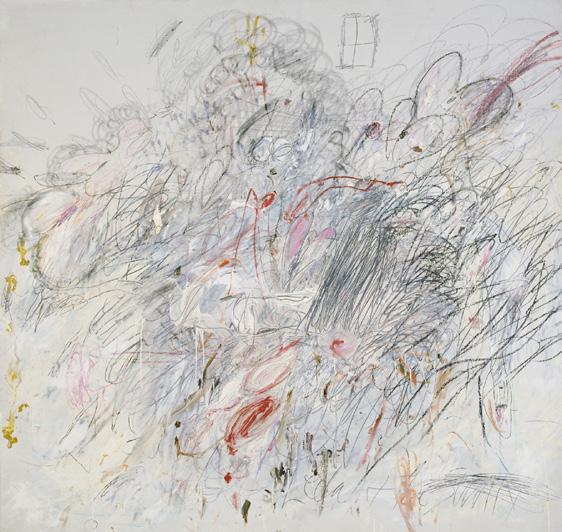
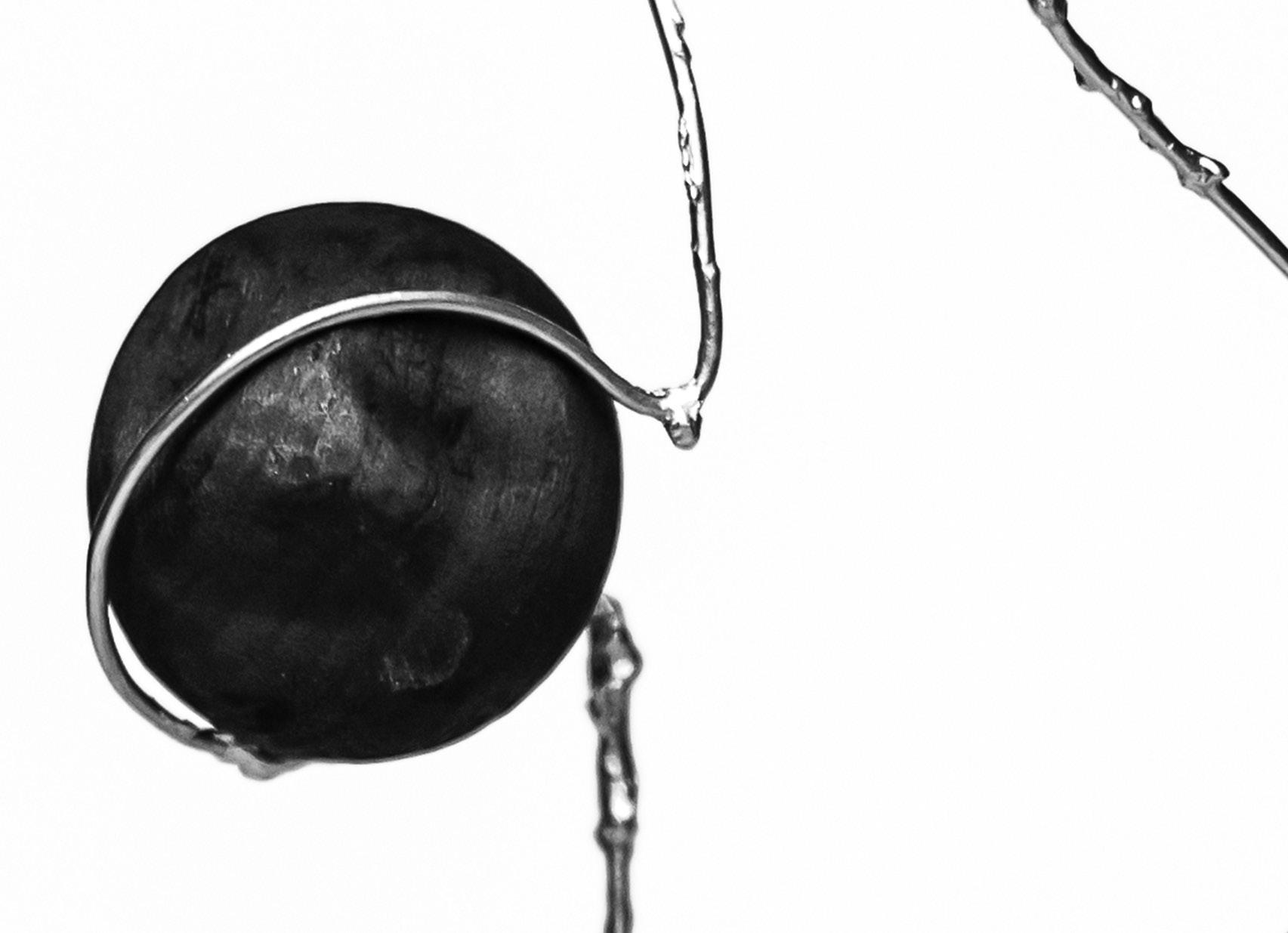
By wearing my brooch, I want the winner to feel encouraged in her actions and creations and know how many wonderful faces and stories have her back.
My piece represents how we are shaped by the battles we fight and the beauty that can come out of those fights. It shows the importance of banding together and supporting each other.


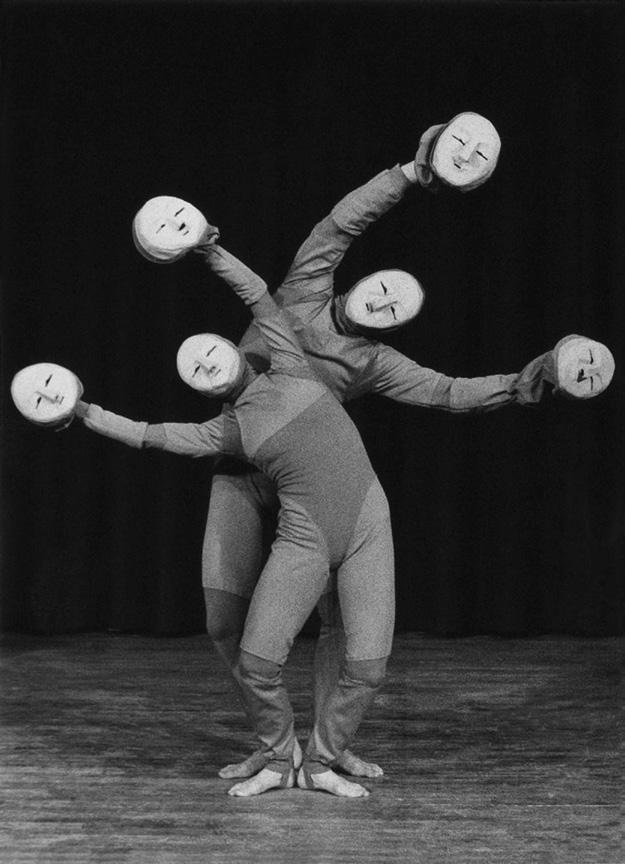

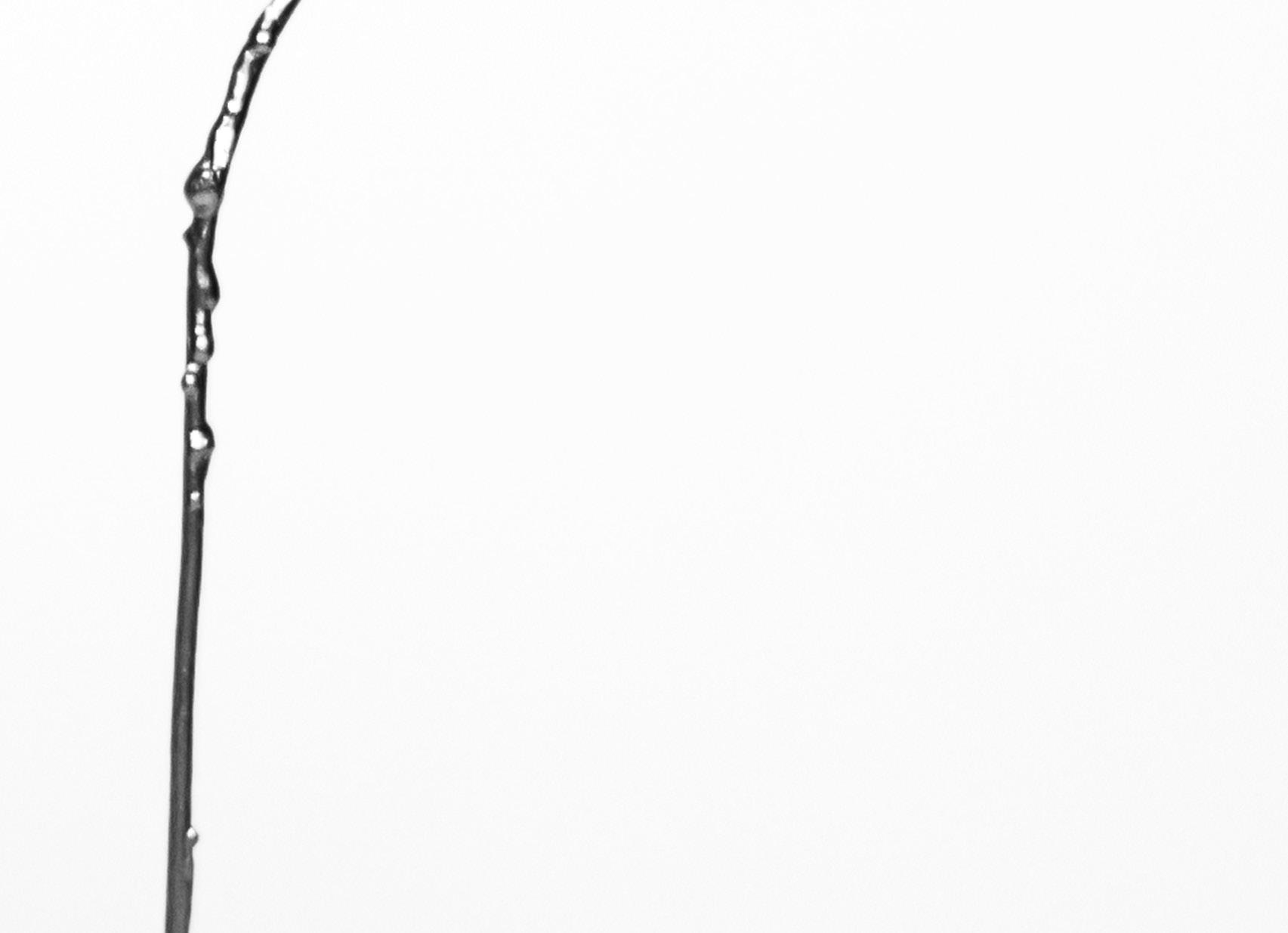
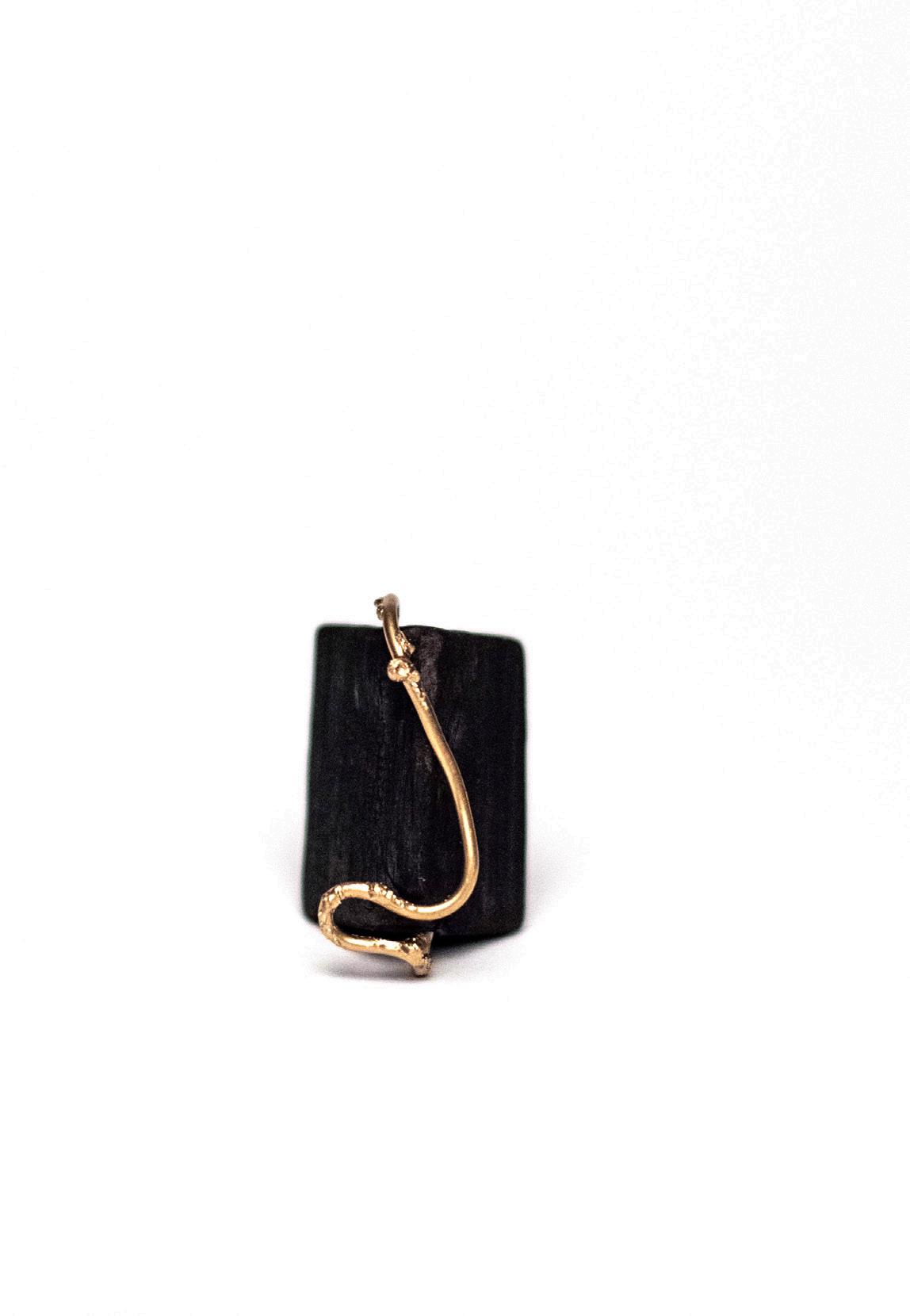
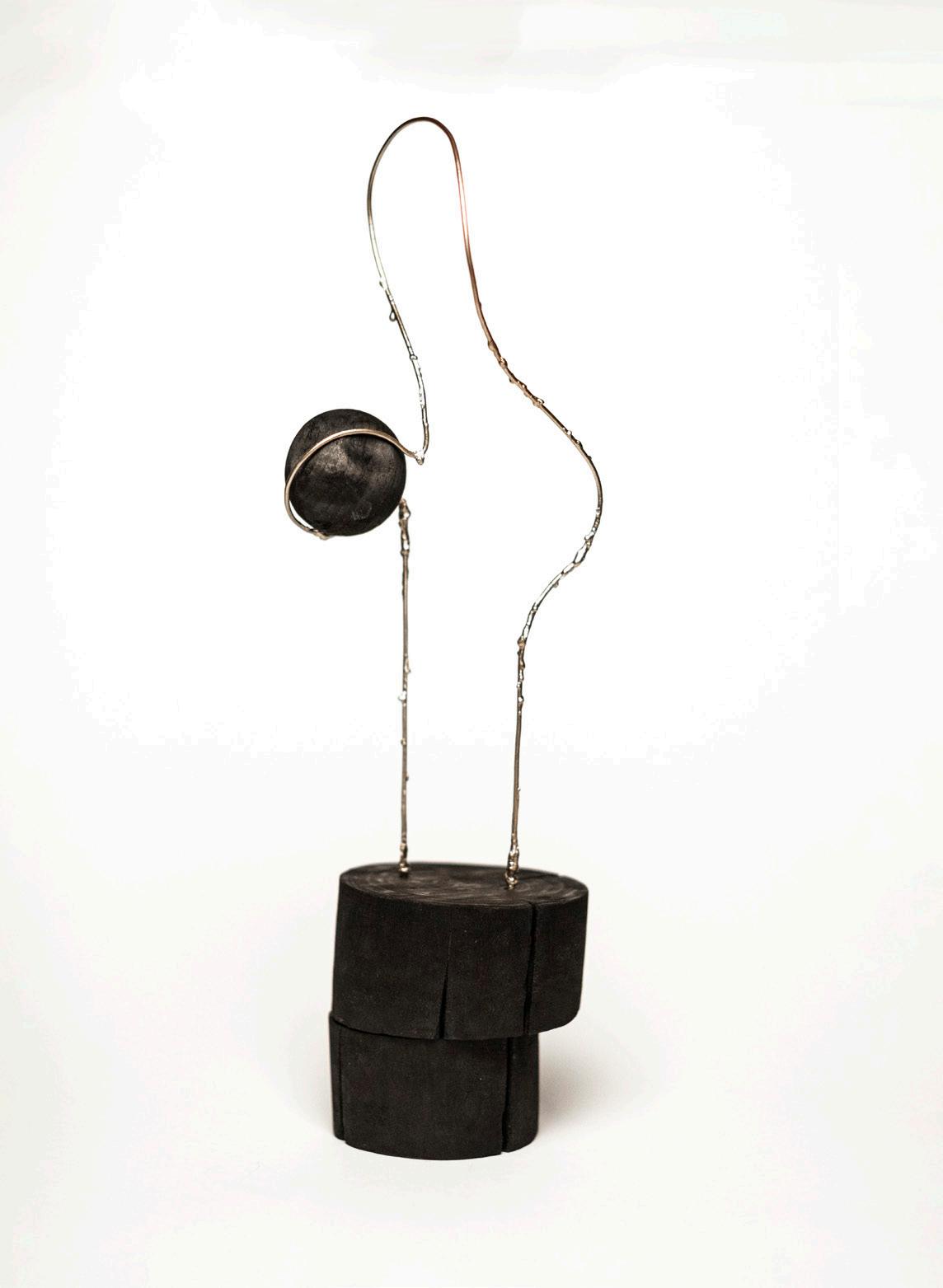

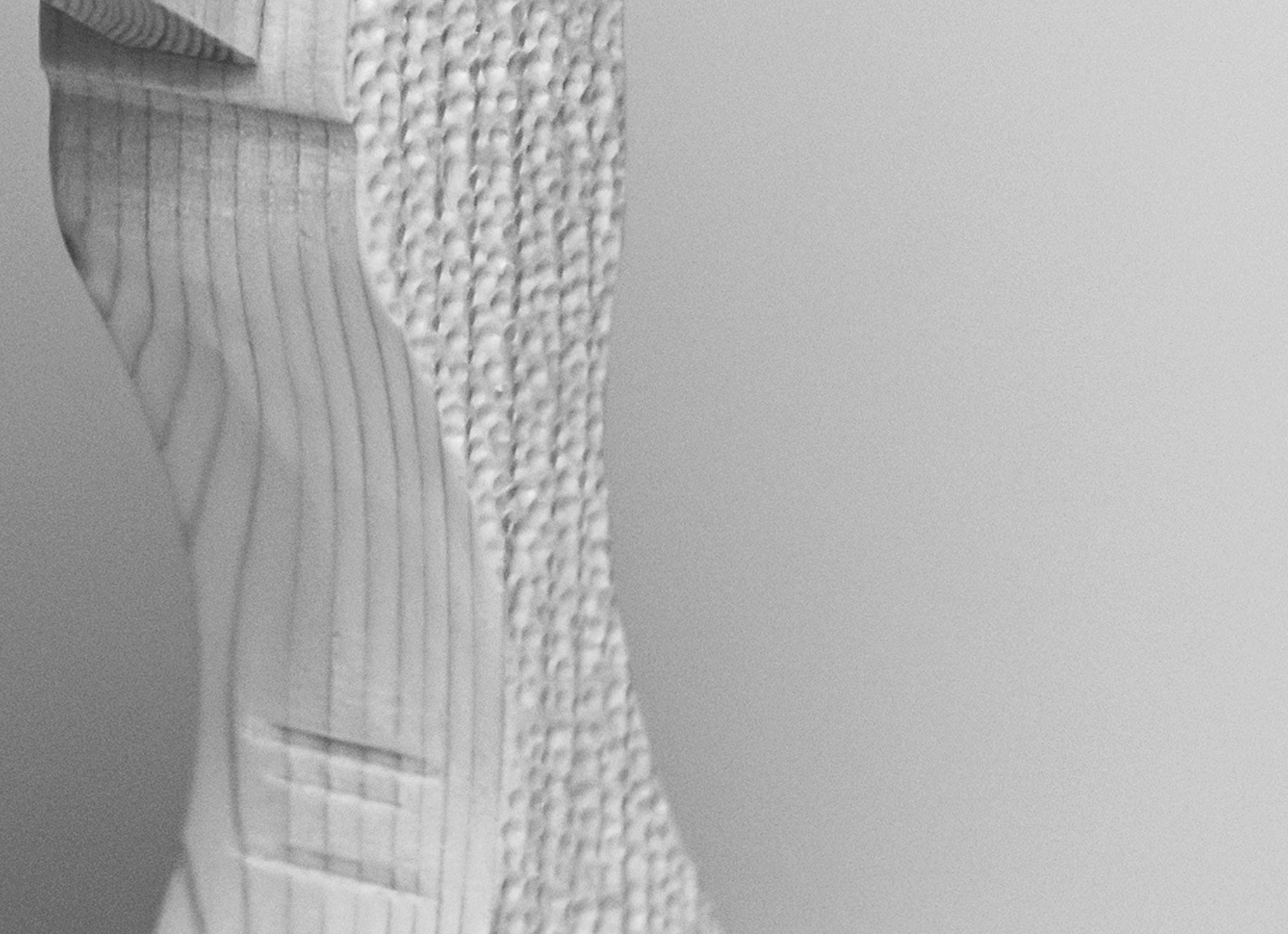
Feminism embodies change and development in society. It can be perceived as a movement to terminate sexism and oppression, and to achieve full gender equality in law and practice. Consequently, it signifies power in three main ways: redistribution, domination, and empowerment. The feminist understanding of power epitomizes a type of power that is distinct from domination, as its aim is liberation. Even though society is still reckoning with extensive and inexcusable gender inequity derived by bias, feminism attempts to rescue women from this world filled with neglect and discrimination via efforts to stress that feminism is not at war with femininity or masculinity, and does not view men and women as warring tribes, but combines the liberal concept of equal access to institutions.


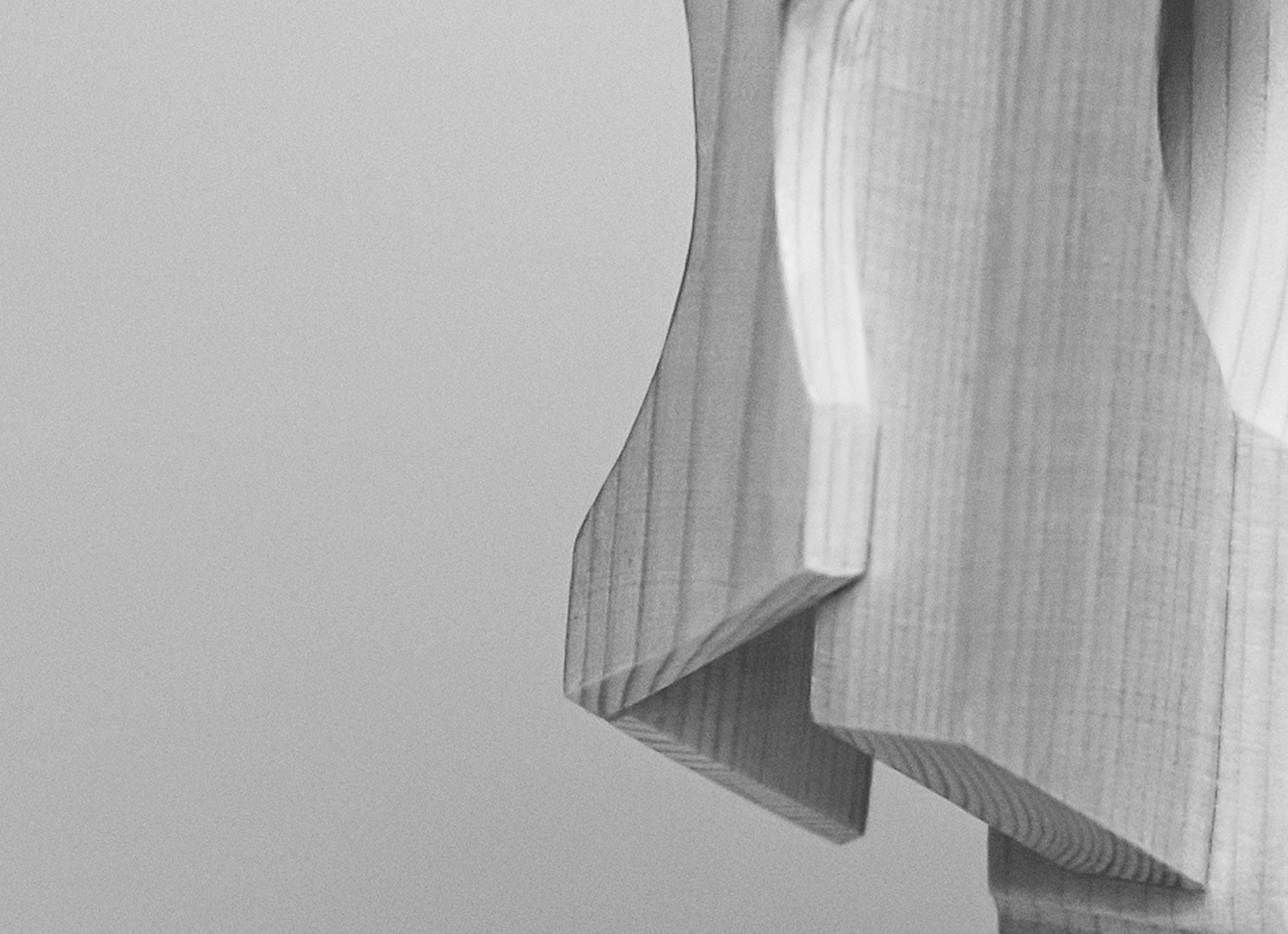
Working for the emancipation award broadened my knowledge on a topic that has such immense influence in our society. I feel grateful to be a part of such an opportunity, as throughout this project I gained a better understanding of the true meaning of feminism, which is often misinterpreted. I enjoyed the process and development of my work, and I hope this award finds the hands of someone that devotes their life to developing the position of women in our society.

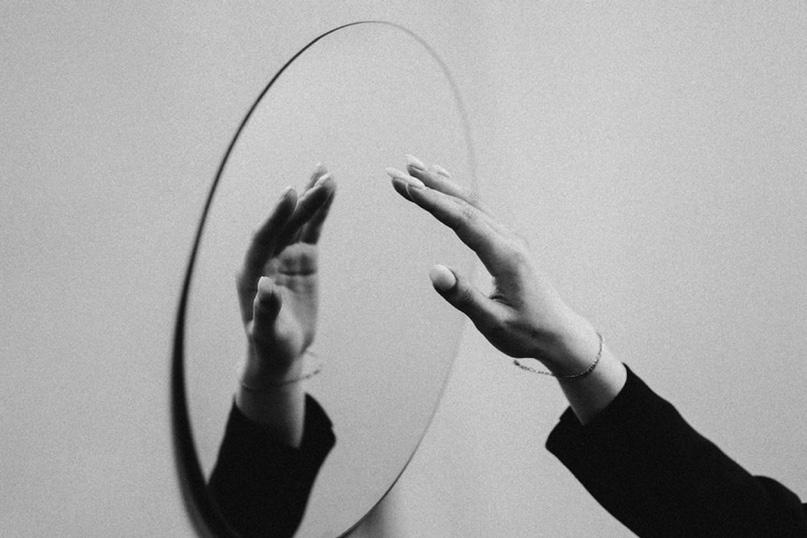

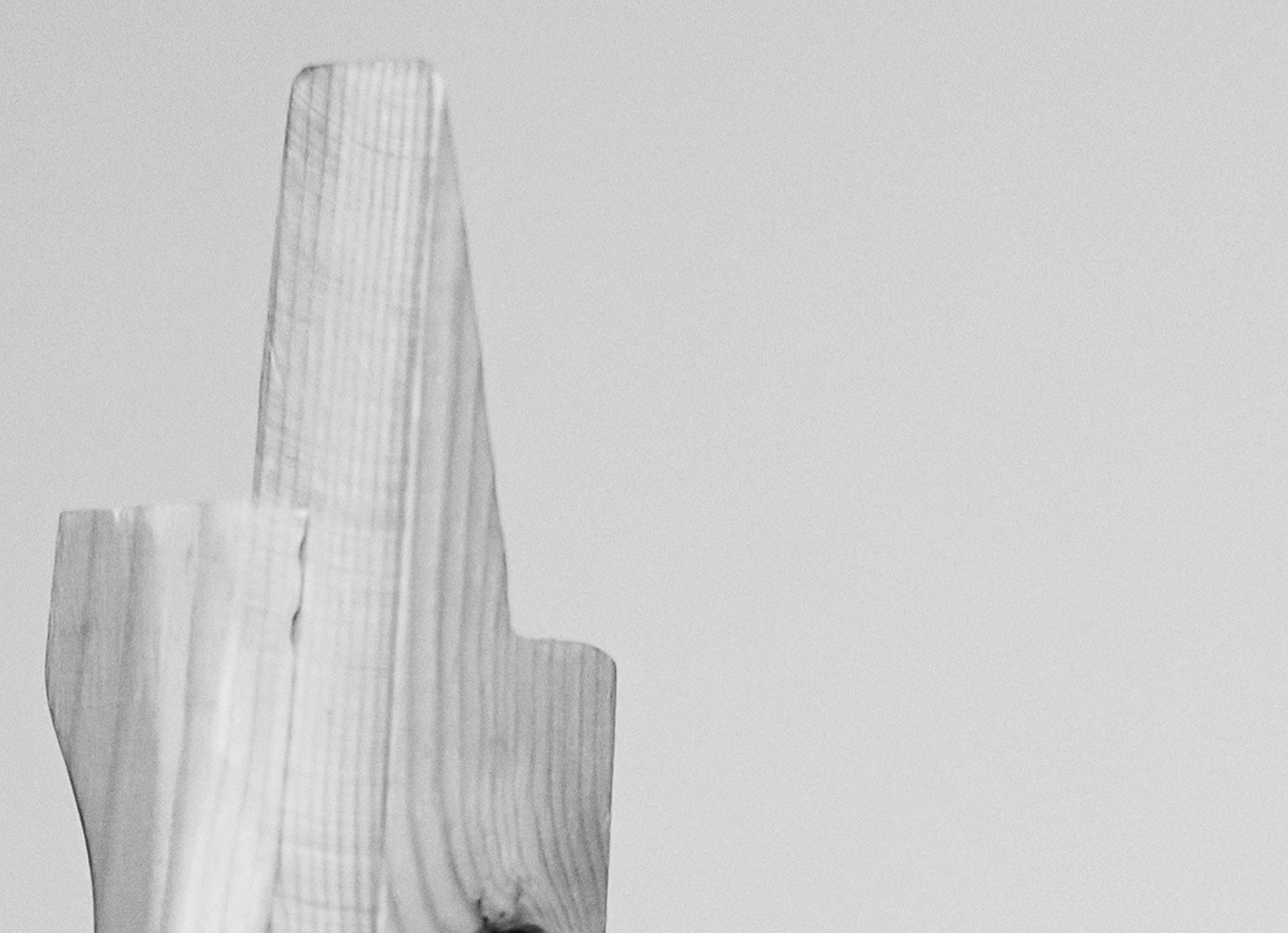
I hope the winner will feel honour and accomplishment for their influence, as their work means a lot to society and especially to women.
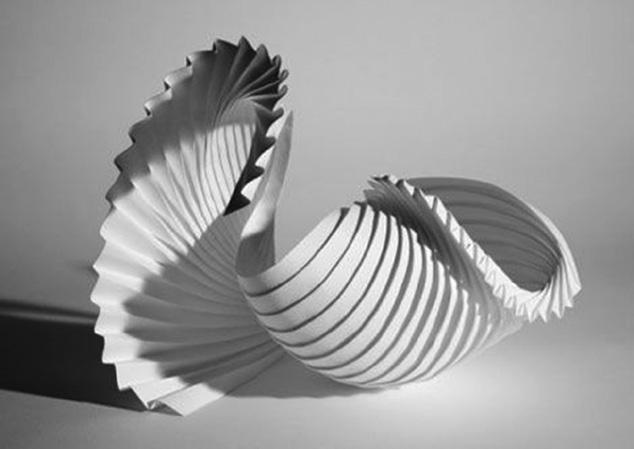

A message that I would like to give the winner, or society at large, is to strive to end sexism and to finally achieve full gender equality in law and practice.


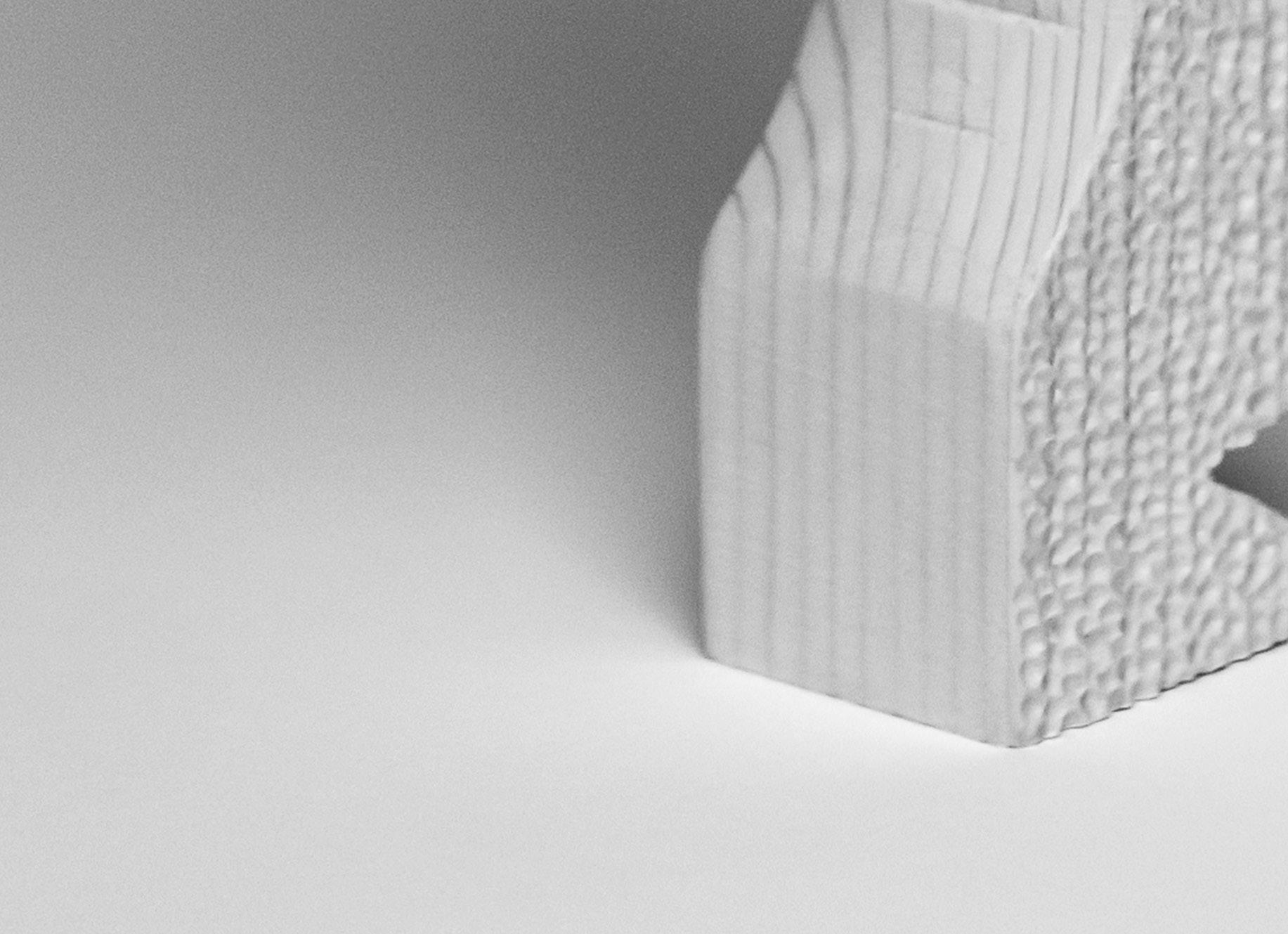
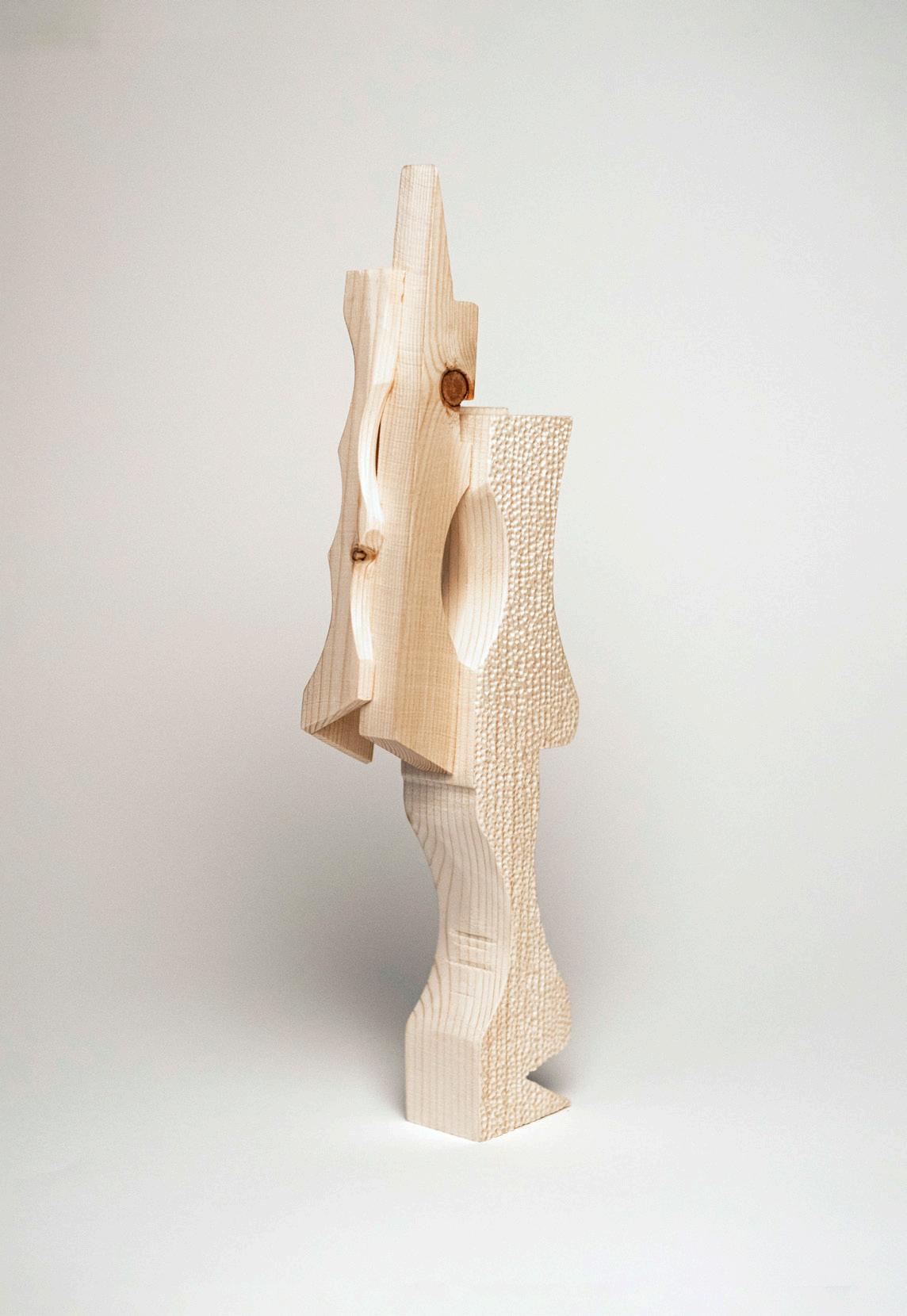
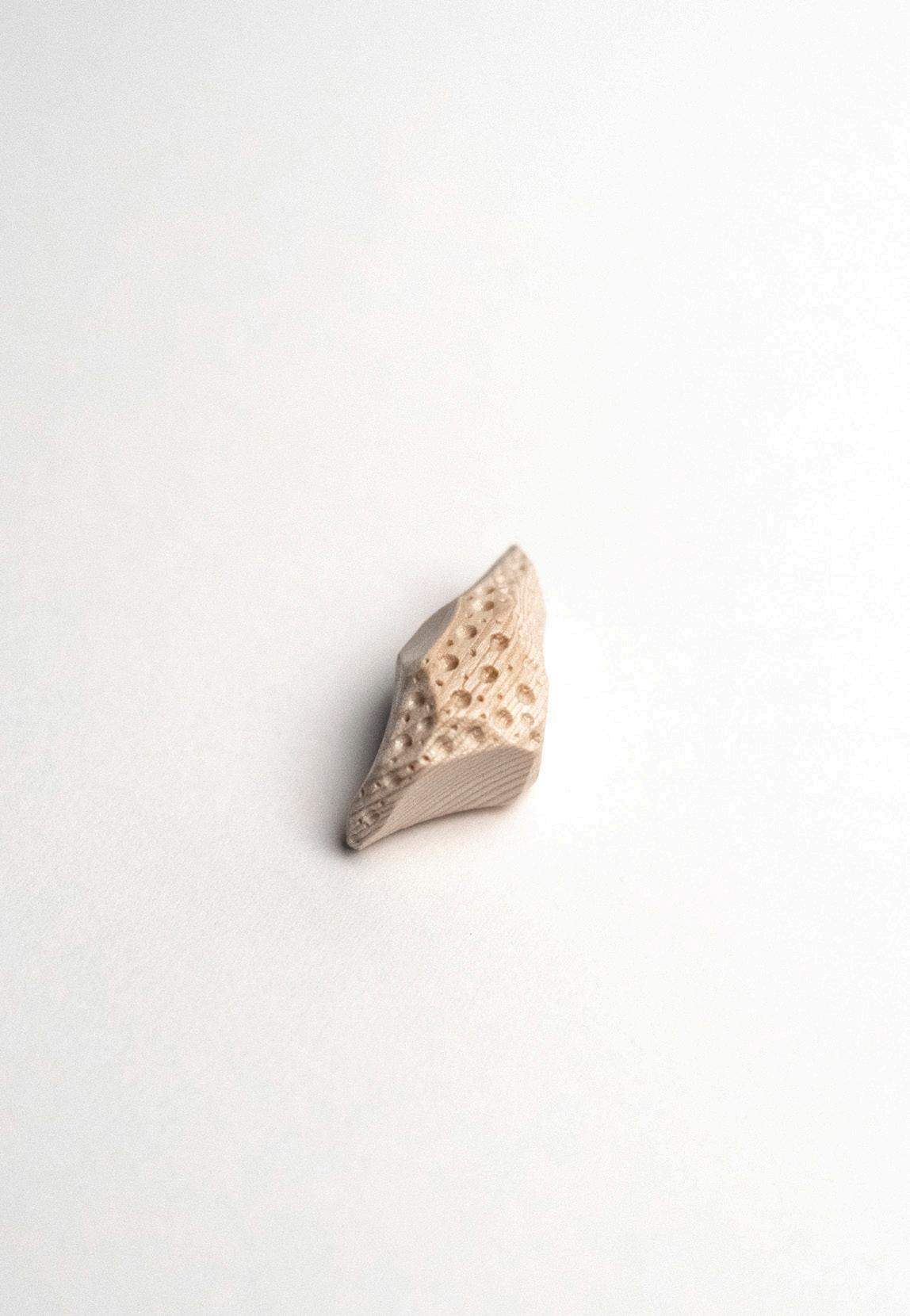

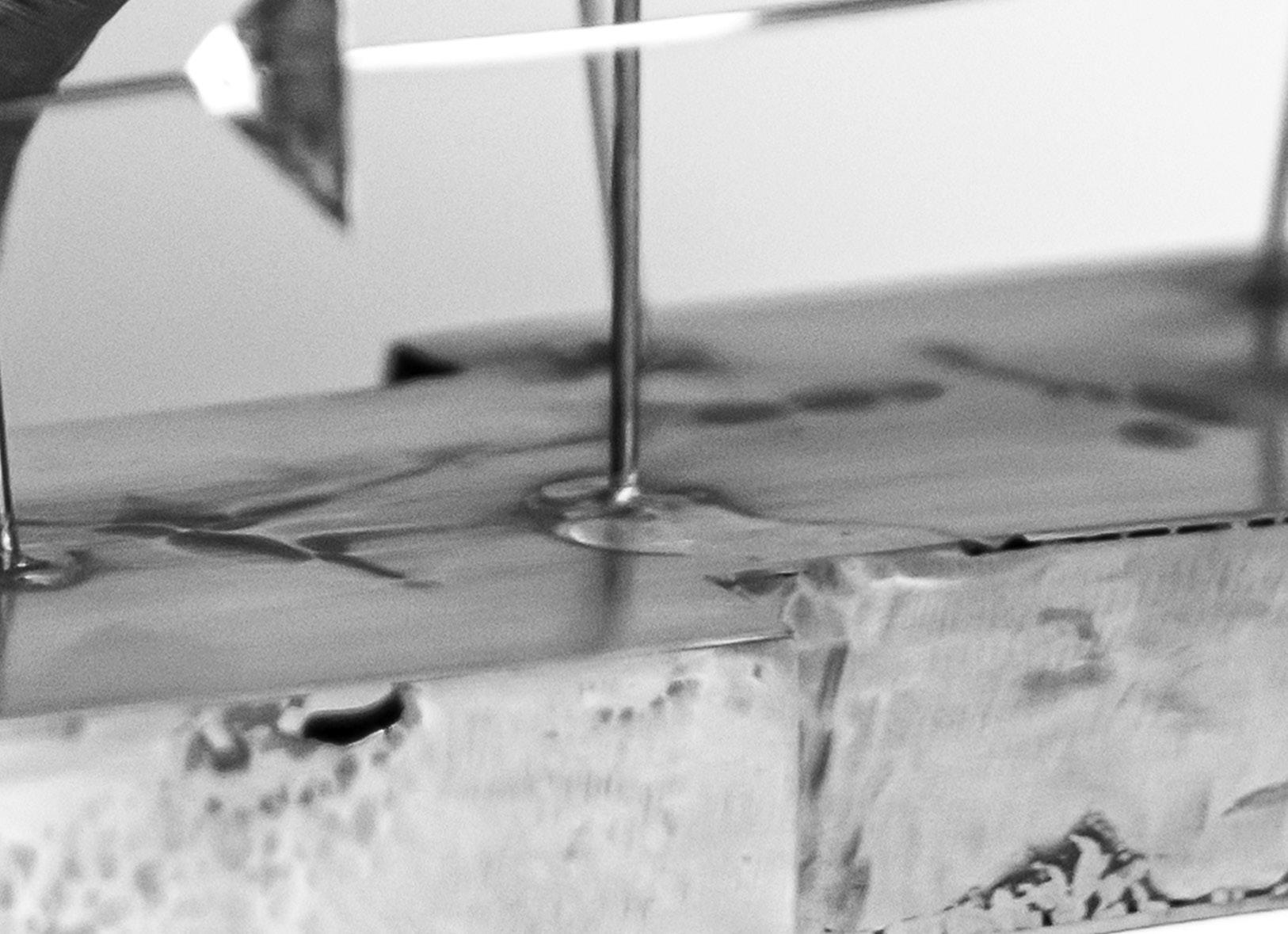
“A woman who can be a leader”. Leadership is not gender-specific. It is the selfless quality to help and inspire others to achieve success. Specifically, my concept is about women who have faith in their own personal strength. Aspirations greatly influnce our essence, and can provide colossal amounts of courage and strength to accomplish our greatest desires. I believe metal is a material that highlights this sense of strength. Through my work, I try to abolish all social labels associated with women. I strongly believe in our united community. Labels give a convenient excuse to limit potential, and only by overcoming such stereotypes, can we reach the things we truly deserve.
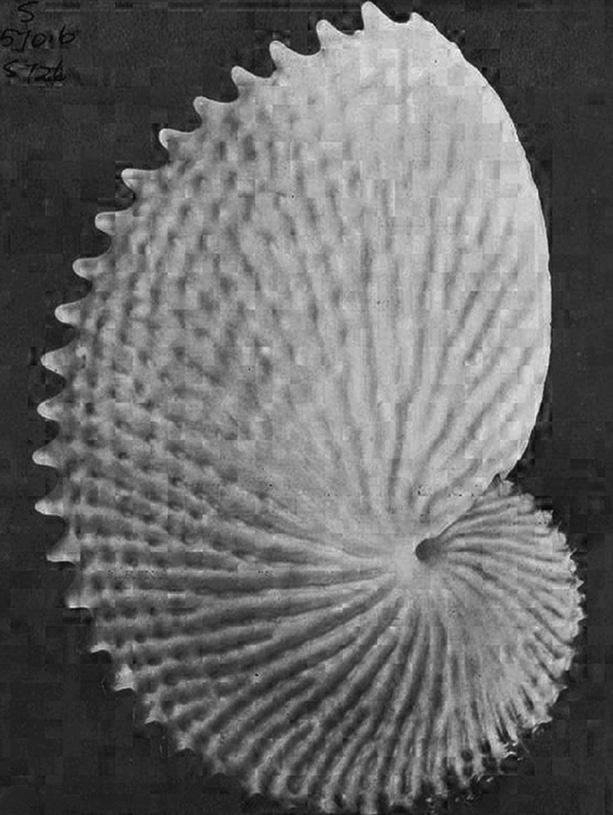


This was my first experience working on an object with such a profound, socially important message. Throughout the course, this project has become something very important and special for me. In my country, topics such as feminism are often avoided. Therefore, I felt a higher sense of responsibility while working on the trophy. I didn’t solely focus on the visual aspect of my design, but also the reflection/sound of the women’s voices in my trophy.

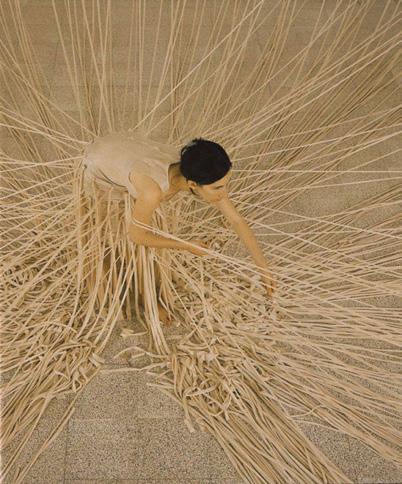
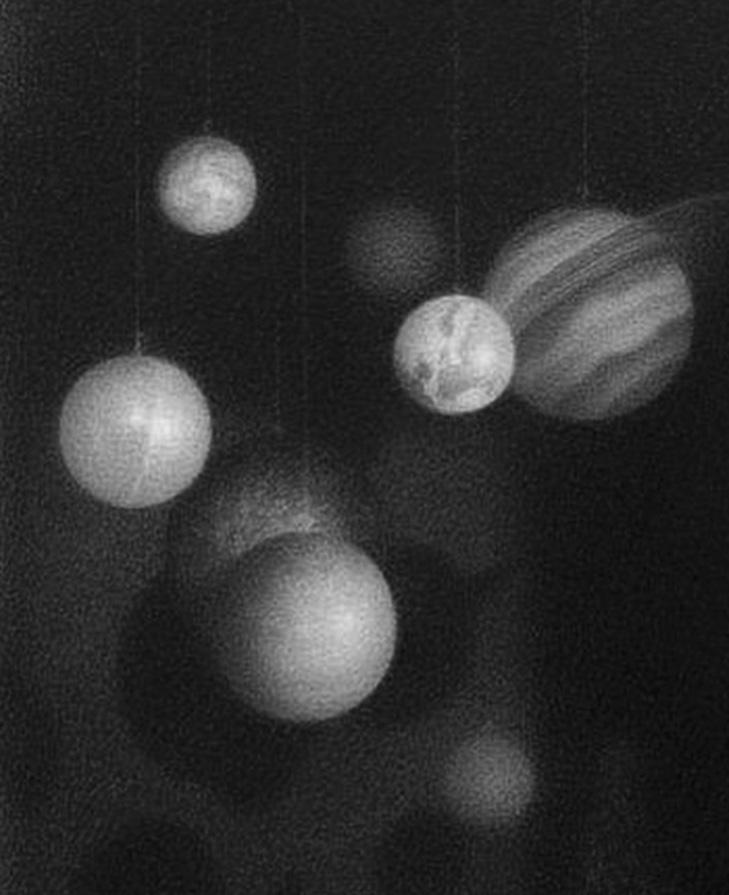
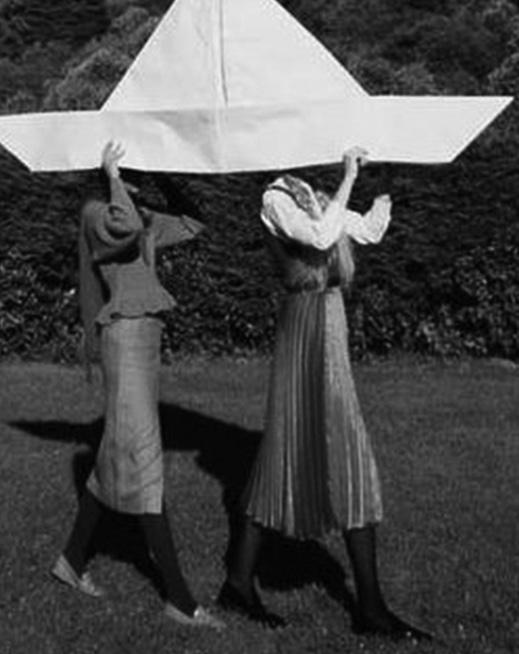
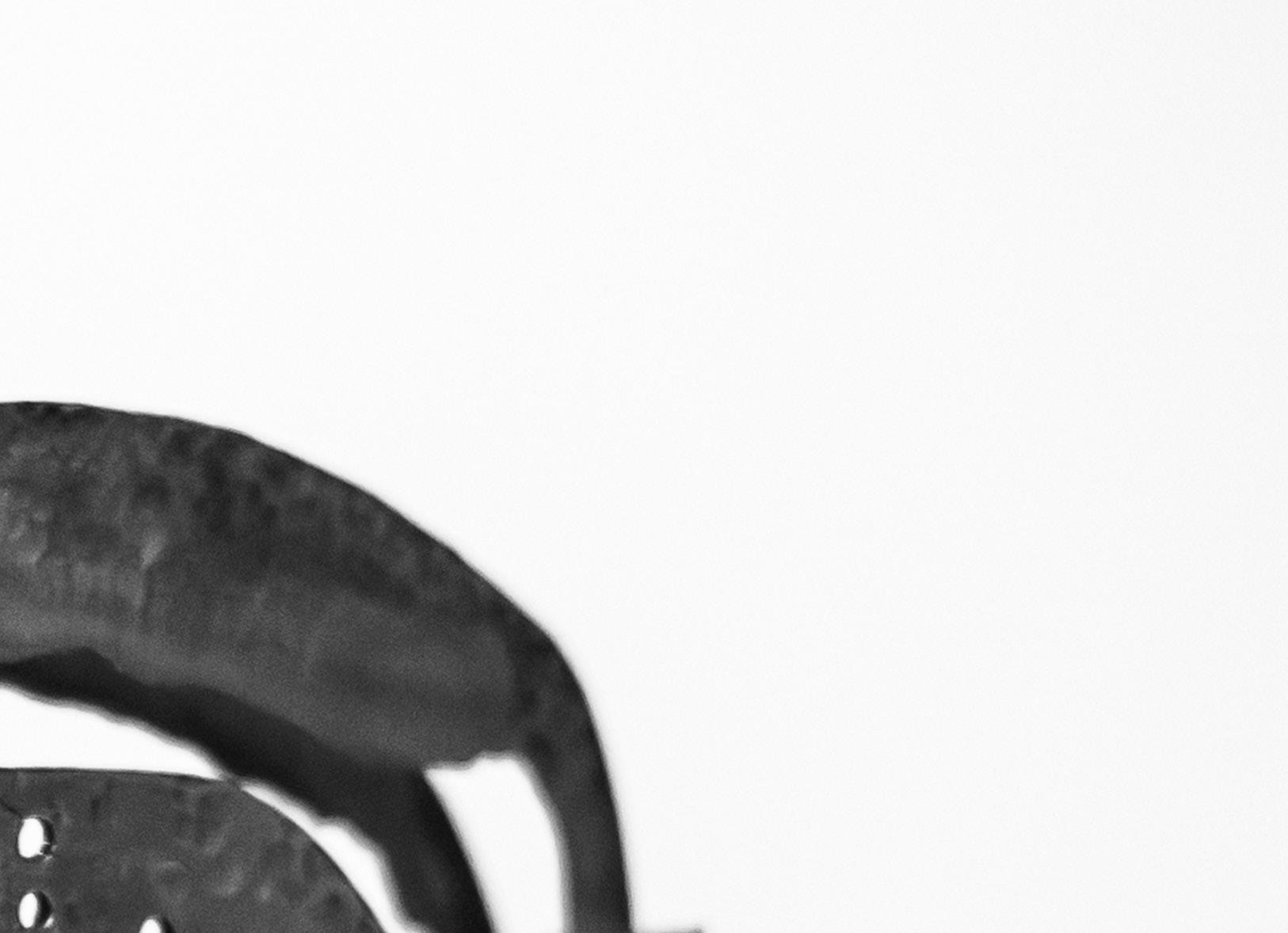
willI believethewinnerwillfeelthattheyareasignificantfigure.I hopethey alsofeelmoreconfidentforreceivingrecognitionoftheirmeritsin supportingsuchanimportanttopicasfeminism.
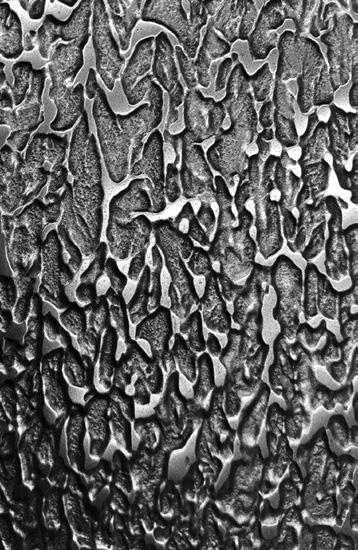
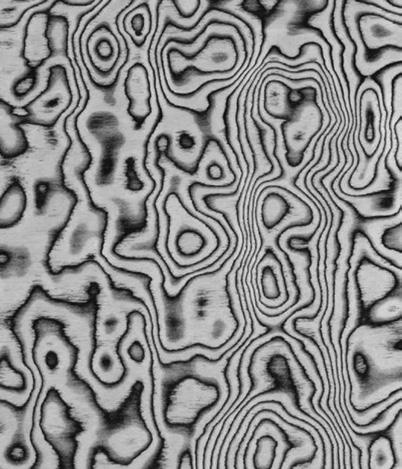

I would like to draw attention to our societal constructs in relation to gender stereotypes, which we ourselves have created. We should strive to be more attentive and open towards each other, and never forget the importance of this topic to society as a whole.
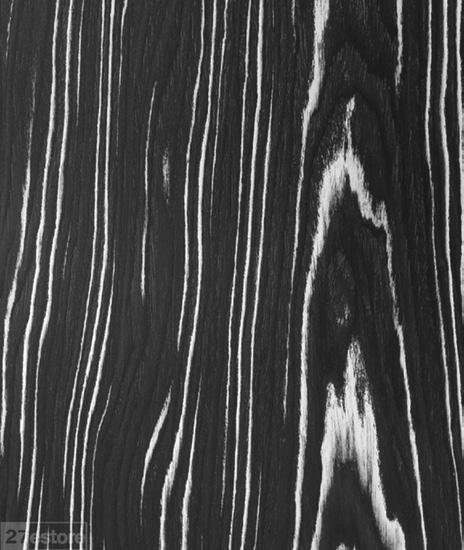

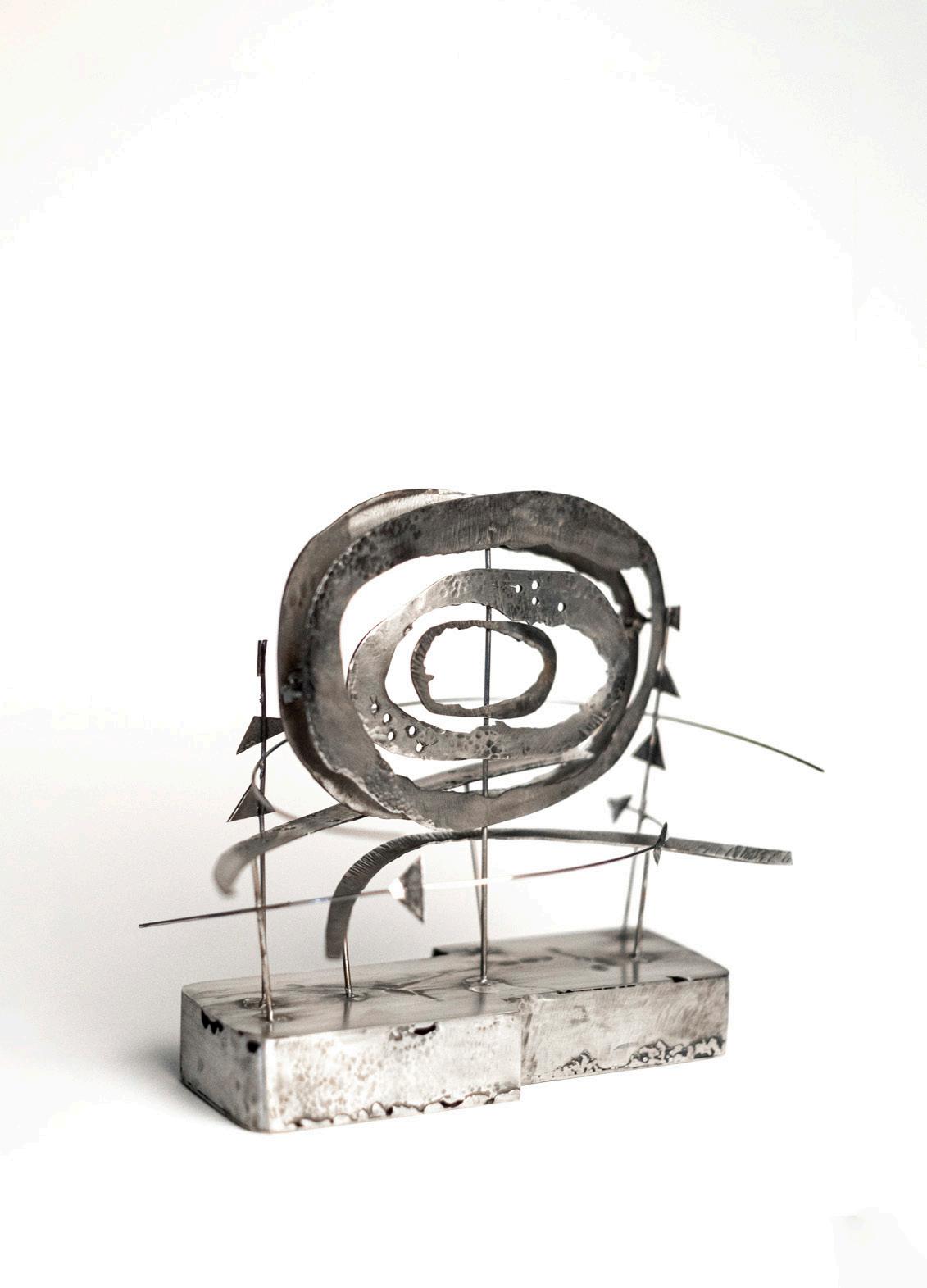
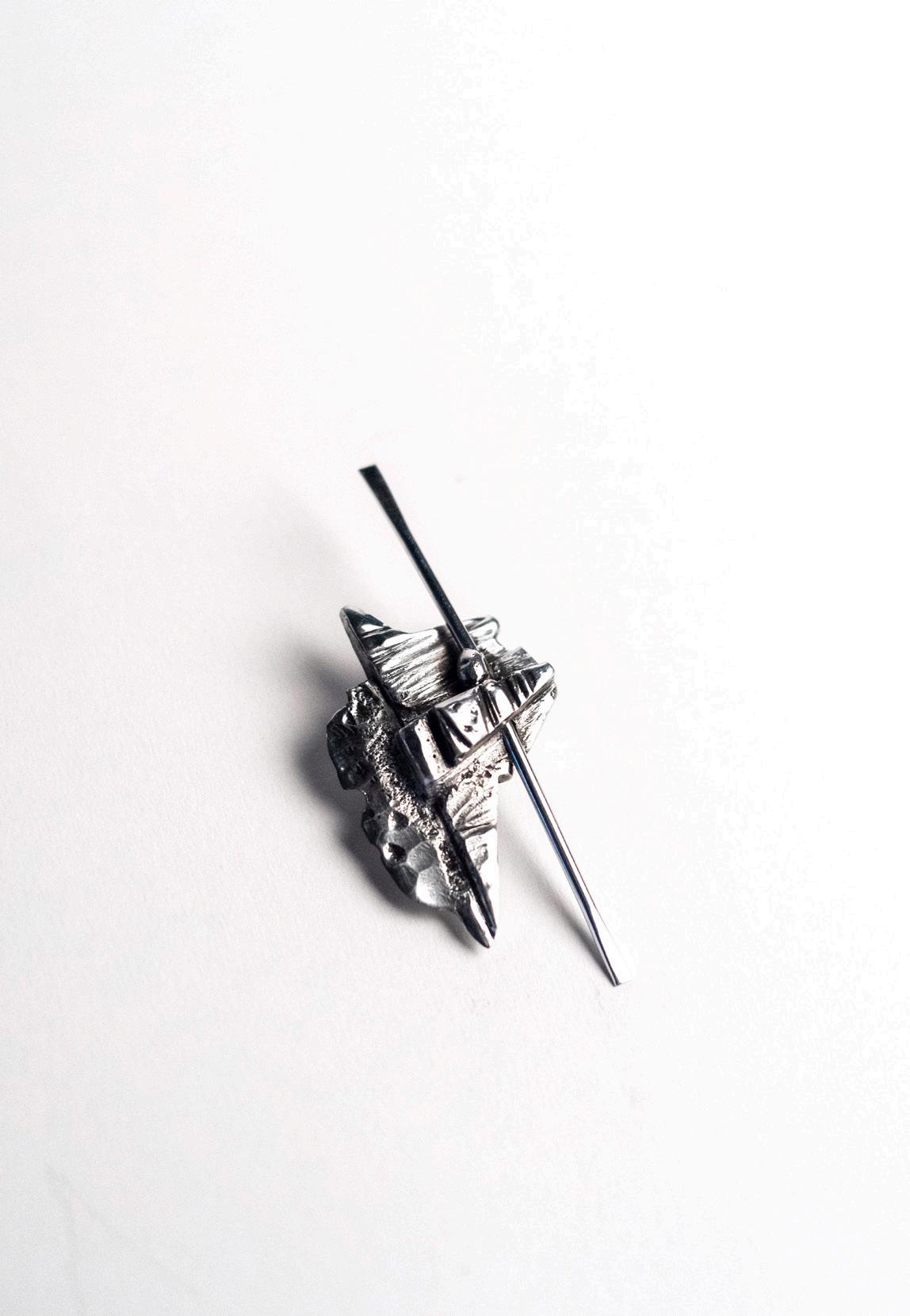
Kes Lugt is currently enrolled in the fine arts department at the Royal Academy of Art, The Hague. Departing from personal experiences of non-binary-genderedness, Kes Lugt’s multifaceted practice revolves around embodied manifestations in a contemporary (electronic and bureaucratic) world. By using the playful and humourous as making strategies — placing a bouncy castle inside of a gallery for example — Kes demonstrates the joy and feelings of release that can arise.
With the execution of the silver brooch for the emancipation awards from the Ministry of Culture, Education and Science, Kes’ contribution to the cause shows the perspective of an artist who is engaging in several societal and cultural concepts within the field of art, while broadening the sense of liberation through different forms and ideas.
Guido van der Linden is an artist and designer. Alongside his own practice, he is a workshop instructor and tutor at the Royal Academy of Art, the Hague (KABK). After graduating from the fine arts department, Guido established his own studio where he creates autonomous sculptures and designs for both exhibitions and private collections.
Guido van der Linden designed the boxes for the winners of the emancipation awards. Although his task was to create something to support the brooches, he focused heavily on constructing the boxes, carefully selecting the wood and emphasizing how the purity of wood joints and the material itself can serve as the framework for the brooches. Being part of the team who worked on the design for the OCW awards was a great motivator. As a tutor he finds it important to create environments in which people can grow and thrive, which are often difficult to find in our society. Equality and acceptance are important practices in creating an environment where everyone is valued. Striving for inclusion without losing one’s own values is memorable and should be awarded.
Lara Dautun is a graphic designer focused on editorial practices. Currently researching feminist independent publishing, she strives to uncover the emancipatory potentials of such practices and the role design tools can play in the process. Working on this book has been a joy for her, as it has allowed her to build on her personal research and connect with themes, stories, and ideas that inspire her. Through the book’s design, Lara hopes to showcase the collaborative and fluid nature of the creative process, as well as highlight the unique perspectives and ideas of the students involved.
The Joke Smitprijs was designed by the first-year students of the Interior Architecture and Furniture Design department at the Royal Academy of Art, The Hague (KABK) in collaboration with the Ministry of Education, Culture and Science (OCW).

Aleksandra Kojro
Anna Ratibor
Anne-Maren Birkelid
Artiom Iacob
Frederikke Hemmingsen
Iji Shin
Joep Boogaard
Milo Hatfield
Oliver Tippl
Veronica Andreou
Vlada Kavalchuk
Tutors
Ellen Maria Vos, Zsofia Kollar
Project Manager
Mariska Beljon
Guido van der Linden
Goldsmith
Kes Lugt
Photos
Medina Rešić
Copy Editor
Sidney Nislow
Graphic Design
Lara Dautun
Production
Printed by Raddraaier, Amsterdam on Rebello 120grs.
Binded by Agia, Amsterdam. 6 copies.
Typography
Adelphe, by Eugénie Bidaut, available on Bye Bye Binary’s typotheque.
(https://typotheque.genderfluid.space)
Pinyon Script, by Nicole Fally, featured in BADASS LIBRE FONTS BY WOMXN, a font collection by Loraine Furter.
(https://www.design-research.be/by-womxn/)
This book is a result of an educational project in collaboration with the Ministry of Education, Culture and Science and the Royal Academy of Art, The Hague. This book is a result of a research project with no commercial purpose.